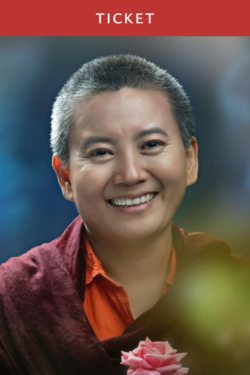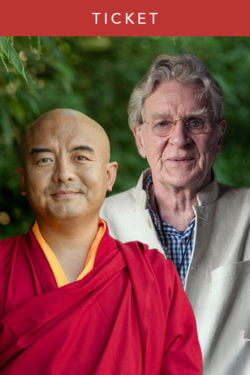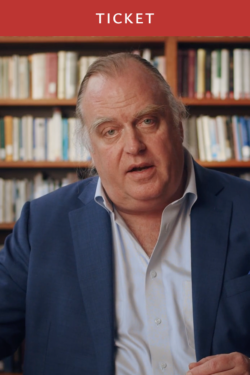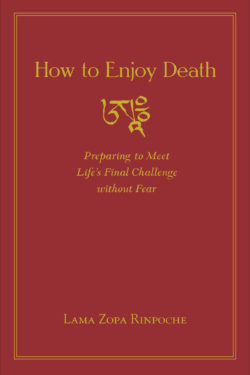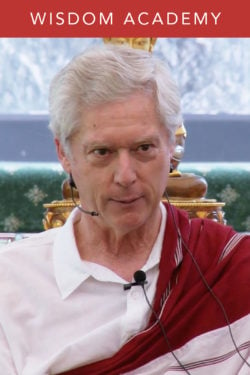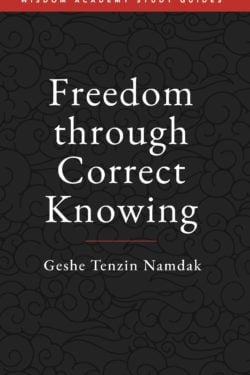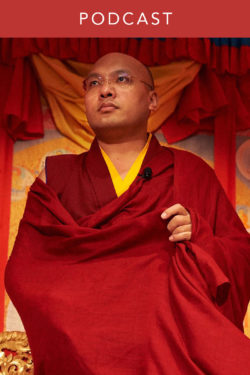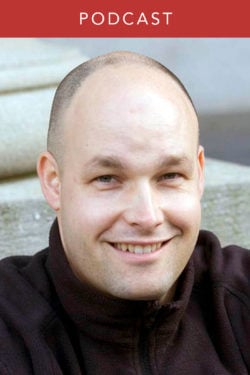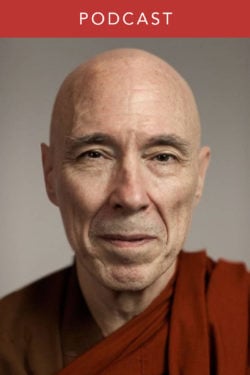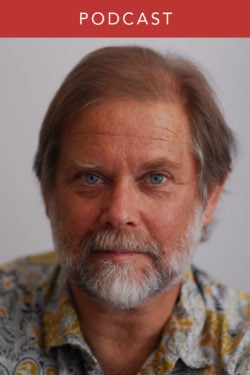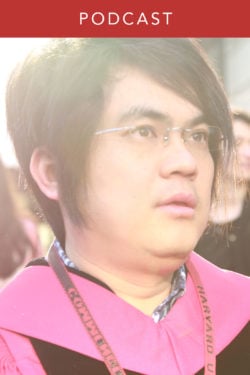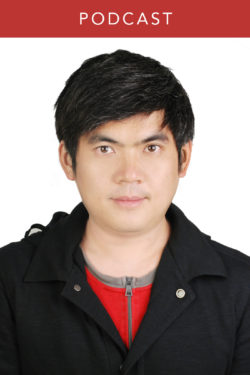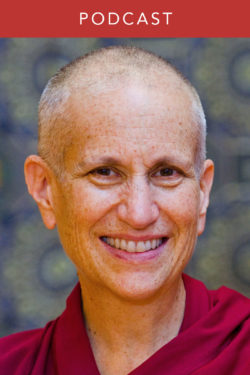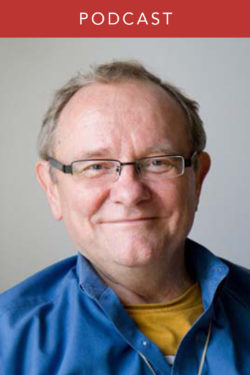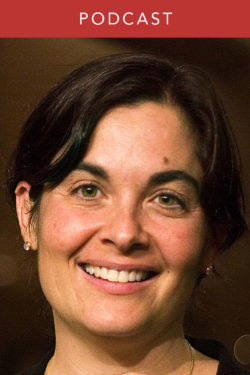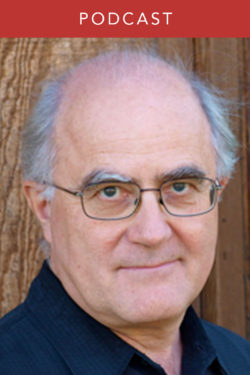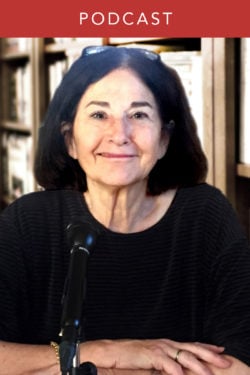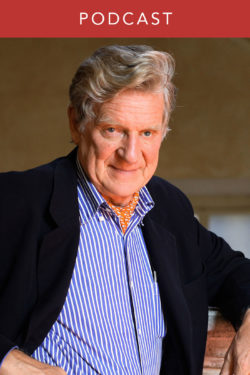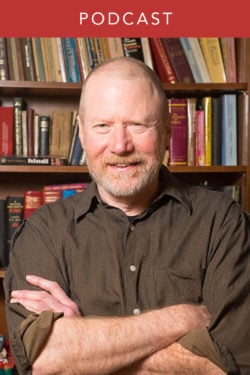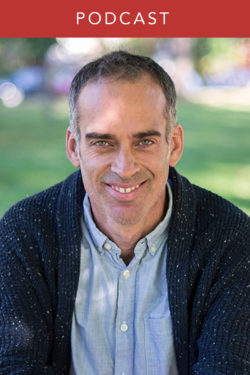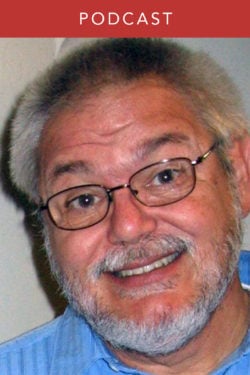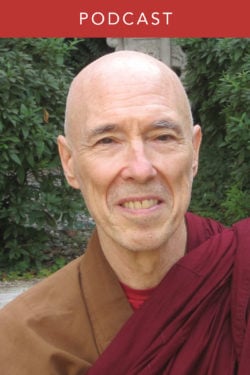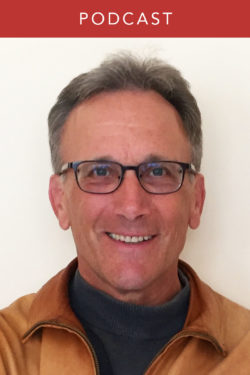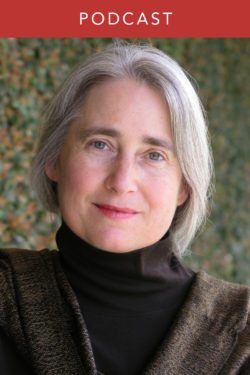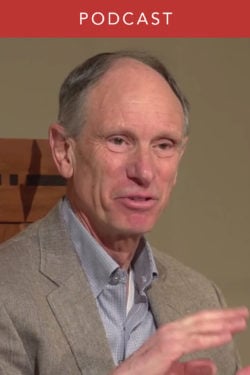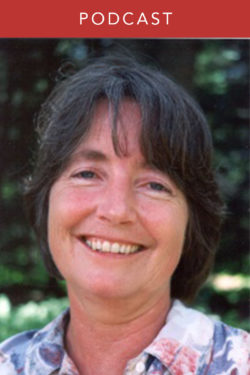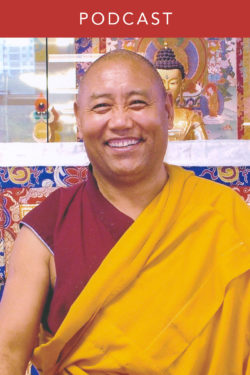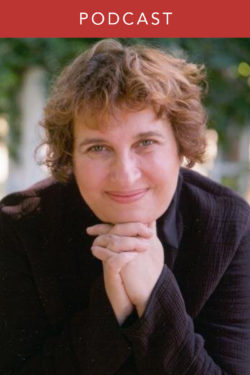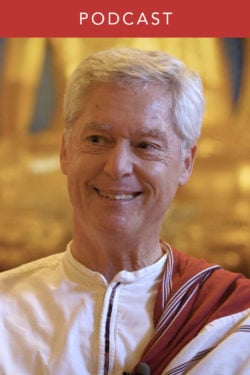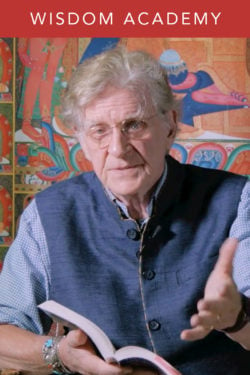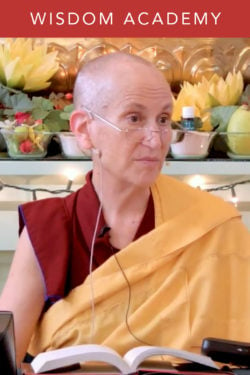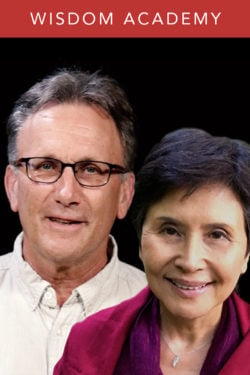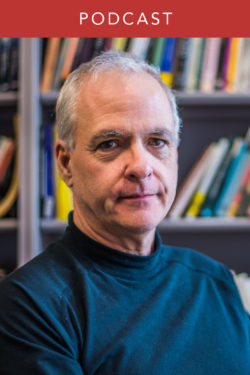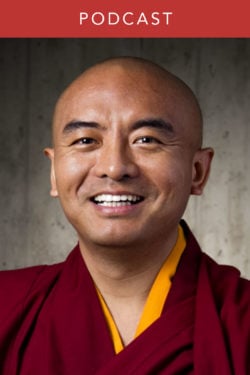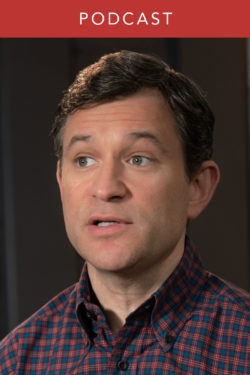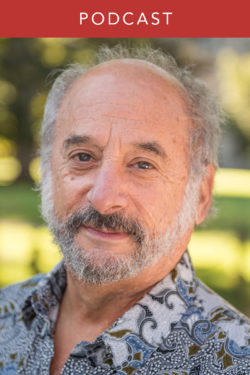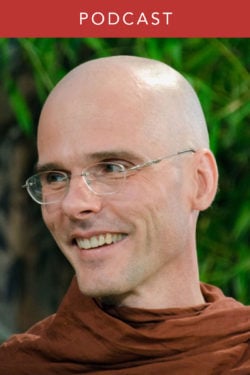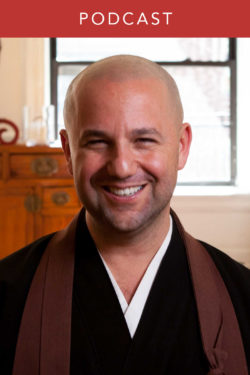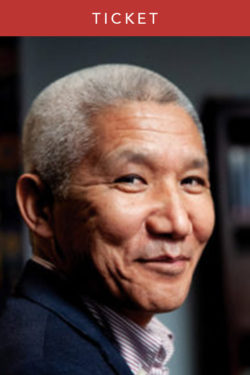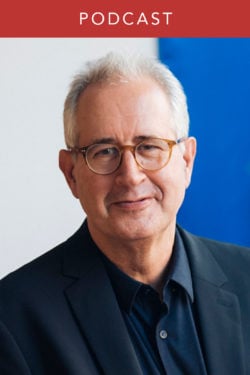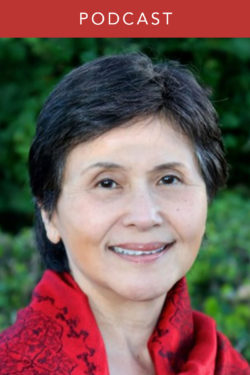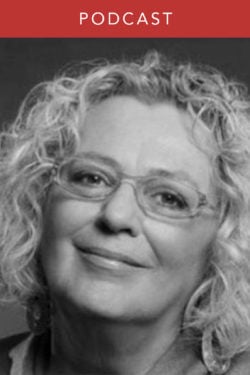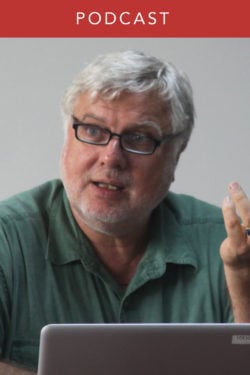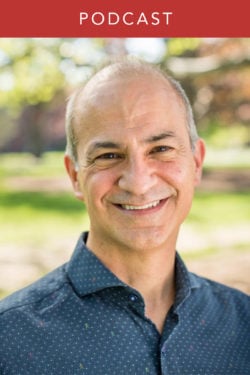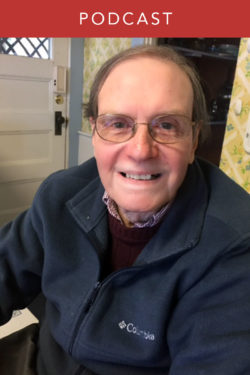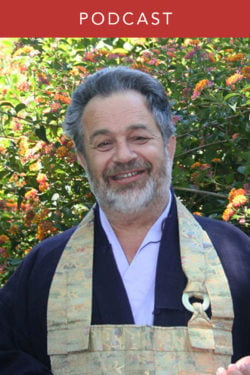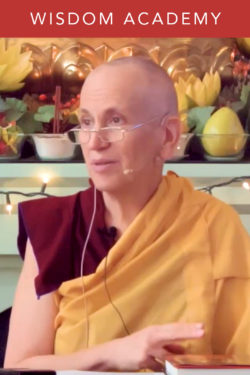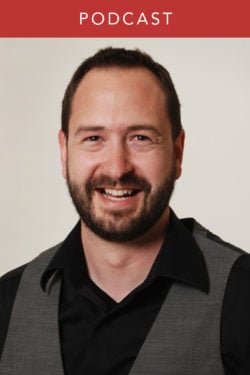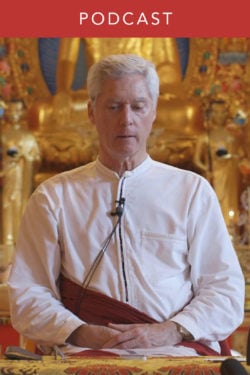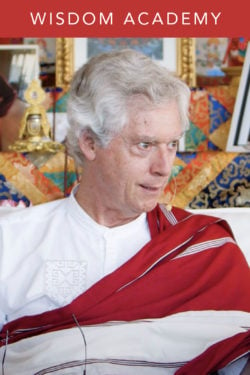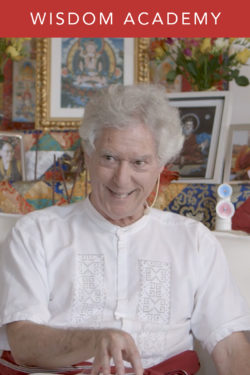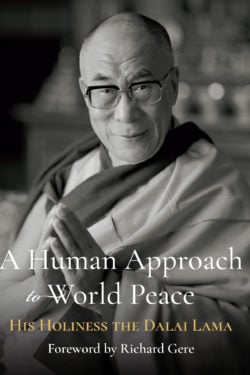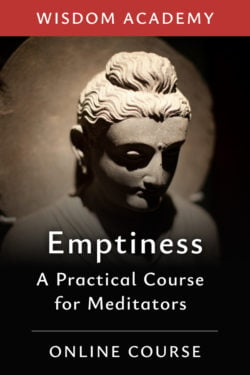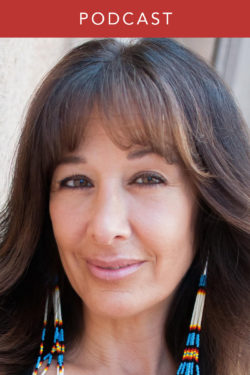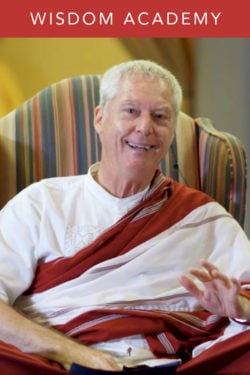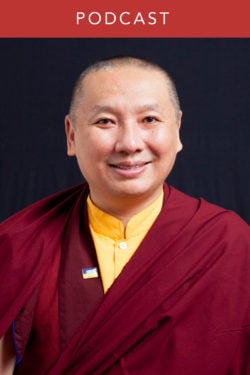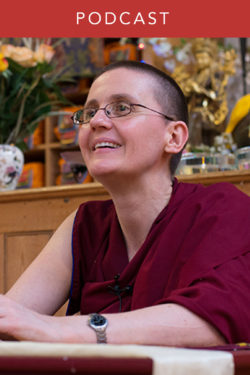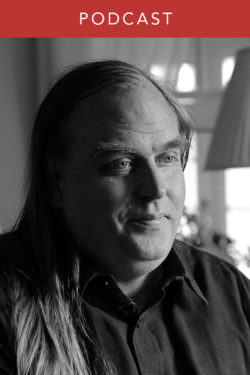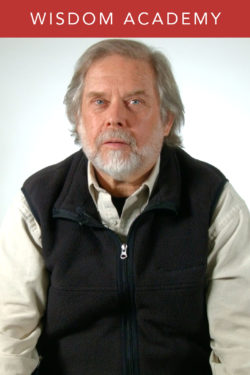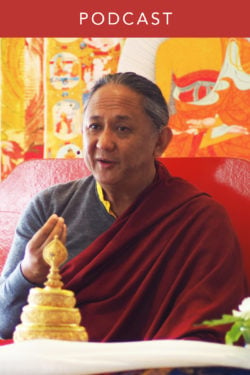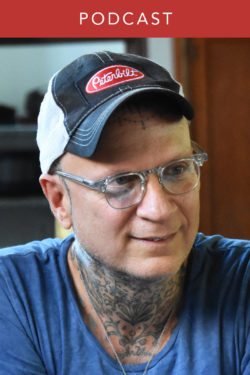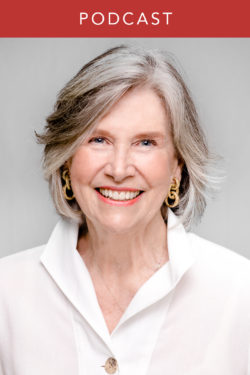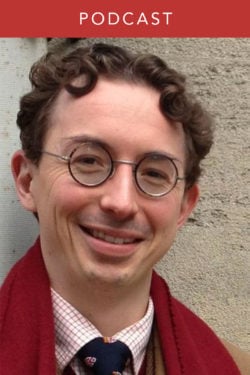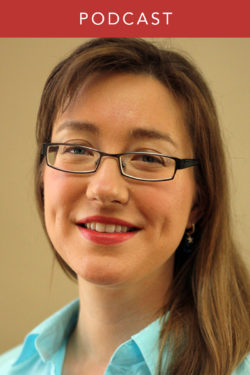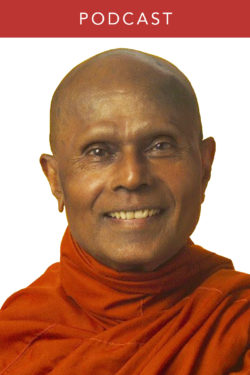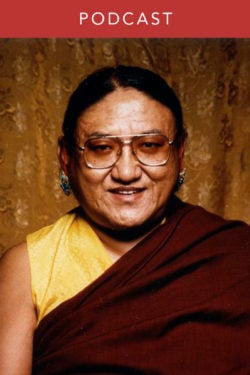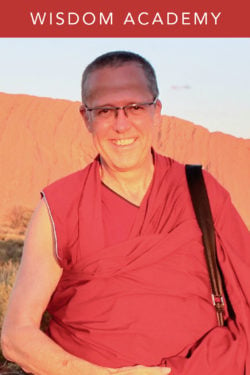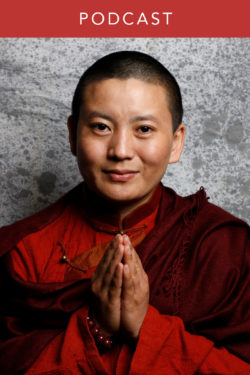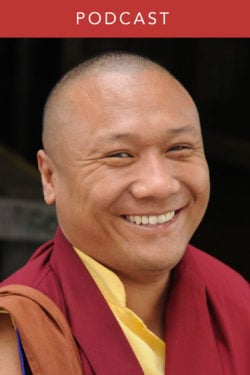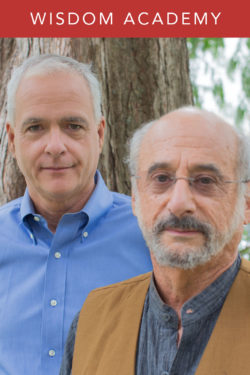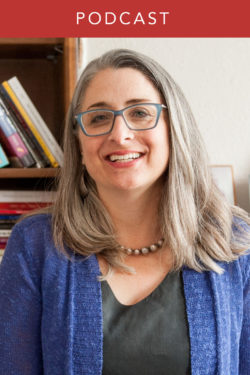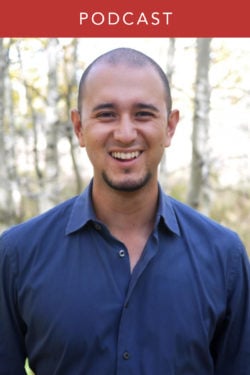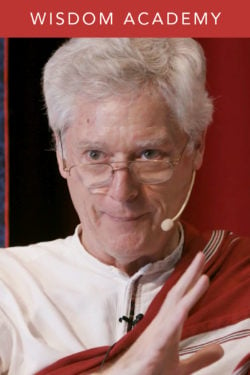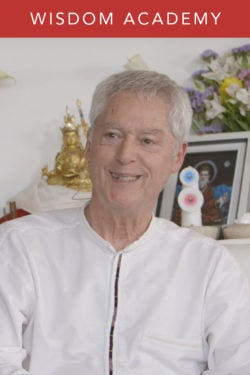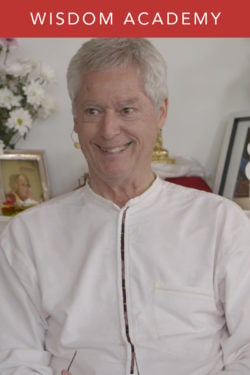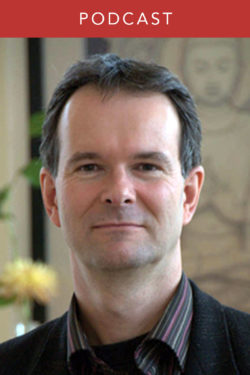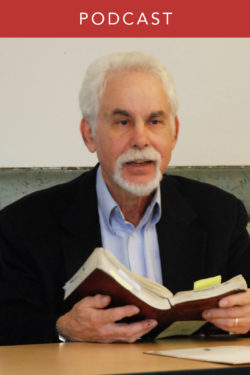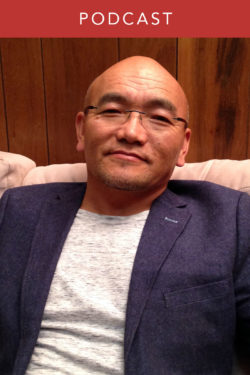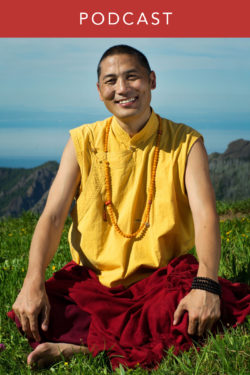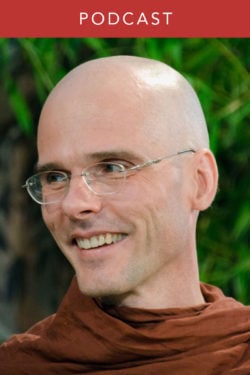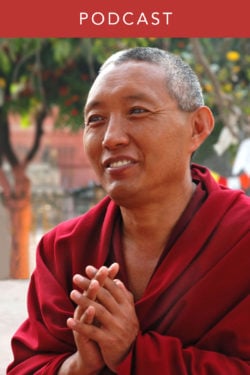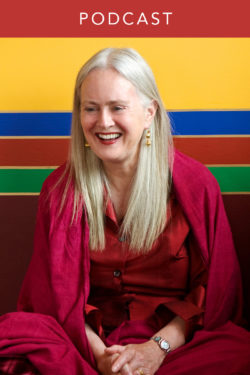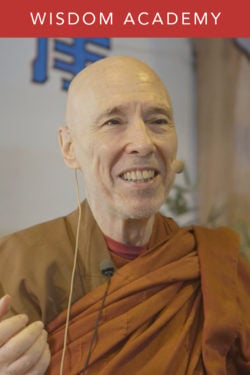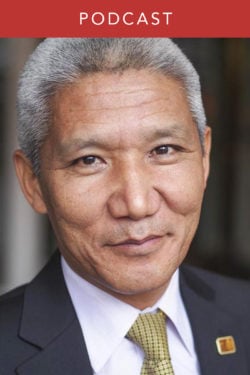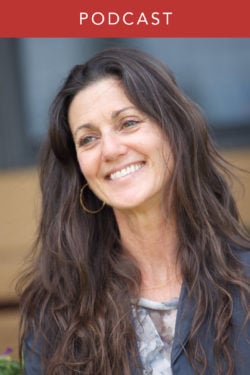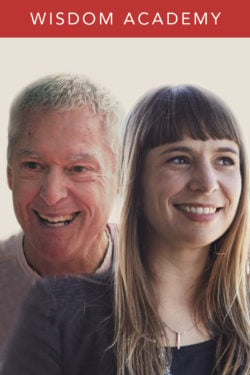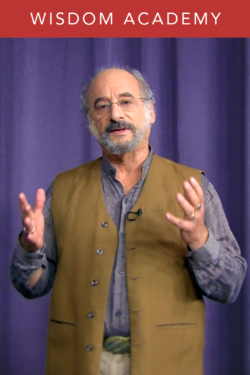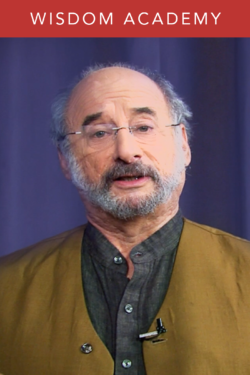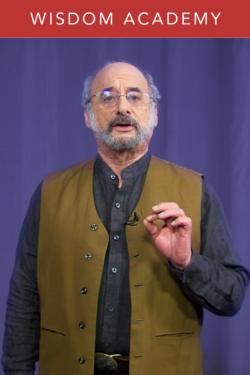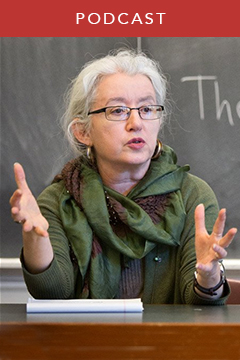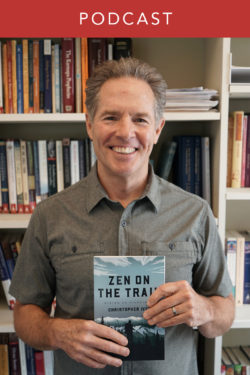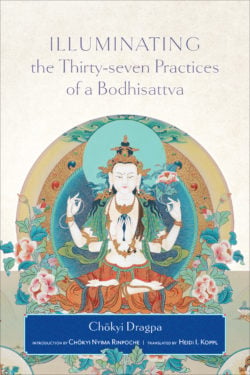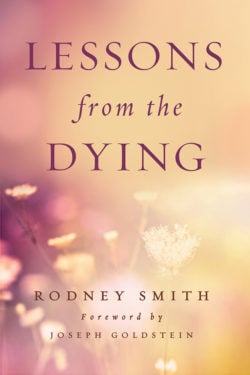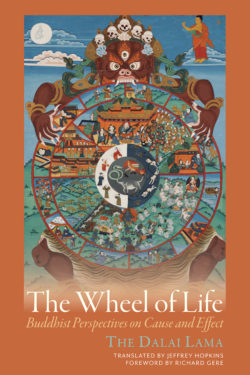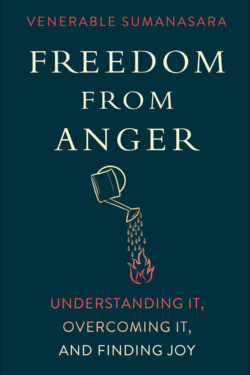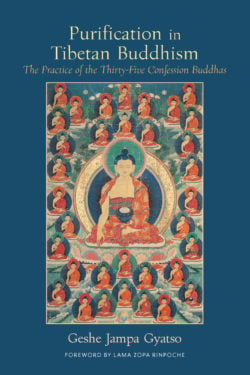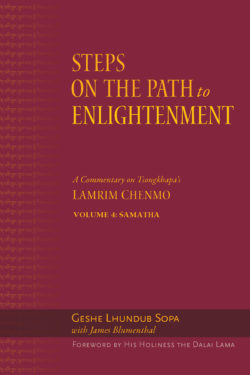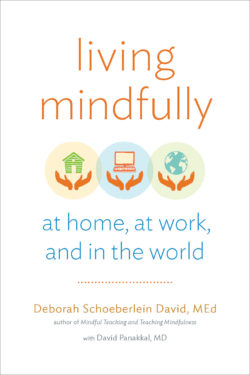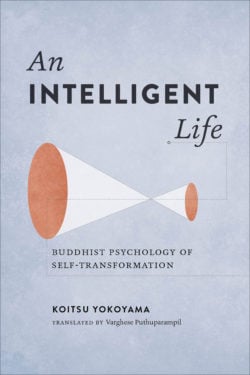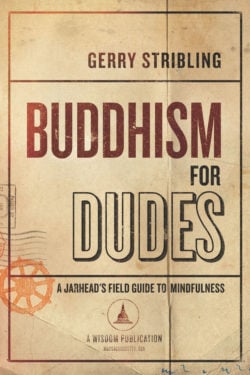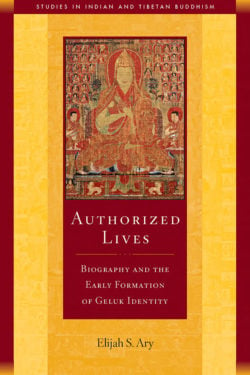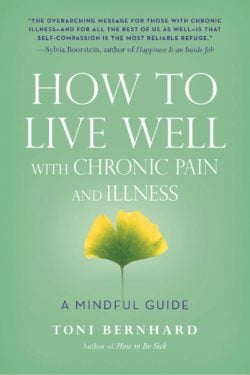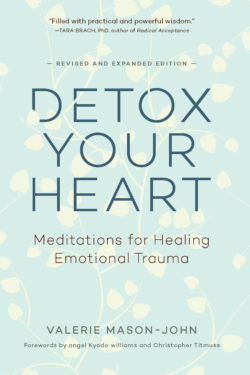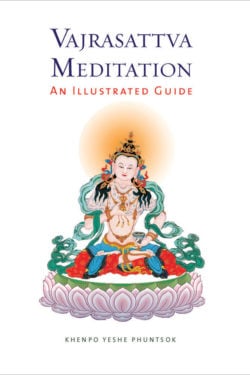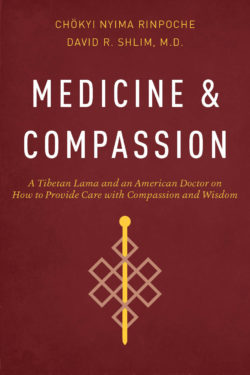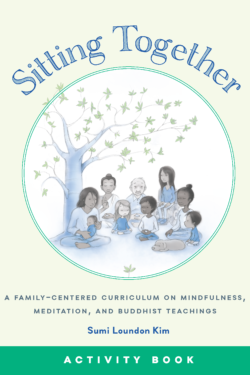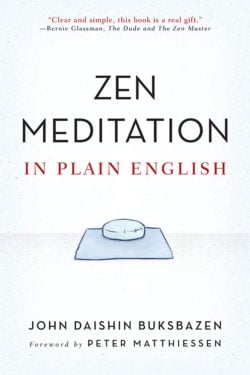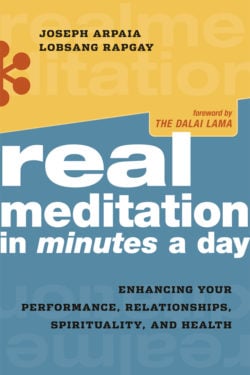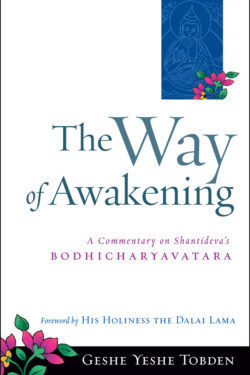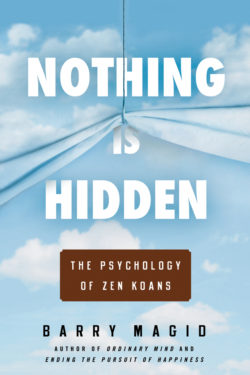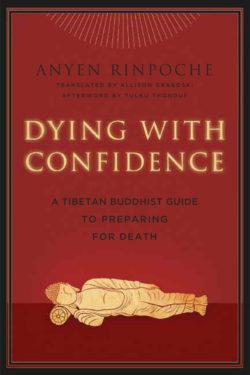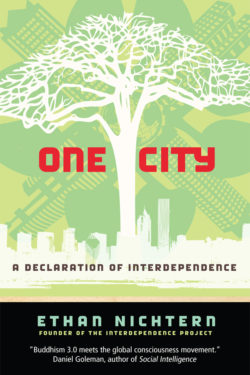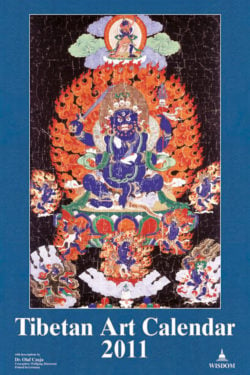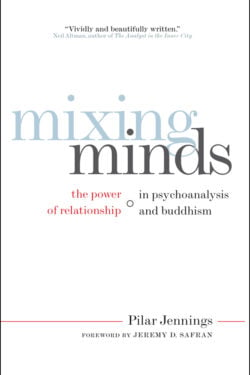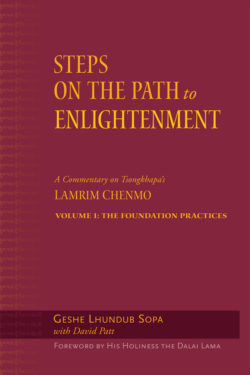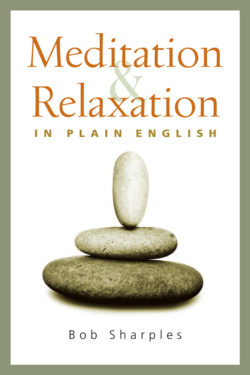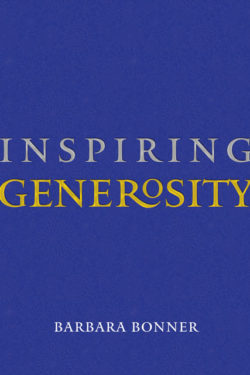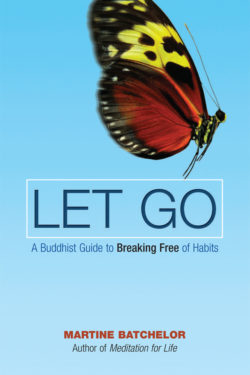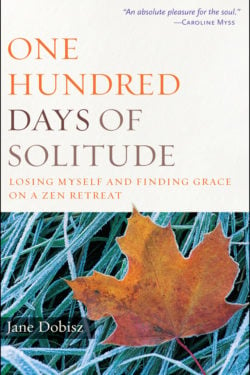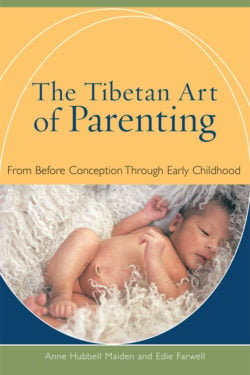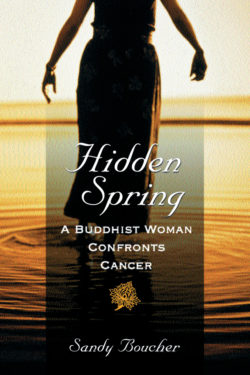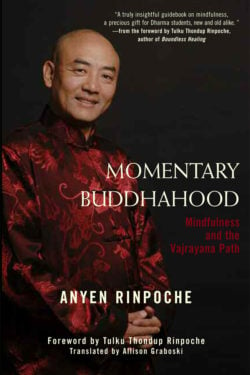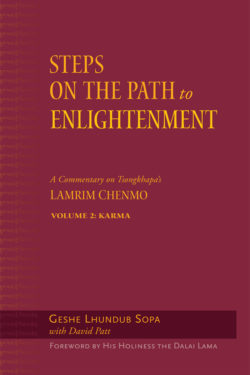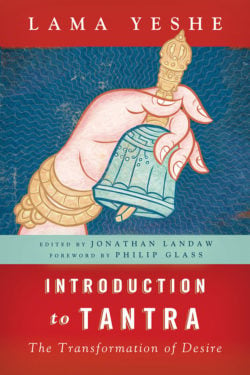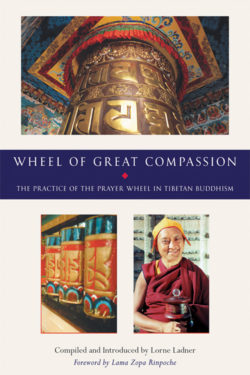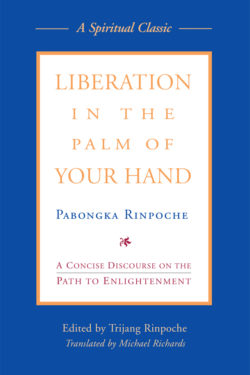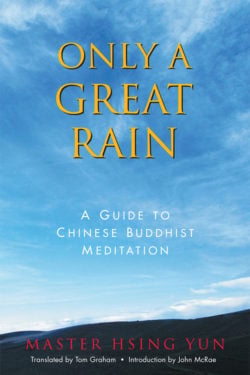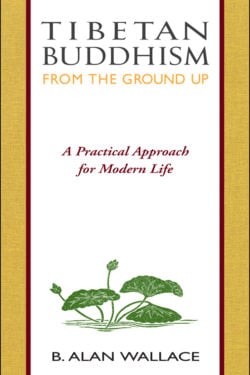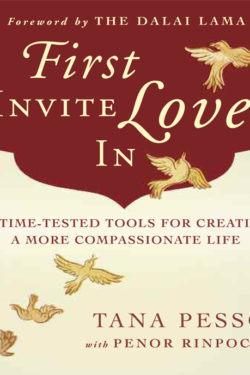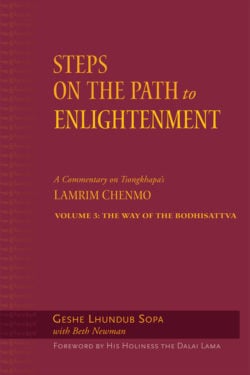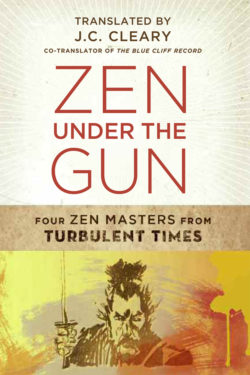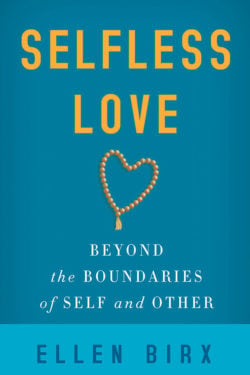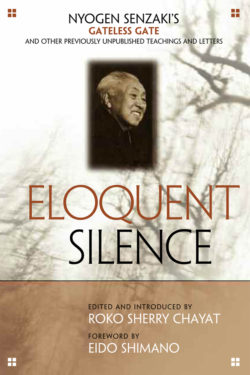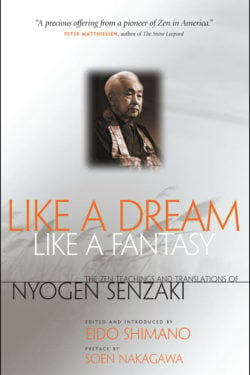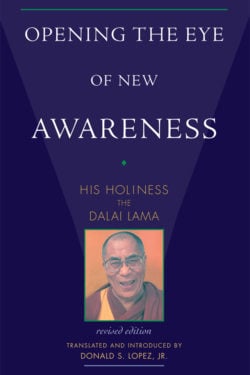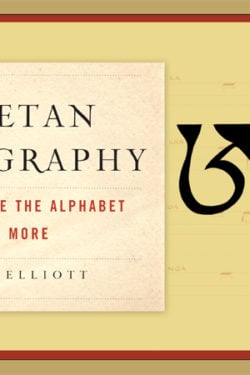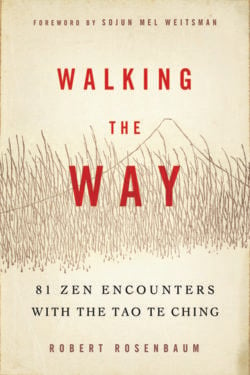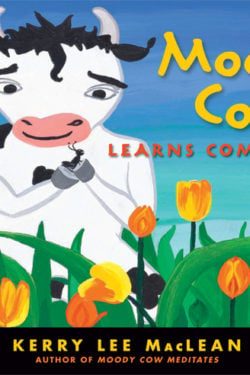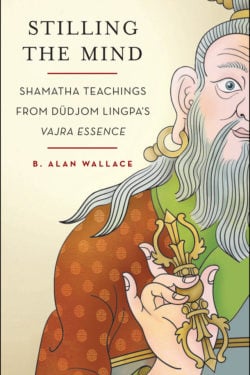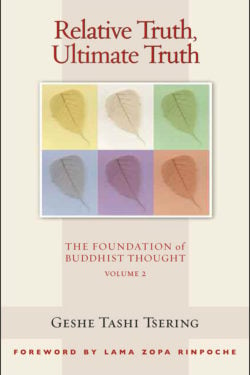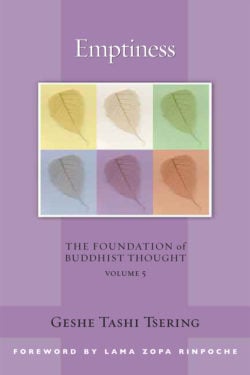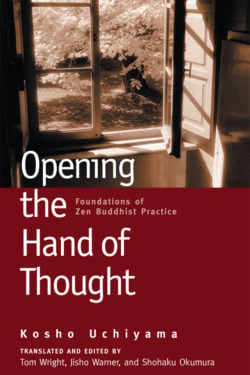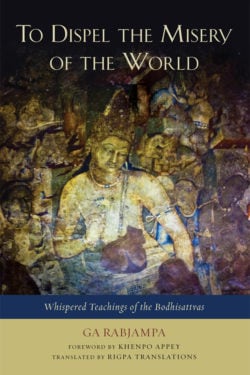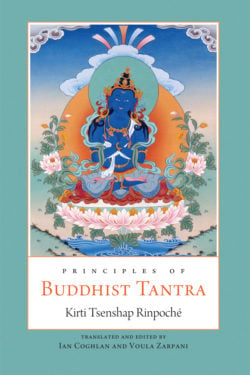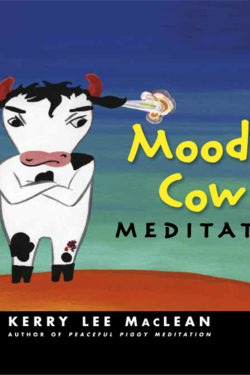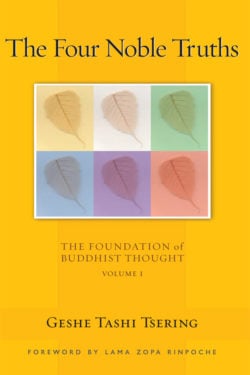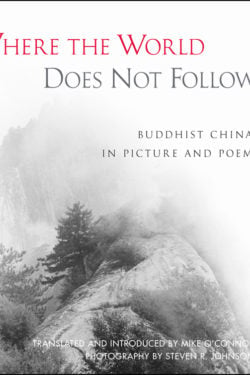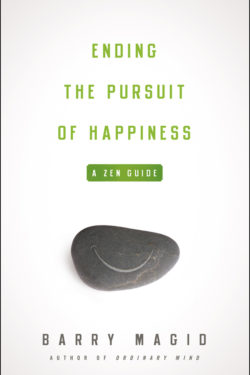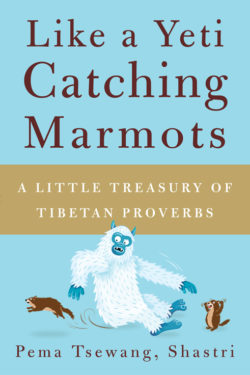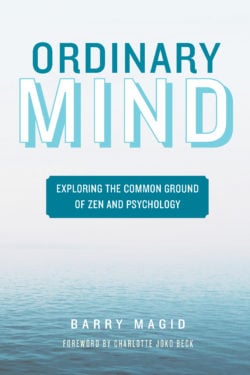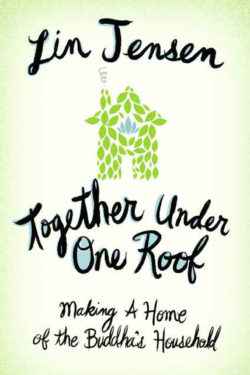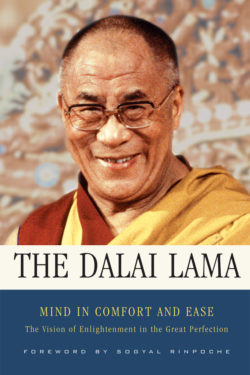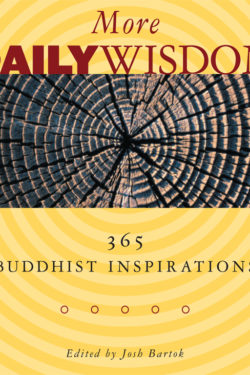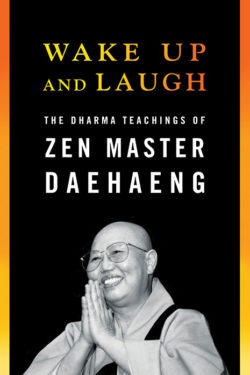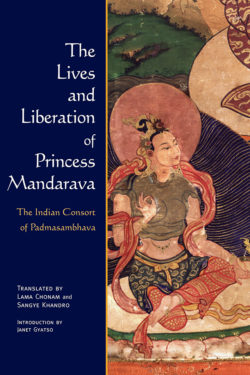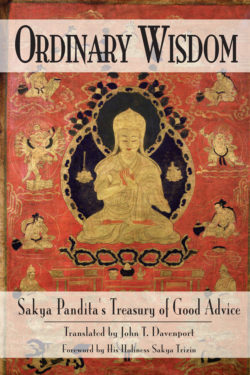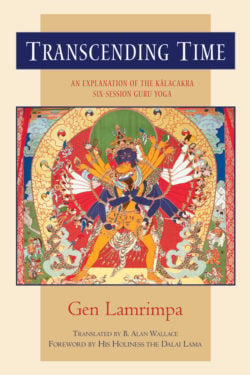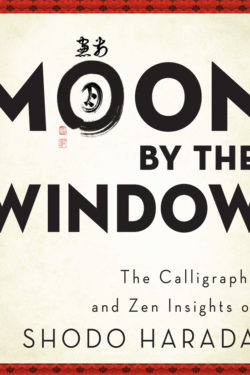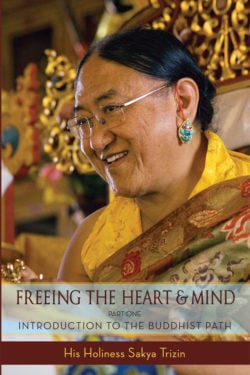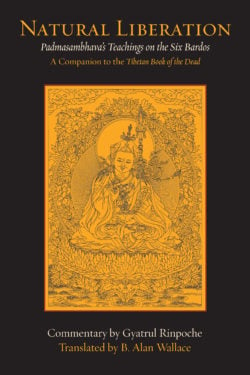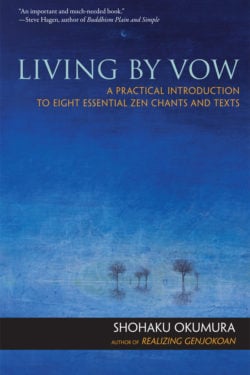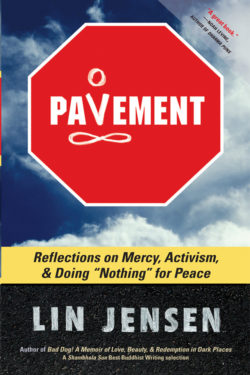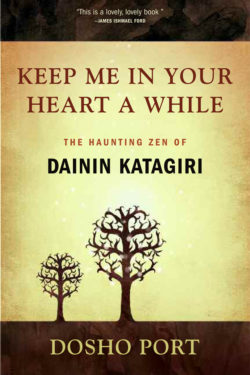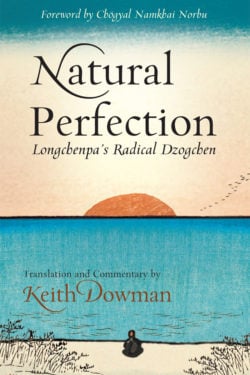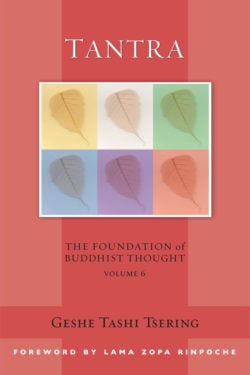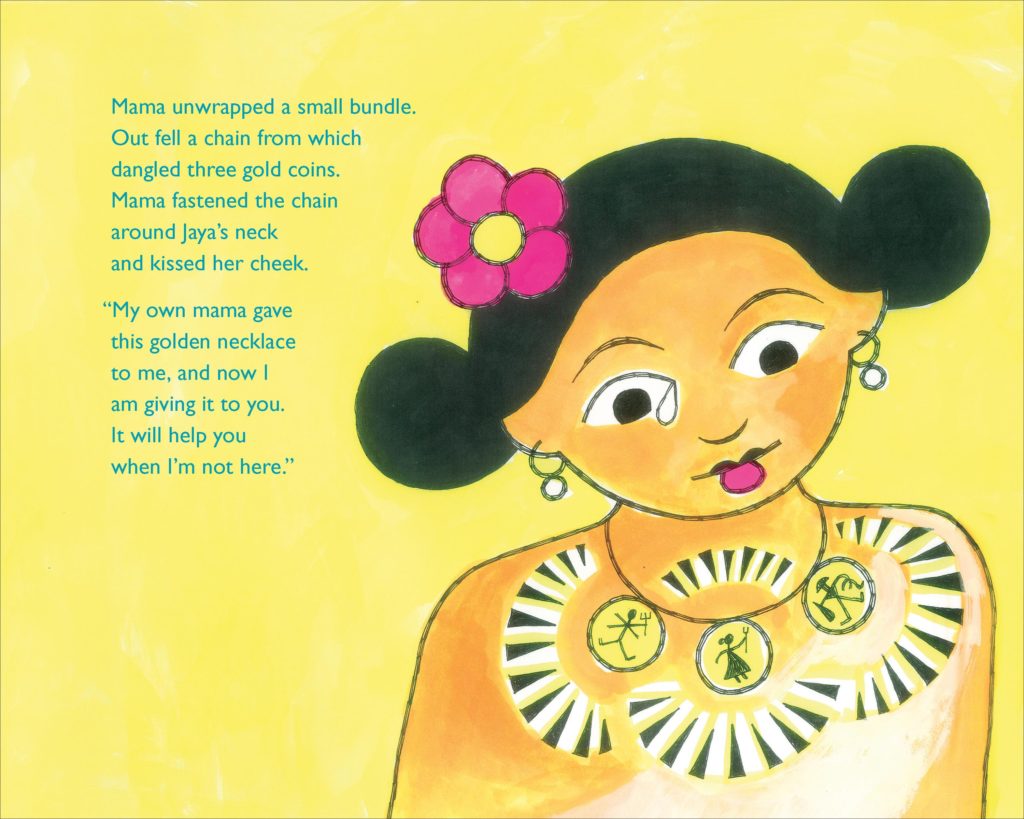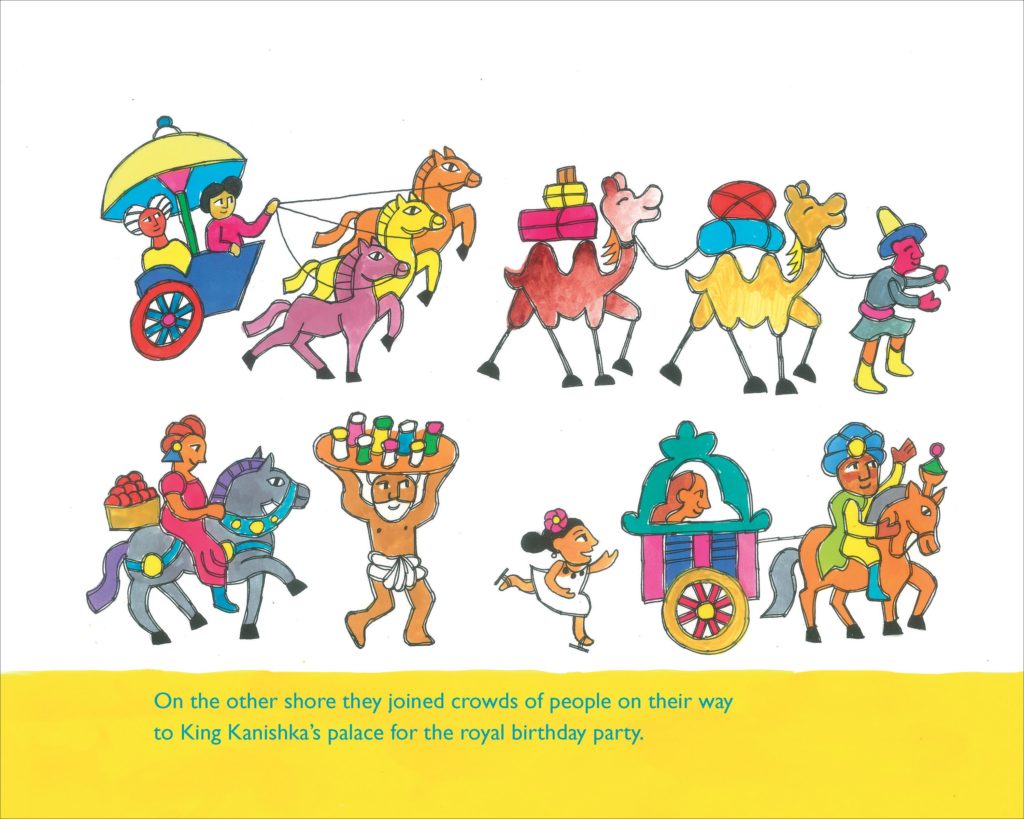Ruben L.F. Habito
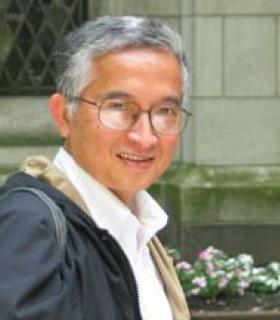
A former Jesuit priest, Ruben L.F. Habito is professor of world religions and spirituality at Perkins School of Theology, Southern Methodist University, and resident teacher at Maria Kannon Zen Center in Dallas, Texas. A dharma heir of Yamada Koun, he is also the author of Healing Breath and other works in Japanese and English.
Books, Courses & Podcasts
Studio Ticket – Ani Choying Drolma
This is a ticket to be a live studio audience member during the filming of the Wisdom Dharma Chats episode with Ani Choying Drolma on Wednesday, July 23, 2025, at 132 Perry St., New York, NY 10014.
In this Wisdom Dharma Chats episode, Ani la will share insights into her spiritual journey—from a childhood marked by hardship to finding sanctuary in monastic life and ultimately discovering music as both a refuge and a powerful vehicle for compassion. Together, she and host Daniel Aitken will explore how music can become a spiritual practice in its own right—opening the heart, nurturing resilience, and connecting us to something greater.
ARCHIVED: Studio Ticket – Yongey Mingyur Rinpoche & Robert Thurman
Tickets for the In-Studio Audience are Sold Out
This is a ticket to be a live studio audience member during the filming of the Wisdom Dharma Chat episode with Yongey Mingyur Rinpoche and Robert Thurman on Monday, April 28, 2025, at 132 Perry St., New York, NY 10014.
In this Wisdom Dharma Chat, hosted in collaboration with Tergar International and Tibet House US, Rinpoche and Thurman will come together for an exploration of wisdom, perception, and the nature of mind. Drawing from the vast philosophical traditions of Buddhist thought and the direct experience of meditative realization, this conversation will offer insights into how we can transform our habitual ways of seeing, recognize the mind’s innate clarity, and embrace a path of self-liberation.
Thurman, a leading scholar of Indo-Tibetan Buddhist philosophy and a lifelong advocate for preserving its living traditions, will bring his deep understanding of Buddhist texts and teachings into dialogue with Rinpoche, a renowned meditation master trained in the highest Vajrayana practices, who has spent years in retreat and undertaken a solitary wandering retreat through the Himalayas, for a conversation you won’t want to miss. With Daniel as their host, this event provides a rare opportunity to engage with two remarkable teachers whose lives and work have been dedicated to making these profound teachings accessible to the modern world.
Ācārya Malcolm Smith – Wisdom Dharma Chat – Studio Ticket – 08/21/25
This is a ticket to be a live studio audience member during the filming of the Wisdom Dharma Chat episode with Ācārya Malcolm Smith on Thursday, August 21, 2025, at 132 Perry St., New York, NY 10014.
Please join us for this episode of Wisdom Dharma Chats as host Daniel Aitken welcomes back Ācārya Malcolm Smith. Fresh from wrapping filming on his brand-new Wisdom Academy course, Malcolm will share behind-the-scenes perspectives and personal insights into the profound and transformative path of the great perfection. Together with Daniel, he’ll explore the challenges and blessings of presenting these teachings for a modern audience, and what it means to integrate the view of Dzogchen into everyday life. This conversation will also touch on Malcolm’s upcoming book, Yoga of the Natural State: The Dzogchen Aural Lineage.
Whether you’re a longtime student of Dzogchen or newly curious about its radical approach to awakening, this Dharma Chat offers a rare opportunity to connect with one of today’s most respected Western teachers and translators of the great perfection. We hope you’ll join us live—online or in-studio—for this illuminating conversation.
How to Enjoy Death
“When suddenly one day one of your loved ones dies and you don’t know what to do to help, you’ll feel so confused, so lost. This made me think that knowing how to help others at the time of death is such important education to have. By providing the right support, the right environment, you can help your loved one die peacefully, with virtuous thoughts, and thus have a good rebirth.”—Lama Zopa Rinpoche
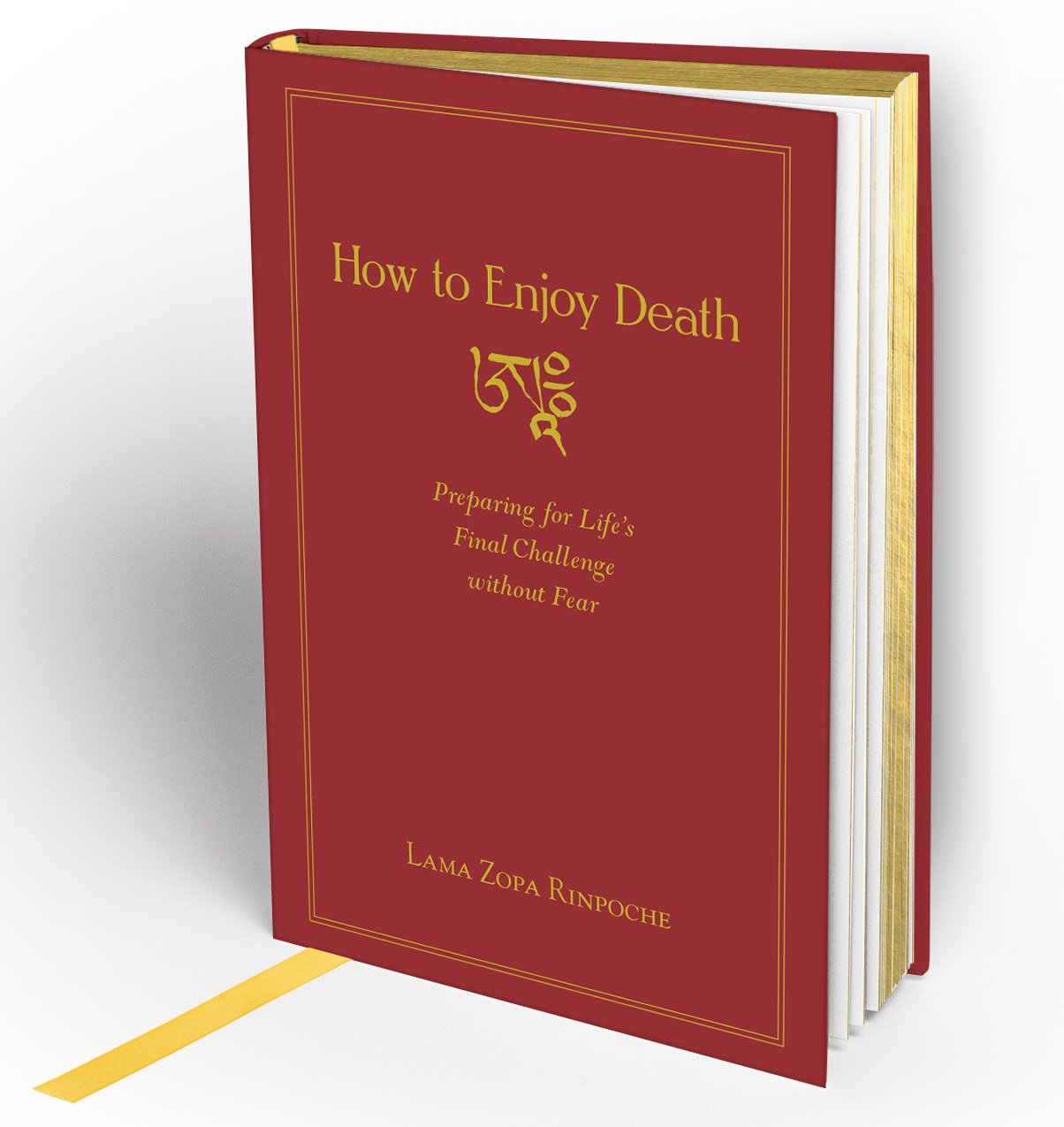
For years Lama Zopa Rinpoche has envisioned a practical book to inform students of how to help loved ones have a beneficial death. How to Enjoy Death has been compiled from years of Rinpoche’s teachings and has been lovingly edited by Venerable Robina Courtin. Here Lama Zopa Rinpoche provides detailed advice on how best to prepare ourselves to face the inevitable end of our own and our loved one’s lives with courage, grace, and a mind free of fear. With great care, Rinpoche explains what to do in the months, weeks, and days that precede death, as well as how to handle the moment itself and the mantras, prayers, and meditations that must follow the death of a loved one. All of the practices one needs to be prepared to face death are handily included between the covers of this thoroughly pragmatic volume, making this an essential reference for Tibetan Buddhist practitioners, caregivers, hospice workers, or chaplains.
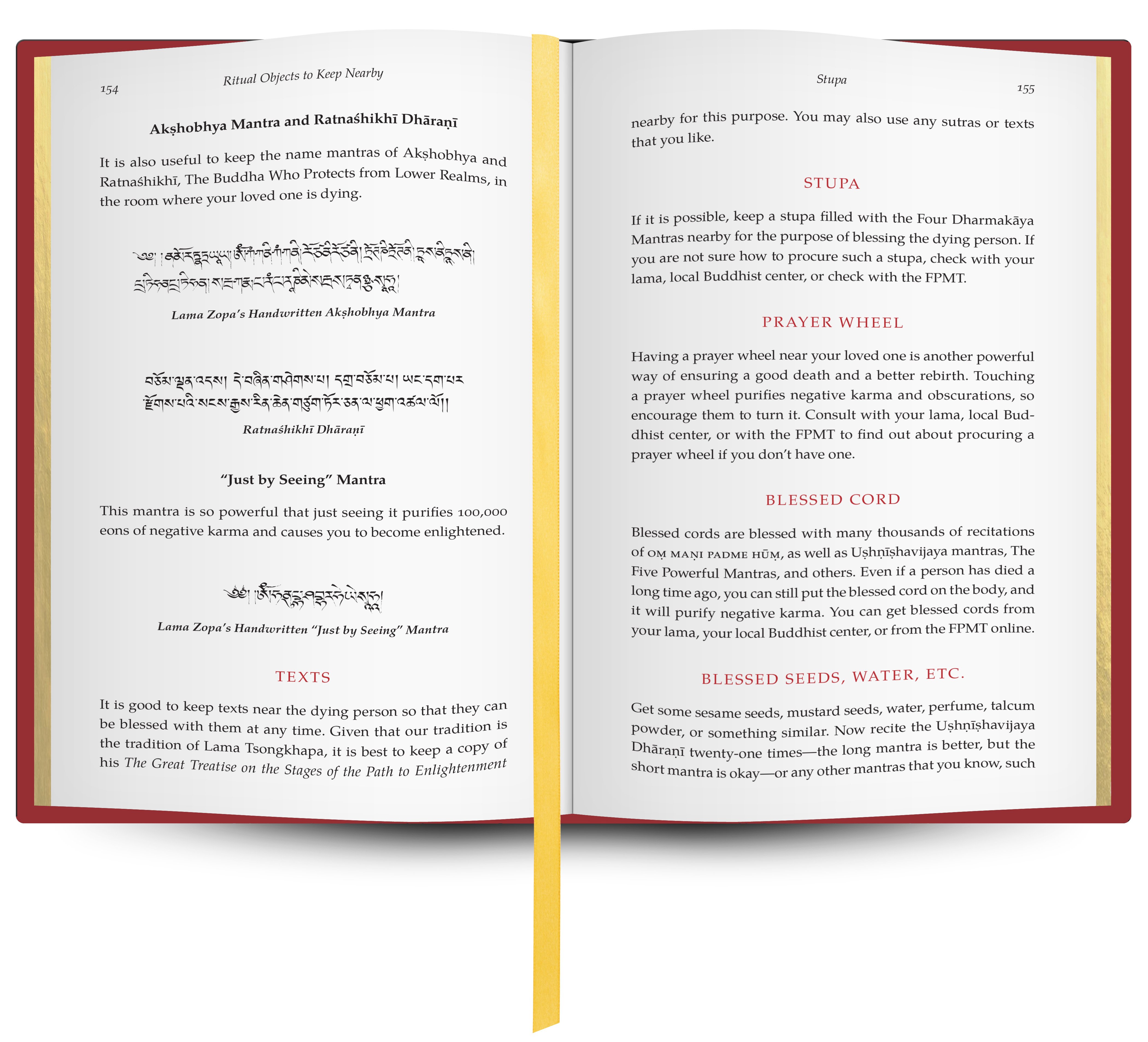 This limited edition book includes:
This limited edition book includes:
- 16 full color images, including the Wheel of Life, Buddha Śhākyamuni, and more
- 2 pull-out cards printed with mantras requested specifically by Lama Zopa Rinpoche
- the full text of essential prayers and rituals
- 2 ribbon page markers to mark common practices and keep place in your process
- Beautiful and durable faux leather flexible cover
- 2-color interior to help you navigate the different practices
Introduction to Dzogchen
Dzogchen (or “Great Perfection”) is regarded by many to be the pinnacle of the Buddhist teachings, as it presents the most direct path to realizing our true nature and to unveiling the deepest dimensions of consciousness. This course is rooted in The Foolish Dharma of an Idiot Clothed in Mud and Feathers, a short text by the nineteenth-century Dzogchen master Düdjom Lingpa. In this pithy and relatable teaching, he presents the view, meditation, and way of life of the Great Perfection from his own experience, inspired by his many visions of the “Lake-born Vajra” manifestation of Padmasambhava who first introduced the teachings to Tibet in the eighth century. With delightful humility he describes himself as an old vagabond, ludicrously clothed in mud and feathers, who has shaken his beggar’s satchel and presents these lucid teachings as what came out.
The course’s intended audience is mature Dharma students with a strong basis in the foundational teachings and practices of Tibetan Buddhism and who have a significant interest in learning how liberation is possible in this lifetime. In this way we regard this as an “advanced introduction” to the teachings and practices of Dzogchen.
The ten lessons in course are available to access in their entirety and you may proceed through the lessons at your own pace.
H. H. the Karmapa: Vegetarianism, Online Education, and Nuns’ Ordination
For our debut episode, Daniel travels to Dharamsala, India, to interview His Holiness the Karmapa, Ogyen Trinley Dorje.
His Holiness talks about the efficacy of listening to Dharma classes, receiving empowerments, and taking ordination vows online, touching on the differences between Tibetan and traditional Western education and how each benefits from dialogue with the other.
He further shares some thoughts on how Western Dharma centers could be improved; he talks about vegetarianism, including anecdotes from his own and his previous emanations’ experiences with vegetarianism; and he discusses his recent involvement planning to re-establish the tradition of full ordination for Tibetan Buddhist nuns.
Elijah Ary: The First Western Geluk Tulku
Elijah Ary was the first Westerner to be recognized as the tulku (reincarnation) of a Tibetan lama in the Geluk tradition. In this episode, Elijah discusses the process of his being recognized as a tulku, the impact this has had on his life, and what he imagines his role to be in the dialogue between East and West.
Bhikkhu Bodhi: Translating the Buddha
In this episode of the Wisdom Podcast, of Wisdom’s most renowned authors, translator Bhikkhu Bodhi, visits the Wisdom office. He tells his own story, painting a picture of what it was like in the days of Buddhism first coming to the West, how he encountered Buddhism, and what living in Sri Lanka in the 70s was like. He also gives some translation advice to aspiring translators and discusses his forthcoming translation of the Buddha’s teaching in the Sutta Nipata. Finally he tells us about his recent humanitarian efforts in Asia.
David Loy: Modern Buddhism
Join us for an intimate and wide-ranging discussion with David Loy, Zen teacher and Wisdom author. David tells us how he was introduced to Buddhism, sharing stories from key points in his life and his experiences as a student of Yamada Koun and Robert Aitken. He then discusses how modern spiritual people tend to distort spiritual ideas to their own ends through a process known as spiritual bypassing, and how Buddhists today might engage with issues like the institutionalization of ignorance and suffering.
This is a rare opportunity to hear a leading Buddhist thinker discuss his personal story and the ideas he’s renowned for, including the most pressing issues of Buddhist philosophy in our time.
Jamyang Rinchen 1: Translating for the Dalai Lama
Jamyang Rinchen (蔣揚仁欽) moved away from his family in Taiwan at a very young age to become a monk and study at the Dalai Lama’s Institute of Buddhist Dialectics in Dharamsala. In this first episode of two, Jamyang talks about his early life and education at a monastic institution, and how he later went on to become the Dalai Lama’s principle Chinese translator.
Jamyang also tells the story of his journey to Boston to complete his doctoral degree at Harvard and shares some of the key points from his dissertation.
Jamyang now lives in Dharamsala, India, which is where this interview took place in Jamyang’s home.
Jamyang Rinchen 2: My Guru, the Dalai Lama
Jamyang Rinchen (蔣揚仁欽) travels in the Dalai Lama’s entourage as his principle Chinese translator. In this episode he tells us what His Holiness is like when out of the public eye and shares some special stories of occasions he has witnessed with the Dalai Lama that especially enriched Jamyang’s own faith in His Holiness—stories of genuine compassion, consideration, humility, and non-attachment.
Ven. Thubten Chodron: An American Buddhist Abbess
On this episode of the Wisdom Podcast, hear host Daniel Aitken’s conversation with Venerable Thubten Chodron, the abbess of Sravasti Abbey in Newport, Washington. Venerable Chodron recounts her first exposure to Buddhism back in the 1970s on a trip to Nepal and India in her twenties. After returning to the United States and showing up to a meditation class, she describes becoming rapidly certain that she had found a tradition which offered thought-provoking, meaningful answers in response to the many existential questions of her life.
Many of Venerable Chodron’s earliest experiences as a nun were influenced by a series of encounters with masters for which she has felt deeply grateful throughout subsequent decades of practice. She outlines how one, Lama Zopa Rinpoche, demarcated dharma and non-dharma actions according to one’s entanglements with the eight worldly concerns and expounds upon how this line of teaching transformed her motivations and practice. After years of living and training as a novice, Venerable Chodron describes the beautiful moment when she became a fully ordained Bhikshuni in 1986, and her expanded journey as a Buddhist monastic following that point.
Daniel and Venerable Chodron then transition to a discussion of the state of affairs for Western Buddhist monastics today, the challenges and rewards of monastic life, and her reasons for starting Sravasti Abbey. While they agree that the widespread uptake of meditation and mindfulness techniques across America has certainly benefited many, they lament that the larger Buddhist worldview is often lost in translation. Venerable Chodron shares her hopes that growing monastic communities in the West, such as her own at Sravasti Abbey, are able to offer the support that is so crucial to sustaining a monastic life, both spiritually and materially.
Finally, Venerable Chodron speaks about her recent book, Buddhism: One Teacher, Many Traditions, how it came to be, and what she learned throughout the long process of writing it.
For further thoughts and teachings from Venerable Chodron, be sure to check out the books she has compiled and co-authored with His Holiness the Dalai Lama, including The Foundation of Buddhist Practice, Approaching the Buddhist Path, Samsara, Nirvana, and Buddha Nature, Following in the Buddha’s Footsteps, In Praise of Great Compassion and of course, Buddhism: One Teacher, Many Traditions. Venerable Chodron’s Wisdom Dharma Chat with Daniel and her Wisdom Academy online course are also available through Wisdom.
Jeffrey Hopkins: The Life of a Buddhist Scholar
Jeffrey Hopkins was translator for His Holiness the Dalai Lama from 1979 to 1989 and Professor of Tibetan Studies at University of Virginia, and has published more than forty books.
Jeffrey started meditating while at Harvard and then, inspired by Thoreau and W. Somerset Maugham, spent time in a cabin in the woods in Vermont. He describes this and other adventures as a young man where he discovered the power of the meditative experience, including a wild ocean voyage through the South Pacific. We hear how he developed various meditative practices without any formal knowledge of Buddhism and how he first encountered Buddhism directly when he met Geshe Wangyal. Jeffrey shares amusing and heartening stories about life with Geshe Wangyal and Geshe Sopa in Madison, Wisconsin, and how these two great teachers inspired him to begin delving into the intellectual exercise of Buddhist philosophy and guided him in his study and practice. He then tells of his many private conversations with the Dalai Lama about the books they created together, and how he was one of the first westerners to receive initiation from the Dalai Lama. We also hear about how Jeffrey began translating for the Dalai Lama, and how working with the Dalai Lama has influenced Jeffrey’s thinking and translation. Additionally, our host Daniel Aitken asks Jeffrey to share his thoughts on the definition of emptiness, and the challenging experience and practice of having Lyme Disease.
Deborah Schoeberlein David: The Meaning of Living Mindfully
In this episode of the Wisdom Podcast, our host Daniel Aitken interviews mindfulness author Deborah Schoeberlein David. They begin by discussing how her book Living Mindfully came to be, and go on to the importance of understanding mindfulness deeply as it becomes increasingly popular. Deborah reflects on the difference between mindfulness and meditation in modern terms, how to have a more meaningful experience of mindfulness, and the debate around what mindfulness is. She brings up the importance of morality in mindfulness and shares what she thinks it actually means to be mindful in everyday life–for example, when going to the movies. Deborah then tells us about the experience of being with her father during his death in summer 2015, how her practice helped her during that time, and how the experience was both “extraordinarily painful and absolutely fine.” We hear how her father’s death was a profound teaching for her. Finally, we learn how to have a flexible, resilient, useful mindfulness practice; Deborah’s take on what mindful parenting really means; and the danger of trying to “force” mindfulness on children.
Stephen Batchelor: After Buddhism
This Wisdom Podcast episode features Stephen Batchelor, renowned Buddhist author, teacher, and proponent of secular Buddhism. Batchelor tells us of his coming of age in the 1960s counterculture—listening to bands like Pink Floyd, reading Herman Hesse and Alan Watts, and being inspired to visit India, traveling there overland from France in 1972.
He then shares how he began studying Buddhism at the Library of Tibetan Works and Archives in Dharamsala, in the presence of the Dalai Lama and Geshe Ngawang Dhargyey, and living amongst Tibetan refuges. We hear what the Buddhist scene was like for Western “seekers” in India and Nepal in the early 1970s, and Batchelor’s experience practicing with Geshe Rabten. Batchelor describes his experience as a monastic and how he reached a point of crisis in his Tibetan Buddhist training when it came to believing certain fundamental doctrines.
He then tells us how he learned vipassana meditation from S.N. Goenka and began developing his own view of Buddhism, also inspired by Aristotle’s concept of flourishing. Next we hear how he practiced as a Zen monk in South Korea for three years, and what he found uniquely helpful in the Zen tradition. Batchelor and host Daniel Aitken also discuss classical Greek philosophy in tandem with Buddhism philosophy, analyzing several interesting parallels. Batchelor then shares his thoughts on secular Buddhism: defining the word “secular,” the social responsibility that secular Buddhism implies, and his vision of what secular Buddhism has to offer the world.
Elsie Walker: The Dalai Lama and the Presidents Bush
In this episode of the Wisdom Podcast we hear a story of Buddhism and American politics: how Presidents George H. W. Bush and George W. Bush met the Dalai Lama, as told by President Bush Sr.’s cousin Elsie Walker.
Elsie begins with the story of how she got involved with Tibet House and then reached out to her cousin, President George H. W. Bush, to tell him how she wanted to support the Tibetan people. She then tells us how President George H. W. Bush became the first U.S. president to meet His Holiness the Dalai Lama. We hear about the President’s spiritual side, the great pressure on the U.S. government to avoid contact with His Holiness, and how at the last minute Elsie managed to arrange a meeting in April 1991.
Elsie describes the President and the Dalai Lama’s meeting in detail, and also shares how she herself met the Dalai Lama and what they discussed. She then tells how she arranged the meeting between the Dalai Lama and President George W. Bush.
Robert Thurman: A Life in Buddhism
In this episode of the Wisdom Podcast, host Daniel Aitken interviews Robert Thurman, renowned scholar of Buddhism and friend of His Holiness the Dalai Lama.
In this rich conversation, we first find out why Robert originally dropped out of Harvard as a senior and went to India, and how Geshe Wangyal brought him to the Dalai Lama, who took on Thurman as a student. Robert was ordained by the Dalai Lama, but we hear why he never followed the path to becoming a geshe. He eventually returned to the U.S., disrobed, and met his wife-to-be Nena.
Robert shares how he came to become a professor of Buddhism and also talks about Geshe Wangyal’s clairvoyance in guiding his (Thurman’s) major life choices. We also hear his thoughts on secular Buddhism and mindfulness and his recommendations to those who have just discovered mindfulness on what they should explore next.
Robert then tells us his first impressions of the Dalai Lama (when His Holiness was just 29 years old) and his view on whether Buddhists are atheists. He reflects on the state of Buddhism today in the U.S., what he considers his main life work to be.
Robert and Daniel’s conversation covers much more, including some of the revolutionary ways that certain scientists are talking about religious and spiritual experiences and how to find a genuine teacher, and what to do when a teacher turns out to be corrupt.
C.W. Huntington and Francisca Cho: Emptiness and Fiction
This episode of the Wisdom Podcast features Buddhist thinkers C.W. “Sandy” Huntington and Francisca Cho. Sandy is the author of Maya, a novel published by Wisdom. Francisca is an associate professor of Buddhist Studies at Georgetown University and the author/translator of the Wisdom book Everything Yearned For: Manhae’s Poems of Love and Longing.
Sandy begins by reflecting on how the conflation of reality and illusion is a central theme in his novel, and what draws him to this theme. Francisca responds by bringing in the theme of “real life” versus art, and questions the way these two are set in opposition. We then hear Sandy’s thoughts on how what we call reality resembles a story, and Francisca’s thoughts on how even science tells us stories and what this means for the dialog and conflicts between science and religion.
Sandy shares how his journey into Buddhism started with a curiosity about suffering, and Francisca tells us how she became interested in philosophy and fiction. She introduces the idea of how the experience of art is no different than a religious practice. She brings in daoism and how it emphasizes the importance of our everyday, “nothing special” actions as a lived philosophy.
Sandy then discusses his understanding of the Buddhist debate about whether things ultimately exist or not. He shares his thoughts on how philosophical arguments have an ultimately groundless or dreamlike quality, and the importance of keeping a sense of humor in academic discourse. Sandy also reflects on how people get attached to their own practice of Buddhism, and how fiction and dreaming can help us see the fictitious, dreamlike nature of everyday life.
Pascal Auclair: Living Buddhism from the Heart
In this episode of the Wisdom Podcast, we meet Pascal Auclair, a teacher in the Theravada Buddhist tradition. Pascal starts by telling us how he came to Buddhism when he was traveling in Asia with his partner and ended up at Buddhadasa Bhikkhu’s monastery in Thailand. He was touched by this experience of intimacy with reality. He was struck by the realization that reality is not completely easy and satisfying. He was also deeply affected by the simplicity of the practice of following the breath.
We then hear about another deep inspiration for Pascal’s practice. When he was twenty-five, before he went to Asia, Pascal learned that he was HIV-positive. At that time, there was no medication for HIV. He says that this experience made him more open to the teachings of Buddhism. In good health today, he recalls how this diagnosis was his encounter with the “Heavenly Messengers” of old age, illness, and death. He reflects on what his refuge was then, and how he faced his diagnosis. At that point he felt certain he would not live to the age of forty, and with this sense of time as precious, he set out to go to Asia.
Pascal tells us about the specific practices he learned on that first retreat in Asia. In these early days of practice, he was touched by the light, almost playful way that one can engage with awareness. He then shares the story of an early retreat he did at the Insight Meditation Society with famed Theravadin teacher Ruth Denison, and another retreat with S.N. Goenka. We hear about Pascal’s experience of being mentored by Jack Kornfield and Joseph Goldstein. He also shares his own feelings and thoughts about being a dharma teacher, and his memories of how his grandmother was a profound teacher for him.
He shares his personal daily practice, from morning productivity to afternoon contemplation. Finally, Pascal reflects powerfully on the meeting of dharma practice and social justice. Just like the individual human system, the communities and societies are alive systems that can produce hardship and suffering or well-being and freedom. Pascal speaks of how he feels that he has a personal responsibility to increase his awareness and compassionate action in relation to social strife.
Gerry Stribling: Buddhism for Dudes
This week on the Wisdom Podcast we meet Gerry Stribling, the author of Buddhism for Dudes. Gerry shares how he got into Buddhism when he was volunteering Sri Lanka. He first worked at a nonprofit that protected elephants and soon came across insight meditation. He reflects on how Buddhism helps people become tough and shares what about Buddhism appealed to him, a “tough-guy” ex-military man. He talks about his work with veterans and addicts. He talks about the theme of sacrifice in Buddhism and the military. We also hear Gerry’s thoughts on what a Buddhist’s response to violence might look like. Gerry shares his personal experiences of sitting with dying World War II veterans, and how he sees them relating to death. Gerry and host Daniel Aitken also discuss different ways to respond to ideological violence such as ISIS and the November 2015 attack in Paris. Finally, Gerry shares the incredible international response he’s received to his book Buddhism for Dudes, and what his writing schedule looks like.
Hardcover Desk Copy Processing Fee
Wisdom Publications offers desk and exam copies to educators who have adopted or are considering adopting a Wisdom title for a course. All requests are subject to approval. Desk and examination copies of paperback titles will be fulfilled free of charge; hardcover titles require a $5.00 processing fee. Please allow approximately 3–4 weeks for standard delivery. Books will be sent to school addresses only. Rush requests will be considered only if the added shipping charges are prepaid. If you need further information, please email the marketing department at [email protected].
Bhikkhu Bodhi: The Buddha on Social Harmony
This episode of the Wisdom Podcast features our second interview with renowned Buddhist scholar-monk Bhikkhu Bodhi. Ven. Bodhi tells us about the process of creating his book The Buddha’s Teachings on Social and Communal Harmony and how it arose from a real need in various Buddhist communities. Bhikkhu Bodhi shares what “right view” means in the context of social harmony, explaining the meaning of “mundane right view” and its usefulness in promoting social harmony.
Ven. Bodhi then tells us how Buddhist teachings hold the key to promoting communal peace, tolerance, and understanding. He also reflects on how changing our consciousness can produce changes in our society. Then he tells us about the types of government at the time of the Buddha, and how that affected the development of the Buddha’s thoughts, including his ideal of the “wheel-turning king”–the king who ultimately serves the Dharma. Bhikkhu Bodhi then shares his thoughts on which of Buddhism’s three poisons is causing the most suffering in our time.
Bhikkhu Bodhi then advises us how to understand and use the teaching of “right speech” in the present day, and shares what the Buddha taught about how to be a good friend. He also imagines what advice the Buddha might give world leaders today, especially when dealing with conflict and social strife in their own countries. Ven. Bodhi reflects on what the Buddha might have thought about how to approach ISIS (the Islamic State of Iraq and the Levant).
Bhikkhu Bodhi then tells us how he came to found Buddhist Global Relief, a nonprofit organization that focuses on addressing global hunger. He also shares what he’s working on now: a translation of the Sutta Nipata, which includes advice for both lay life and monastic life. Bhikkhu Bodhi imagines, based on his studies of the Pali canon, what the Buddha’s daily life might have been like. Bhikkhu Bodhi also shares with us the different words that the Buddha used for meditation, and what the subtleties are between different terms such as jhana, samadhi, vipassana, and bhavana. He then reflects on modern definitions and understandings of mindfulness. At the end we hear Bhikkhu Bodhi’s own definition of mindfulness.
Steve Armstrong: Insight Meditation in America
In this episode we meet Steve Armstrong, a teacher in the vipassana tradition who has studied the dhamma and practiced insight meditation since 1975. Steve is a co-founding teacher of the Vipassana Metta Foundation’s dharma sanctuary on Maui, and guided the creation of the new book Manual of Insight, the classic collection of teachings by the renowned Mahāsi Sayadaw.
Steve begins by telling the story of how his spiritual practice began in a commune for followers of Pink Floyd and the Grateful Dead located in Maine. He then shares how he stumbled upon his first meditation retreat and slowly began to see the impact meditation was having on in his everyday life. We hear about his emerging faith in Buddhist practice. Steve recounts his involvement at the very beginning of the Insight Meditation Society (IMS) in 1977, and shares the powerful experiences of the early years of IMS and meeting many great teachers, including Dipa Ma, Mahāsi Sayadaw, and Ajahn Chah.
Steve tells us about the first time that Sayadaw U Pandita came to the United States and what an immense impact his teaching had on the IMS community. He explains the aspects of meditation that he has found challenging. Out of these experiences, we hear how he was inspired to ordain as a monk, traveling to Burma for the first time, and how he maintained a monastic life and practice from 3AM to 11PM every day for several years. He describes the phenomenal effects this had on his practice, sensing a change within the first two weeks of his time at the monastery. Among these effects was the arising of what Steve calls “spiritual goodies” – the blissful and ecstatic states that many practitioners experience as they deepen their meditation and continue along the path. He also explains the role of the teacher in the Burmese Theravada tradition.
Steve relates the history of how the new book Manual of Insight, and edited by the Vipassana Metta Foundation, came into being. Steve also reflects on the truly transformative potential of insight meditation practice–how it can take the practitioner beyond a basic practice of mindfulness into enhanced states of being.
Introduction to Dzogchen
In this online course led by B. Alan Wallace, you’ll be introduced to the view, meditation, and way of life of Dzogchen—the Great Perfection tradition of Tibetan Buddhism. Wallace takes us through a remarkable text by nineteenth-century master Düdjom Lingpa, The Foolish Dharma of an Idiot Clothed in Mud and Feathers, and guides us in meditations that help us begin to discover the Great Perfection for ourselves. Additional selected readings, quizzes, and the opportunity to discuss this material with an international community of learners will augment your understanding and help you integrate this profound path into your daily life.
Shaila Catherine: Mastering the Jhānas
In this episode of the Wisdom Podcast, we meet Theravada Buddhist teacher Shaila Catherine, author of Wisdom Wide and Deep and Focused and Fearless. Shaila was introduced to transcendental meditation in high school, and then later entered the path of Theravada Buddhism. She shares the difficulties she encountered on her first meditation retreat as well as what she encountered on that retreat that inspired her to continue practicing. She then shares how she spent a decade practicing in India, studying with meditation masters including H. W. L. Poonja (Poonjaji). She shares what it was like to study with Poonjaji and the phenomenal mind-to-mind connection he had with students. Shaila then reflects on how important the “ordinary” is as a part of spiritual practice. She also tells us about how she began going on longer retreats, during which time she began exploring the jhāna states. We hear about the powerful and useful application of jhāna practice, and how it enhances insight meditation and brings stability to the mind—as well as some common misunderstandings some people have about jhāna practice. Host Daniel Aitken and Shaila then discuss how a practitioner can move from using the breath as the anchor to using mental states as an anchor through the “precise technology” of jhāna practice. They also discuss how to use the breath as a focus for concentration. Shaila then describes in depth the first jhāna and how it can be used for insight meditation, and how concentration practice illuminates the causes of suffering. Shaila also reflects on the difference between conceptually understanding impermanence, and really understanding it on a deeper level. She also shares her thoughts on the conditions needed to enter the jhānas, and whether we can access the jhānas in the midst of our busy lives, rather than simply on long retreats.
Joseph Goldstein: Bringing the Dharma from the Masters to the West
In this episode of the Wisdom Podcast, we hear stories and teachings from Joseph Goldstein, one of the most well-known Buddhist teachers in the United States. Joseph Goldstein has been teaching meditation for 40 years and founded the Insight Meditation Society in 1976 with Sharon Salzberg and Jack Kornfield, a center that has since introduced thousands of people to meditation. He also has recently begun teaching meditation to, and with, ABC News anchor Dan Harris.
Joseph first tells us how he came across Buddhism at age 21 while in the PeaceCorps in Thailand. He describes his first meditation experience and what about that made him want to keep meditating. He also tells us about the book that influenced his early practices and reflects on whether he could tell at that time whether he was pioneering into uncharted waters for a Westerner. We hear what Joseph’s early practice looked like and what inspired him to spend more time practicing in Asia. He shares experiences and stories from traveling in India in his early 20s, including meeting his first teacher, Anagarika Shri Munindra, who had been studying with Mahasi Sayadaw. We hear how Joseph was so powerfully drawn to meditation, despite the fact that it was not at all easy for him at first.
We hear how in the fall of 1970, renowned teacher S. N. Goenka came to Bodhgaya and Joseph began to practice body-scanning meditation with him. Joseph highlights the difference between mindfulness practice and concentration practices, and then goes on to share his experience being a student of beloved teacher Dipa Ma. In 1974, Joseph returned to the United States and was invited by Ram Dass to teach with him and Chogyam Trungpa Rinpoche at the first summer session of the Naropa Institute. This led Joseph to be invited to lead retreats all around the country, and shortly afterward, he joined Sharon Salzberg and Jack Kornfield in founding the Insight Meditation Society. Joseph tells of IMS’s early days and what teaching alongside Trungpa Rinpoche was like.He also tells of his experience practicing with Tibetan teachers Tulku Urgyen Rinpoche and Nyoshul Khenpo Rinpoche, underscoring the contrasts between the various practices he’s done. He shares with us a profound teaching he received from Nyoshul Khenpo Rinpoche on compassion and emptiness.
Finally, Joseph shares the realizations that set his mind at rest when he was struggling with some of the central philosophies and teachings of Buddhism, and offers his thoughts on how the Dharma has taken root in Western culture.
Listen to more episodes of the Wisdom Podcast, the leading Buddhist podcast.
Christina Feldman: Meditation as Cultivation
In this episode of the Wisdom Podcast, host Daniel Aitken interviews Christina Feldman, co-founder of Gaia House in England and a guiding teacher of the Insight Meditation Society in Barre, Massachusetts. Christina has been teaching insight meditation retreats since 1976, and has recently been involved in the dialogue between cognitive therapies and Buddhist practice.
This interview took place at IMS, at a time when Christina was conducting a retreat for professionals in fields such social work, education, and criminal justice who teach mindfulness in the context of their respective places of work. She stresses the importance of these individuals having a grounded practice of their own in order to enhance their abilities to effectively teach their students and clients.
Christina reflects on the word “mindfulness” as a translation for the Pali term sati, and discusses the more nuanced meanings of sati that can be missed when using “mindfulness”. She suggests “present moment collectedness” or “present moment recollection” as alternatives that encompass more expansive dimensions of the word. Christina continues on to share how we can use this present moment as an object for meditation, describing it as a means of “stripping away of the extras” and what it really means to practice that. We learn a more investigative, relational attitude towards meditation, and why this can lead to a much more profound experience of what the present truly is.
We then hear Christina’s thoughts on bhavana or “cultivation.” She addresses the many ways we participate in cultivating our lives and minds, and how powerful it can be to take on a more engaged and aware exploration of what we’re cultivating, as well as the. She outlines her own practice when she is going through troubling or difficult times and speaks to the importance of guarding against the proliferation of thoughts and actions that contribute to further suffering.
Finally, we hear the story of how Christina first encountered Buddhism as a teenager in the 1960’s, including the time when she began practicing Tibetan Buddhism as a student of the Dalai Lama, Geshe Rabten, and Ling Rinpoche before meeting S. N. Goenka and transitioning to the Theravada lineage. She also details her motivations for opening Bodhi College and describes her teaching project with other experienced scholars and practitioners, including Stephen Batchelor, John Peacock, and others.
Khenchen Konchog Gyaltshen: Drikung Teachings
In this episode of the Wisdom Podcast, we meet Tibetan Buddhist teacher and translator Khenchen Konchog Gyaltshen Rinpoche, Great Abbot of the Drikung Kagyu lineage of Tibetan Buddhism. He tells us about the region where he was born in Tibet in 1946, what Tibet was like at that time, and his memories of fleeing from the country soon after the Dalai Lama left. We hear about the time he spent as a young man in India studying Buddhist philosophy and other subjects at the Central Institute of Higher Tibetan Studies, and he tells us about his first trips to Bodhgaya. He also reflects on his experience studying with Khunu Lama Rinpoche, focusing on two classic works by Gampopa: The Jewel Ornament of Liberation and The Precious Garland of the Excellent Path. After more than nine years of studying, in 1978 Rinpoche went into a three-year retreat under the guidance of the master Khyunga Rinpoche. He describes the conditions of this retreat in the mountains of Ladakh and goes on to reflect on the importance of balancing study and practice. Rinpoche then teaches us about the Drikung Kagyu lineage, sharing stories about its origin from masters like Gampopa, Milarepa, and founder Jigten Sumgon.
Sharon Salzberg: Faith and Doubt
On this episode of the Wisdom podcast we speak with Sharon Salzberg, a renowned figure in the American Buddhist and mindfulness community. Sharon first encountered Buddhism in college, where the Buddha’s teaching of suffering spoke deeply to her and led her to begin her Buddhist path. About to leave for India to further explore Buddhism, she encountered Chogyam Trungpa Rinpoche and he gave her some advice for her journey.
In India, she went on her first meditation retreat: one of the historic ten-day retreats with S.N. Goenka. It was on this retreat that she met Joseph Goldstein and Ram Dass. She describes the exciting and meaningful experience of being on that retreat and the impact it had on her. One of the most influential parts of the retreat was Goenka’s emphasis on equanimity.
Sharon reflects on faith as a part of Buddhist practice, and the importance of having an intelligent faith in one’s teacher. She also shares her thoughts on the wisdom of doubt, and doubt as an integral part of faith. She also shares what was the most inspiring to her as she was practicing in India in those early days, including knowing the teacher Dipa Ma.
After coming back to the U.S., Sharon started teaching with Joseph Goldstein and Jack Kornfield, and together they founded the Insight Meditation Society. She tells us what it was like to be 23 years old and founding the one of the first major vipassana meditation centers in the United States. She reflects on similarities and differences between people who came to IMS when it started in the 1970s and people coming today. She also shares her thoughts on the way that science and meditation practices are now coming together to provide new insight into the human experience.
Lama Alan Wallace: Dzogchen and the Science of Mind
In this episode of the Wisdom Podcast, recorded live as a part of the Wisdom Academy course Introduction to Dzogchen, we hear an interview, lecture, and Q&A with Lama Alan Wallace, renowned Tibetan Buddhist scholar and teacher. We hear how Lama Alan’s spiritual path began and what drew him to dzogchen practice in particular. He describes his life in college and how he dropped out to study meditation intensively. He traveled to India where he met many great teachers, including the Dalai Lama, who became his root guru. He tells us about the years he spent in intensive meditation retreat and explains why he feels that he was “born at age 20.” After spending time in India he returned to college at Amherst and began studying physics under the guidance of Arthur Zajonc. Lama Alan also tells us what drew him to shamatha practice and relays a teaching on how shamatha supports the development of bodhicitta. He tells of the pivotal experience he had while on a retreat with S. N. Goenka and reflects on why shamatha is so important across Buddhist traditions. Lama Alan then tells the story of how the Buddha slipped into a state of mindfulness when he was only a child and comments on what this meant. Lama Alan then gives an illuminating talk about dzogchen practice, touching on the conversation currently happening between science and Buddhism. He also teaches on the essential nature of the mind and how to truly and wisely observe the mind and naturally discover awareness. Finally, the Q&A with the live audience provides even more rich, eye-opening, and immediately applicable teachings to help you along the Buddhist path.
Buddhism: One Teacher, Many Traditions
Buddhism is practiced by hundreds of millions of people worldwide, from Tibetan caves to Tokyo temples to redwood retreats. All these traditions trace their beginnings to the teachings of one man in India 2,500 years ago. These teachings spread worldwide in all directions and into numerous languages, making Buddhism one of the today’s most influential religions.
In this course you’ll be expertly guided by Venerable Thubten Chodron through Buddhism’s core practices and tenets, such as the Four Noble Truths and the practice of meditation, and will learn how the traditions sometimes agree and sometimes differ in their interpretations. Ven. Chodron’s approach illuminates the many ways that all forms of Buddhism, amid their rich diversity, share a common heritage and common goals.
This 10-lesson course is based on Buddhism: One Teacher, Many Traditions,a book that Ven. Chodron cowrote with His Holiness the Dalai Lama. This book is an expression of His Holiness’s strong belief in the merit of different Buddhist traditions being more educated about one another.
Introduction to the Manual of Insight
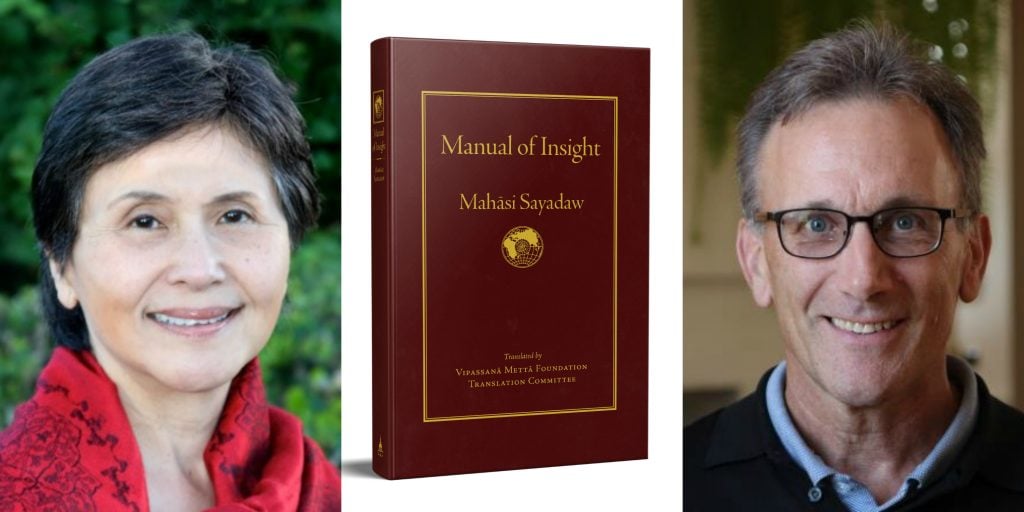
The Manual of Insight, the opus of Mahāsi Sayadaw, a great Buddhist scholar and practitioner of the twentieth century, presents the teachings at the root of the widespread introduction of mindfulness in the West today. Not limited to secular applications, the training offered here aims for nothing less than liberation—freeing the mind from suffering and the causes of suffering. This book shares the Theravada way of insight to realization of all Four Noble Truths, the essential teachings of the Buddha recognized by all traditions.
The guidance for the threefold training of the Noble Eightfold Path includes the mindfulness practice of restraint in speaking and acting so as to not cause harm to self or others; mindfulness of remembering to observe and recognize the present-moment experience and calm and stabilize the obsessing mind; and mindfulness of the unique and universal characteristics of all phenomena, which unfolds as liberating insight that reaches the highest goal of the Buddha’s teaching, realization of the Third Noble Truth, the cessation of suffering. It is this complete training that is at the core of this manual.
The process of insight begins with empirically understanding the body-mind process hidden beneath conventional understandings. The terrain of the path traverses the struggles with obsessive mental habits and opens to the “spiritual goodies,” as Steve Armstrong calls them, of great faith, joy, ecstasy, bliss, and more. Understanding that indulging in these is an obstacle deepens the unfolding of empirical insights into the three universal characteristics of impermanence, unsatisfactoriness, and conditionality, and exposes the conditioning of multiple layers of deluded beliefs. When insight matures to the nonreactive abiding of equanimity, one’s ability to access the unconditioned, nibbāna, becomes possible.
The path is clear for those who wish to walk it. In this course, we will study the map and explore the journey through the practice of insight.
Shamatha: Meditation for Balanced Living
During this course you will explore in theory and practice a range of methods for developing meditative quiescence, or shamatha.
The course begins with the practice of mindfulness of breathing as taught by the Buddha, which is an especially effective approach to soothing the body and calming the discursive mind.
You will then explore an approach to shamatha that is particularly pertinent for Dzogchen practice, called “settling the mind in its natural state,” as taught by the nineteenth-century Dzogchen master Lerab Lingpa in his commentary to the Heart Essence of Vimalamitra.
Finally you will engage in the practice of “shamatha without signs” as taught by Padmasambhava in his classic terma Natural Liberation, where he explains how it relates to the realization of rigpa, or pristine awareness.
The achievement of shamatha is widely regarded in the Buddhist tradition as an indispensable foundation for the cultivation of contemplative insight (vipashyana), and this course is designed to provide students with a sufficient theoretical understanding and a basis in experience to enable them to proceed effectively toward this extraordinary state of mental and physical balance.
Shamatha: Meditation for Balanced Living
During this course you will explore in theory and practice a range of methods for developing meditative quiescence, or shamatha.
The course begins with the practice of mindfulness of breathing as taught by the Buddha, which is an especially effective approach to soothing the body and calming the discursive mind.
You will then explore an approach to shamatha that is particularly pertinent for Dzogchen practice, called “settling the mind in its natural state,” as taught by the nineteenth-century Dzogchen master Lerab Lingpa in his commentary to the Heart Essence of Vimalamitra.
Finally you will engage in the practice of “shamatha without signs” as taught by Padmasambhava in his classic terma Natural Liberation, where he explains how it relates to the realization of rigpa, or pristine awareness.
The achievement of shamatha is widely regarded in the Buddhist tradition as an indispensable foundation for the cultivation of contemplative insight (vipashyana), and this course is designed to provide students with a sufficient theoretical understanding and a basis in experience to enable them to proceed effectively toward this extraordinary state of mental and physical balance.
Guy Newland: A Buddhist Grief Observed
In this episode of the Wisdom Podcast, author and Tibetan Buddhist scholar Guy Newland speaks profoundly on the experience of grief in the context of Buddhist teachings and practices. Guy published his book A Buddhist Grief Observed with Wisdom in the summer of 2016; contained within its pages is Guy’s reflection on his grieving process during the time when his wife, Valerie, was dying, and how he came to terms with her death after she passed away in 2013. In the tradition of C. S. Lewis’s A Grief Observed, Guy recalls the emotional states he found himself in and how he learned how to address them within the framework of his spiritual tradition.
Even though Guy had been a practicing Buddhist for many years before Valerie’s death, he recounts how he felt utterly unprepared to handle the shock and isolation he experienced. In the beginning, he recalls how he identified with his suffering, and how, with practice, he was gradually able to move past this. He also remembers how others around him reacted, notes what consolations he found helpful and unhelpful, and offers advice for those finding themselves in the position of trying to comfort a grieving person whose world has been entirely upended. Guy tells us that, as he began to speak more openly about his experience, he was surprised at how others felt able to open up about traumatic events in their past as well. This helped to normalize the grieving process and ease his sense of alienation, eventually leading him to write his book with the hope that he could do the same for others.
Drawing inspiration from all corners of the Buddhist world—from Zen stories and the Dalai Lama, to Pema Chödrön and ancient Pali texts—Guy’s story and his insights resonate with a genuine kindness and a deep humanity, demonstrating to us the power of responding with our whole hearts to the realities of death and dying.
Mingyur Rinpoche: Stories of Wandering and Awakening
In this episode of the Wisdom Podcast, we hear an interview with Mingyur Rinpoche, a beloved teacher of Tibetan Buddhism. Rinpoche discusses his experiences with panic and how he deals with feelings of anxiety. He talks about how trying to avoid panic actually makes things harder and how meditation techniques have helped him. He tells us how he trained at Sherab Ling Monastery, and how his anxiety affected him there, including when he was on a three-year retreat. Rinpoche shares how he decided that he would see panic as a teacher, and what this meant in his everyday practice. He gives a teaching on the purity of awareness itself, unchanged by whatever is happening within one’s awareness. We hear many other wonderful stories and teachings from Rinpoche, including stories from his four years on wandering retreat, from which he only recently returned—about the people he met, the profound experiences he had, and much more.
Sutra and Tantra: The Profound and Miraculous
In this extraordinary course, Professor Robert Thurman explains Tsong Khapa’s essential points for understanding the union of relativity and voidness, and the crucial instructions for the creation and perfection stages of Unexcelled Yoga Tantra. By guiding students through Tsong Khapa’s biography and his masterworks—Essence of Eloquence, Great Stages of Mantra, and Brilliant Illumination of the Lamp—Thurman brings to life and makes accessible the most profound aspects of Tsong Khapa’s teachings.
Thurman guides students in a penetrating survey of the exoteric and esoteric techniques and philosophies of Indo-Tibetan Buddhism according to Tsong Khapa’s systematization. Students will learn the inner science behind the tantric and sutric methods employed by countless scholars and adepts of India and Tibet on their paths to enlightenment, as well as how to apply such learning to their own personal practice of the path.
Dan Harris: 10% Happier
In this episode of the Wisdom Podcast, host Daniel Aitken speaks with Dan Harris, the ABC News anchor who discovered the power of meditation after he experienced a panic attack on live national television back in 2004. Dan recalls how his time reporting in war zones and using drugs contributed to his panic disorder and explains the utility of meditation to counter mindlessness and the anxiety that stems from it. He gives us a compelling account of how he overcame his skepticism of Buddhism by way of personal experience and recent scientific studies of meditation’s effects on the brain.
Dan recounts the development of his own practice, including his time as a student of insight teachers Joseph Goldstein and Sharon Salzberg and his experience with retreats. He makes the case that setting aside even small segments of time for meditation during the day can have profound effects and continues on to describe how he has since found ways to integrate meditation into his busy schedule and days spent working in the fast-paced environment of ABC studios.
Given his past experiences, Dan explains that part of his current mission is to articulate Buddhist concepts in a way that reaches lay audiences who may be weary of meditation and is highly focused on the implications practice has for our well-being. He guides us through his secular and intellectual understanding of Buddhism, how he thinks about awakening and the self, and shares what motivates him to practice. Finally, Dan and Daniel grapple with the concept of selflessness, and Dan describes some of his hopes and ideas for his next book.
For further discussion on how meditation can help us to navigate the stress and frantic pace of our modern lives, listen to this conversation between Dan Harris and Koshin Paley Ellison at the Wholehearted Book Launch in NYC.
Jay Garfield: Engaging Buddhist Philosophy
In this episode of the Wisdom Podcast, meet Jay Garfield, one of the country’s most well-known scholars of Buddhism and a professor at Smith, Harvard, and other universities. We hear how Jay came to Tibetan Buddhist philosophy, initially studying with Robert Thurman, and then spent time in India as he became more serious about his Buddhist studies. Jay explains the common misconceptions that cause some academics to be prejudiced against Buddhist philosophy and also explains some fundamental differences between Western and Buddhist philosophy. Jay also explains how many aspects of Western philosophy, such as free will and metaphysical necessity, need to be problematized instead of remaining our unquestioned, theologically-influenced heritage. Jay also discusses the difference between Western and Buddhist ethics. He then tells us about the huge response he received to a recent article he wrote for the New York Times, “If Philosophy Won’t Diversify, Let’s Call It What It Really Is,” which addresses the racism that is influencing the way philosophy is taught in American universities. Listen to the interview to hear him discuss many other fascinating topics, including the intricacies of translation.
Bhikkhu Anālayo: The Satipatthana Sutta
This week on the Wisdom Podcast you’ll have the chance to learn about Theravada Buddhism from one of its finest scholar-monks, Bhikkhu Anālayo. Bhikkhu Anālayo discusses the role of mindfulness in early Buddhist texts, specifically the Satipatthana Sutta, and then explains some important etymological points regarding the word satipatthana. He talks about how Pali became one of the early languages of Buddhism and provides some pointers for doing comparative study of the Satipatthana Sutta. He also reflects on how it is important to not reject certain Buddhist teachings just because they were not originally taught by the Buddha himself. Bhikkhu Anālayo then explains what the true meaning of the “direct path” to awakening means and how to understand the various types of mindfulness. He also discusses the role that mindfulness plays in the path to liberation, the relationship between mindfulness practice and breathing practice, the continuity between the four satipatthanas, the importance of body contemplation practice, and much more.
H.E. the 7th Ling Rinpoche: The Training of a Tulku
In this episode of the Wisdom Podcast we are honored to feature H. E. the 7th Ling Rinpoche. Rinpoche tells us about the history of the Ling Rinpoche lineage and about his relationship with H. H. the Dalai Lama, including the special qualities of the Dalai Lama. Rinpoche then tells us about what tulkus are, explaining their important role in Tibetan Buddhism. He tells us what it has been like to hold this honored title as a Ling Rinpoche, explaining the advantages and disadvantages. He then explains what a geshe degree is and describes a day in the life of a monk living at the monastery. Rinpoche also tells us about some of his favorite texts and explains what madhyamaka is. He also shares his thoughts about the importance of Tsongkhapa’s teachings and discusses the steps we can take to free ourselves from suffering, and the importance of studying emptiness in dispelling delusions. Rinpoche shares his experiences of traveling in the West and the differences he’s noticed between Dharma in the U.S. and Dharma in India. We also learn from Rinpoche about the three principles of the path, and much more, in this episode.
Koshin Paley Ellison: Zen and the Art of Caregiving
In this episode of the Wisdom Podcast, we meet Koshin Paley Ellison, innovative cofounder of the New York Zen Center for Contemplative Care and author of Wisdom’s recently published book, Wholehearted. Koshin tells us about how he was drawn both to Zen practice and caring for the dying early in life and how the AIDS epidemic, beat poets, and Zen teacher John Daido Loori had an impact on him. He shares with us moving stories of how he cared for his grandmother Mimi at the end of her life and how this relationship helped him to deeply integrate his Buddhist practice into his life. Koshin relates to us how facing our fears can help us respond to others more compassionately and how letting go of our clinging can open up new ways of being. We also learn how for Koshin, study, meditation practice, and caregiving are intimately connected to each other.
Buddhism: One Teacher, Many Traditions
In this course you’ll be expertly guided by Ven. Thubten Chodron through Buddhism’s core practices and tenets, such as the four noble truths and the practice of meditation, and will learn how the traditions sometimes agree and sometimes differ in their interpretations. Ven. Chodron’s approach illuminates the many ways that all forms of Buddhism, amid their rich diversity, share a common heritage and common goals.
This 10-lesson course is based on Buddhism: One Teacher, Many Traditions, a book that Ven. Chodron cowrote with His Holiness the Dalai Lama. This book is an expression of His Holiness’s strong belief in the merit of different Buddhist traditions being more educated about one another.
David Nichtern: Awakening from the Daydream
In this episode of the Wisdom Podcast, we meet David Nichtern: Wisdom author of two books, founder of Dharma Moon, and a senior Buddhist teacher who has been practicing and teaching meditation for over 40 years. David tells us about how he encountered Buddhism through the iconic teacher Chögyam Trungpa Rinpoche during his first visit to the United States. He relates his experience studying with Trungpa Rinpoche over the years, describing Rinpoche’s fearless and creative teaching style, how his teachings were transformative, and the legacy he left his students after his death. David then shares wisdom with us from his new book, which elaborates on the powerful psychology within the image of the Wheel of Life, and speaks on how we can understand karma as continuity rather than as an external authority.
Kamala Masters: Dhamma in Daily Life
In this episode of the Wisdom Podcast we speak with Kamala Masters, guiding teacher for the Insight Meditation Society and member of the translation committee for the new book by Mahāsi Sayadaw, Manual of Insight. We hear insightful stories from Kamala about how she initially came to practice Buddhism as a working single mother of three children under the skillful guidance of her teacher Munindra-ji. She shares how he helped her bring her practice into daily life and how she learned not to identify with difficult emotions. She also tells us about what she gained from doing longer retreats with Sayadaw U Pandita and how her brief time as a nun was a happy experience. Further, Kamala also underscores how she integrates love and wisdom when she teaches others, particularly how morality relates to being in community.
Kathleen Dowling Singh: Grace and Awakening
In this episode of the Wisdom Podcast we meet Kathleen Dowling Singh, Dharma practitioner and author of The Grace in Aging and The Grace in Living. Kathleen shares with us the story of how she has come to value grace and awakening as key aspects of her spiritual life. She tells us about her childhood and the influence her aunt, a Catholic nun, had on her early spiritual development and curiosity. We also hear about how she came to Buddhist practice and how she understands grace in the Buddhist path. Kathleen then imparts her wisdom on the art of spiritual biography, sharing with us how we can recognize the grace that is present in our lives, understanding that we are already awakening.
Leonard van der Kuijp: Discovering Tibet with a Leading Scholar
In this episode of the Wisdom Podcast we meet Leonard van der Kuijp, professor of Tibetan and Himalayan studies at Harvard University. A preeminent scholar in the field of Tibetan philosophy and translation, Leonard shares with us how he began his studies and what it was like being a student of the pioneer philosopher and translator Herbert Guenther. He also dives into fascinating stories that explore the intellectual and cultural history of Tibet, recounting tales of the Indian scholar Śākyaśrībhadra’s journey to Tibet in the thirteenth century. Leonard’s amusing and vivid stories tell us more about the spread of Buddhism in Tibet and shed a humanizing light on this important and defining time in Tibet’s past.
Andy Rotman: The Divine Stories of Early Buddhism
Discover the powerful teachings on philosophy and faith woven into the classical stories of early Buddhism. In this episode of the Wisdom Podcast we meet Andy Rotman, professor of religion and Buddhist studies at Smith College and chief editor for Wisdom’s Classics of Indian Buddhism series. An expert in the field of Buddhist literature, Andy shares with us the important role of narratives in monastic and lay life in South Asia, and how they were used to cultivate wisdom and compassion. We also hear some of Andy’s favorite tales from his translations of Divine Stories (Divyāvadāna), one of the most important collections of ancient Buddhist narratives. Find out what to expect in the second volume of his translations—Divine Stories, Part 2.
Harold Talbott: Remembering Thomas Merton’s Encounters with the Dalai Lama
Hear about one man’s powerful encounters with Dzogchen masters and his memories of facilitating the famous meeting of Thomas Merton with the Dalai Lama and other notable Tibetan lamas. In this episode of the Wisdom Podcast we meet Harold Talbott, long-time Dharma practitioner and editor for esteemed teacher Tulku Thondup. Harold tells us his fascinating journey in the Dharma, including how he initially met the Dalai Lama in India in the mid 1960s and became his student. He also shares with us many of his extraordinary encounters with Tibetan Buddhist teachers over the decades like Chatral Rinpoche, Dodrupchen Rinpoche, and Tulku Thondup Rinpoche. Harold then tells us how he came to facilitate the meeting of famed Catholic theologian and writer Thomas Merton with the Dalai Lama in 1968, and then accompanied Merton throughout his trip to India meeting several accomplished Tibetan lamas during the final weeks of his life.
Ross Bolleter: The Intimacy of Zen Koan Practice
Discover one man’s experience of integrating Zen teachings into everyday life through decades of koan practice. In this episode of the Wisdom Podcast we meet Ross Bolleter Roshi, Zen author and teacher in the Diamond Sangha lineage. Ross shares with us stories from his many years of practice and study, beginning with how he met and became a student of Robert Aitken in the early 1980s. We hear how Aitken gave Ross his first koan to practice and eventually, together with John Tarrant, gave him transmission. Ross also discusses the relationship between koan practice and kenshō, and he shares how koan practice can transform one’s life over many years. Finally, we hear about his forthcoming book on Western koans, Crow Flies Backwards.
Buddhism: One Teacher, Many Traditions Part II
Buddhism is practiced by hundreds of millions of people worldwide, from Tibetan caves to Tokyo temples to redwood retreats. All these traditions trace their beginnings to the teachings of one man in India 2,500 years ago. These teachings spread worldwide in all directions and into numerous languages, making Buddhism one of today’s most influential religions.
In this course, you’ll join Venerable Thubten Chodron for an in-depth discussion of the core teachings of Buddhism, shared across traditions, such as mindfulness, emptiness, and dependent arising. Ven. Chodron’s illuminating commentary on how each of these, and more, are approached within the many traditions of Buddhism forms the basis for your own exploration of Buddhism’s shared heritage and diverse expression. There is no prerequisite to have taken the previous course; you can dive right in with the material covered in Part II.
This ten-lesson course is the second in a series based on the book Buddhism: One Teacher, Many Traditions, cowritten by His Holiness the Dalai Lama and Ven. Chodron. This book is an expression of His Holiness’s strong belief in the merit of different Buddhist traditions being more educated about one another.
Marcus Perman: Translation and Transmission of Tibetan Buddhism in the West
In advance of the Tsadra Foundation’s Translation and Transmission Conference we spoke with Marcus Perman, Director of Research for Tsadra, an organization dedicated to advancing the combined study and practice of Tibetan Buddhism. Marcus tells us about how he came to his role after studying Eastern and Western philosophy, traveling in Tibet and the Himalayas, and attending an early translator’s conference as an aspiring translator. He shares with us Tsadra’s unique role in applying strategic philanthropy to the Tibetan Buddhist community sponsoring scholars, meditators, and translators of all schools, and how this has had an impact on the transmission of Dharma in the West.
Lama Alan Wallace: Meditation for Balanced Living
In this special taping of the Wisdom Podcast in front of a live audience at Harvard Divinity School, renowned Tibetan Buddhist teacher Lama Alan Wallace explores with us the benefits of shamatha practice for leading a balanced life. Recorded as part of his Wisdom Academy course, Shamatha: Meditation for Balanced Living, Lama Alan shares with us the meaning of shamatha and its place among the Buddha’s meditation techniques. He relates how it is an essential practice in all schools of Buddhism, including Theravada, Mahayana, and Vajrayana, and he specifically highlights its importance in the Dzogchen tradition of Tibet.
Restricted Dzogchen Teachings, Part 1: The Foolish Dharma of an Idiot Clothed in Mud and Feathers
Receive detailed oral commentaries from renowned Tibetan Buddhist teacher Lama Alan Wallace on one of the five classic Dzogchen treatises by Düdjom Lingpa: The Foolish Dharma of an Idiot Clothed in Mud and Feathers. With teachings covering the preliminary practices, shamatha, vipashyana, and the practice of cutting through to the original purity of pristine awareness, it is said that for very gifted practitioners, these meditations are sufficient for achieving rainbow body.
These teachings are based on Lama Alan Wallace’s eight-week retreat in Italy at the Istituto Lama Tzong Khapa in April and May 2017.
Wisdom Academy has created two courses from this retreat: Restricted Dzogchen Teachings, Part 1: The Foolish Dharma of an Idiot Clothed in Mud and Feathers and Restricted Dzogchen Teachings, Part 2: Buddhahood Without Meditation.
All ten lessons of this course, Part 1: The Foolish Dharma of an Idiot Clothed in Mud and Feathers, are available now.
Part 2: Buddhahood Without Meditation is also available to qualified students, and includes 10 lessons.
Eligibility for the Course
This course is restricted to students who have a solid foundation in the Dharma and a strong commitment to the Buddhist path. Lama Alan Wallace has chosen to limit access to these teachings on Dzogchen due to the possibility of students misunderstanding the subject without having the appropriate background. Students must have received a certificate of completion for the Wisdom Academy course Introduction to Dzogchen to take Restricted Dzogchen Teachings.
Important note
If you are interested in these teachings, please note that the Wisdom Academy course Introduction to Dzogchen is a prerequisite for this course. You can enroll in and take Introduction to Dzogchen now; click here to learn more.
Please note that it is not possible to take Part 2: Buddhahood Without Meditation as a standalone course; these teachings follow directly on Part 1. In order to take Part 2, you must have taken Part 1.
Restricted Dzogchen Teachings, Part 2: Buddhahood Without Meditation
Receive detailed oral commentaries from renowned Tibetan Buddhist teacher Alan Wallace on two of the five classic Dzogchen treatises by Düdjom Lingpa: The Foolish Dharma of an Idiot Clothed in Mud and Feathers and Buddhahood Without Meditation.
Restricted Dzogchen Teachings, Part 1: The Foolish Dharma of an Idiot Clothed in Mud and Feathers
Receive detailed oral commentaries from renowned Tibetan Buddhist teacher Alan Wallace on one of the five classic Dzogchen treatises by Düdjom Lingpa: The Foolish Dharma of an Idiot Clothed in Mud and Feathers. With teachings covering the preliminary practices, shamatha, vipashyana, and the practice of cutting through to the original purity of pristine awareness, it is said that for very gifted practitioners, these meditations are sufficient for achieving rainbow body.
A Human Approach to World Peace
This free paperback edition of His Holiness’s classic essay is updated and expanded for today’s world, with a new foreword from Richard Gere and beautiful, intimate photographs of His Holiness by Kenro Izu, AT Steele, Richard Gere, Herb Ritts, Manuel Bauer, Nicky Vreeland, and Raghu Rai.
In this moving book, His Holiness the Dalai Lama shares his perspective on the urgent question facing the world today: How do we make our societies more humane, just, and equitable?
Created to commemorate the occasion of His Holiness’s ninetieth birthday, this little book is a monument to honor a life spent ceaselessly calling for peace and tolerance, as well as a clarion call to all citizens of the world. As Richard Gere writes in the foreword, “The healing has begun if we want it.”
In celebration of His Holiness the Dalai Lama’s ninetieth birthday we’re offering this inspiring essay free with the purchase of any book by His Holiness, you only pay for shipping. Simply add code HAWP-FREE to your Dalai Lama book or course order at checkout.
Restricted Dzogchen Teachings, Part 2: Buddhahood Without Meditation
Receive detailed oral commentaries from renowned Tibetan Buddhist teacher Lama Alan Wallace on one of the five classic Dzogchen treatises by Düdjom Lingpa: Buddhahood Without Meditation. This is one of the most well-known of his texts and it provides a medley of visionary teachings Düdjom Lingpa received from figures ranging from Longchenpa to Avalokiteshvara. Topics covered in this course include practices such as vipashyana—taught in greater depth and detail—and trekchö, cutting through to the original purity of pristine awareness.
These teachings are based on Lama Alan Wallace’s eight-week retreat in Italy at the Istituto Lama Tzong Khapa in April and May 2017. Wisdom Academy has created two courses from this retreat: Restricted Dzogchen Teachings, Part 1: The Foolish Dharma of an Idiot Clothed in Mud and Feathers and Restricted Dzogchen Teachings, Part 2: Buddhahood Without Meditation.
Part 1: The Foolish Dharma of an Idiot Clothed in Mud and Feathers is available now and is required before beginning Part 2.
Eligibility for the Course
This series of courses is restricted to students who have a solid foundation in the Dharma and a strong commitment to the Buddhist path. Lama Alan Wallace has chosen to limit access to these teachings on Dzogchen due to the possibility of students misunderstanding the subject without having the appropriate background. Students must have received a certificate of completion for the Wisdom Academy course Introduction to Dzogchen to take any of the Restricted Dzogchen Teachings.
How to Enroll
- Please note that the Introduction to Dzogchen and Restricted Dzogchen Teachings Part 1 are prerequisites for Part 2. By enrolling in Restricted Dzogchen Teachings Part 2, you confirm you have completed both of these courses.
- If you have already completed both these courses, you can click the red enroll button on the right side of this page.
Emptiness: A Practical Course for Meditators
This 8-lesson course with renowned insight meditation teacher Guy Armstrong explores the teachings on emptiness that point to a series of understandings and practices leading to deep insight and a radical experience of liberation.
Emptiness: A Practical Course for Meditators
“Guy’s approach is pragmatic: How do these teachings help to liberate the mind? He invites us toward the deepening and freeing realization of the nature of awareness and its intrinsic emptiness—and to the manifestation of compassion in our lives.”—Joseph Goldstein
The teachings on emptiness—a theme central to all Buddhist schools—point to a series of understandings and practices that lead to deep insight and a radical experience of liberation. This eight-week course with renowned Insight meditation teacher Guy Armstrong explores the teachings on emptiness and their application in our lives in a way that makes them practical and accessible.
In this course you’ll look at emptiness as it affects your understanding of self, phenomena, awareness, and meditation. The content of the course is based on Guy Armstrong’s book Emptiness: A Practical Guide for Meditators.
Buddhism: One Teacher, Many Traditions Part II
Buddhism is practiced by hundreds of millions of people worldwide, from Tibetan caves to Tokyo temples to redwood retreats. All these traditions trace their beginnings to the teachings of one man in India 2,500 years ago. These teachings spread throughout the world and into numerous languages, making Buddhism one of today’s most influential religions.
In this course, you’ll join Venerable Thubten Chodron for an in-depth discussion of the core teachings of Buddhism shared across traditions, such as mindfulness, emptiness, and dependent arising. Ven. Chodron’s illuminating commentary on how each of these, and more, are approached within the many traditions of Buddhism forms the basis for your own exploration of Buddhism’s shared heritage and diverse expression. There is no prerequisite to have taken the previous course; you can join in with the material covered in Part II.
This ten-lesson course is the second in a series based on the book Buddhism: One Teacher, Many Traditions, co-written by His Holiness the Dalai Lama and Ven. Chodron. This book is an expression of His Holiness’s strong belief in the merit of different Buddhist traditions being more educated about one another.
Joanne Cacciatore: Bearing the Unbearable
In this episode we meet Dr. Joanne Cacciatore, Zen priest and leader in the field of traumatic grief. We explore with Joanne her path to Buddhism and her work with the bereaved. She tells us how encounters with animals like her rescue horse, Chemakoh, have helped her open both to her grief and to compassion. Joanne shares with us her own transformative experience of grieving for her young daughter and how this set her on the path to work with other bereaved families. She helps us deconstruct the myth that it is a failure to grieve, and guides us to look at ways that we can relieve unnecessary suffering around the experience of loss and the fear of our own or others’ emotions. In this way, she explains, grief can be a transformative experience that expands the heart rather than contracts it.
Shamatha and Vipashyana in the Dzogchen Tradition
Join renowned Buddhist teacher Alan Wallace to discover the Dzogchen tradition’s unique approach to shamatha and vipashyana through guided meditations and extensive oral commentary on the visionary writings of Dzogchen master Düdjom Lingpa.
H. E. the 12th Zurmang Gharwang Rinpoche: The History of the Zurmang Kagyu Tradition
In this episode we meet His Eminence Zurmang Gharwang Rinpoche, lineage holder of the Zurmang Kagyu tradition of Tibetan Buddhism. Rinpoche shares with us captivating stories of how he was recognized as the reincarnation of the previous Zurmang Gharwang Rinpoche by H. H. the 16th Karmapa even before he was born, and he tells us what it was like growing up under the close guidance of the Karmapa. Rinpoche goes on to tell us about the history of the Zurmang tradition starting with its founder, the first Gharwang Rinpoche, Trung Mase, while describing the teachings unique to the lineage such as the Zurmang Whispering Lineage. Rinpoche also gives us advice on how to engage with others, highlighting the value of being caring and respectful in today’s world.
Shamatha and Vipashyana in the Dzogchen Tradition
In this course we enter the visionary world of nineteenth-century Dzogchen master Düdjom Lingpa to explore the nature and origins of the mind, the ground of consciousness itself.
The practices of shamatha and vipashyana rest at the heart of meditation throughout the Buddhist world. Here we follow the approach of the Great Perfection, the Dzogchen tradition, which emphasizes the practice of shamatha on the nature of mind itself as the core preparation to examine the mind’s mode of existence in vipashyana. Settling the mind into an underlying continuum of subtle awareness, we learn to see its role in nature, and the phenomenal world.
Lama Alan Wallace guides us closely through the first three sections of The Sharp Vajra of Conscious Awareness Tantra, a text by Düdjom Lingpa, which he declares his most quintessential. Through rich exposition of this pithy and timely text, along with practical contemplations and reflection, you will understand how shamatha and vipashyana play an essential role in the fundamental practices of the Great Perfection, cutting through to pristine awareness (trekchö) and the direct crossing over to spontaneous actualization (tögal).
Restricted Dzogchen Teachings, Part 2: Buddhahood Without Meditation
Receive detailed oral commentaries from renowned Tibetan Buddhist teacher Alan Wallace on one of the five classic Dzogchen treatises by Düdjom Lingpa: Buddhahood Without Meditation. This is one of the most well-known of his texts and it provides a medley of visionary teachings Düdjom Lingpa received from figures ranging from Longchenpa to Avalokiteshvara. Topics covered in this course include practices such as vipashyana—taught in greater depth and detail—and trekchö, cutting through to the original purity of pristine awareness.
Geshema Kelsang Wangmo: Becoming the First Female Geshe
In this episode of the Wisdom Podcast Daniel Aitken traveled to Dharamsala, India to meet Geshema Kelsang Wangmo, a German-born nun who in 2011 made history by being the first woman to receive the prestigious geshe degree among Tibetan Buddhists. She shares with us extraordinary experiences in her scholastic journey, from the challenges she experienced as a Westerner and woman to the joys of studying her favorite subjects and the kindness of her teachers. Geshema Wangmo goes into detail about the rigorous program of study she completed over the course of seventeen years and discusses how beneficial studying can be as a tool for transforming the mind. She also looks to the horizon at what’s next for women in the tradition and speaks to the responsibility she feels to others as the first female geshe.
Malcolm Smith: Translating Dzogchen Texts
In this episode of the Wisdom Podcast we meet Malcolm Smith, translator of the core Dzogchen text Buddhahood in This Life, recently published by Wisdom Publications. This inspired translation of the Great Commentary of Vimalamitra offers insights into one of the earliest and most influential texts in the Dzogchen tradition of Tibetan Buddhism. We sat down with Malcolm to hear the fascinating historical context of this classic text as situated within Tibet’s terma, or treasure, tradition. Most profoundly, Malcolm provides extensive insights on the finer points of Dzogchen meditation, including topics such as the pathway of pristine consciousness, how delusions arise, and the importance of receiving transmission from a qualified Dzogchen teacher.
The Dharma of Social and Ecological Engagement
In this course with renowned teacher David R. Loy, discover the path of socially and ecologically engaged dharma practice.
What would Buddhist social justice look like? What is the connection between personal and social transformation? Do the ancient teachings of Buddhism still ring true in a world that has changed drastically since the Buddha’s time—and does the wisdom of the Buddha have the power to transform our 21st-century society? Explore these important questions, and much more, in this exciting and timely course.
Dzigar Kongtrul Rinpoche: In Praise of Spiritual Teachers
In this episode, we hear from Dzigar Kongtrul Rinpoche, a Tibetan Buddhist teacher of the Longchen Nyingtik tradition and founder of Mangala Shri Bhuti. Raised in a religious family in northern India, Rinpoche was deeply influenced by both his parents. His mother was a highly revered practitioner of the Nyingma tradition, while his father was recognized as the third incarnation of the great treasure discoverer, or tertön, Chogyur Lingpa. Immediately following the tragic passing of his father when he was only 9 years old, Rinpoche was recognized as an incarnation of Jamgon Kongtrul Lodro Thaye by the 16th Gyalwang Karmapa. You’ll hear Rinpoche give an account of these crucial years of his childhood that eventually led him to spend years of study under his root teacher, the great Kyabje Dilgo Khyentse Rinpoche, as well as revered scholar Khenpo Rinchen. Rinpoche eventually moved to the United States with his family in 1989 where he became World Wisdom Chair at Naropa University before founding Mangala Shri Bhuti.
Josh Korda: Honoring Transparency and Disclosure
In this episode of the Wisdom Podcast we hear from Josh Korda, Dharma teacher in the Against the Stream lineage, guiding teacher of Dharmapunx NYC, and author of Unsubscribe: Opt out of Delusion, Tune into Truth, recently published by Wisdom. You’ll hear Josh share his navigation through the difficult emotional realities of his youth, and how battling substance abuse deepened his insights as a practitioner in the Theravada Buddhist tradition. Josh explains how the trauma of witnessing 9/11 on the streets of New York catapulted him into a re-evaluation of his priorities, ultimately paving a way for a life in teaching. As a teacher, Josh shares his reverence for transparency and disclosure, a philosophy shaped by the irreverent punk culture of his youth, as well as a key mindset of both Dharmapunx teachers and practitioners. Central to his teaching is an upholding of the Buddha’s “householder” teachings, intended to support everyday contentment, rather than the monastic goal of ultimate transcendence. You’ll learn how Josh balances both Buddhist and Western psychological traditions in his spiritual counseling and teaching, as well as a preview of his new book.
Barbara Bonner: Reimagining Courage and Generosity
In this episode of the Wisdom podcast, we hear from Barbara Bonner, author of Inspiring Generosity and Inspiring Courage, both published by Wisdom. Barbara has dedicated her career to nonprofit management, fundraising and philanthropy. You’ll hear the ways her professional life has been deeply informed by experiences as a Buddhist practitioner, and likewise, how exposure to philanthropy has given way to new insights on the virtues of generosity. Barbara describes how a serendipitous trip to India paved the way for a discovery of Theravada Buddhism later in life, when she unexpectedly found herself studying with such great teachers as Jack Kornfield, Robert Thurman, and Edward Espe Brown. Most profoundly, Barbara shares insights on the value of reimagining generosity as something beyond material exchange, and instead, as a personally transformational experience through an overcoming of the self. Additionally, you’ll hear Barbara and Daniel discuss courage as the engine that fuels all other virtues, as well as the inextricable link between courage and fear and courage and humility. Barbara also shares illuminating passages from both her books.
The Dharma of Social and Ecological Engagement
In this course we discover the path of socially and ecologically engaged Dharma practice. Delving into core Buddhist teachings on non-self, suffering, and karma, we address issues such as consumerism, the commodification of our attention, war, and climate change. We learn to integrate our individual Buddhist practice with the engagement our world desperately needs—a modern bodhisattva path.
What would Buddhist social justice look like? What is the connection between personal and social transformation? Do the ancient teachings of Buddhism still ring true in a world that has drastically changed since the Buddha’s time—and does the wisdom of the Buddha have the power to transform our twenty-first-century society?
Explore these important questions, and much more, in this exciting and timely course.
Jan Westerhoff: Nāgārjuna and Madhyamaka
In this episode of the Wisdom Podcast we meet Jan Westerhoff, professor of Buddhist philosophy at the University of Oxford and specialist in the Madhyamaka philosophical tradition. In this episode, Jan shares how his early studies in Indian and Tibetan Buddhist philosophy eventually led to a PhD in contemporary metaphysics, before leading to a second PhD on Nāgārjuna and Madhyamaka. In this fascinating discussion, you’ll hear Jan give nuanced explanations of key philosophical concepts as such as svabhāva, or intrinsic nature, as defined in early Buddhist metaphysics (in the Abhidharma) versus Nāgārjuna’s later interpretations. This leads to further analysis on the topic of causation and its relationship to intrinsic nature, as well as differing views between Madhyamaka and Abhidharma on the role of human conceptualization. You’ll also hear Jan explain some of Nāgārjuna’s central arguments on emptiness and language, as well as how some of these ideas fit into broader Buddhist imperatives such as the cultivation of wisdom and compassion, meditative practice, merit-making, and ethics.
Sumi Loundon Kim: Mindfulness for the Whole Family
In this episode of the Wisdom podcast, we hear from Rev. Sumi Loundon Kim, Buddhist chaplain at Duke University, and author of Sitting Together: A Family-Centered Curriculum on Mindfulness, Meditation, and Buddhist Teaching. In this episode, Sumi shares many insights on the cultivation of mindfulness in children. Raised in a Sōtō Zen meditation community in rural New Hampshire, Sumi began meditating as a child and completed her first 9-day retreat at the Insight Meditation Society at 16. Sumi shares how spiritual values and practices instilled in her at a young age helped deepen her self-awareness as a young adult, giving her practical tools and resources in difficult times. You’ll hear Sumi and Daniel discuss the value of community-based spiritual development and the need for more children’s programs in American dharma centers. Sumi also shares aspects of the curriculum she developed in her Sitting Together series and ways mindfulness-based practices can benefit the entire family. Additionally, Sumi is editor of Blue Jean Buddha and The Buddha’s Apprentices, both published by Wisdom.
Bhante Gunaratana: A Special Teaching on Mindfulness
In this episode of the Wisdom Podcast we meet Bhante Gunaratana, renowned meditation teacher, Buddhist monk, and author of the now-classic Mindfulness in Plain English, published by Wisdom. Born in Sri Lanka, Bhante Gunaratana was ordained at the age of twelve in the Theravada tradition. In this episode, we hear “Bhante G” (as he is affectionately called by his students) recall his early years as a precocious young monk. After suffering the tragic loss of his photographic memory when he was a teenager, Bhante G regained his mental faculties by teaching himself meditation, despite being forbidden by monastic rule. Drawing wisdom from his own experience, Bhante G shares the value of studying meditation directly from the suttas. In this extraordinary teaching, you’ll hear Bhante G recall the words of the Buddha himself as he explains the very heart of an effective mindfulness or meditation practice. Bhante G encourages a more complex understanding of central terms as bhāvanā, or cultivation, sati, or mindfulness as pre-conceptual awareness, the five aggregates, as well as the term vipassana itself. He also reminds us why sīla, samādhi, and paññā—or morality, concentration, and wisdom—are inextricably bound to one another within mindfulness and meditation, and also shares his thoughts on the wisdom of non-labeling. As part of this special episode, you can also listen to a guided meditation led by Bhante G available below.
H. H. the Sakya Trichen: Learning from the Lives of Great Masters
In this episode of the Wisdom Podcast, Daniel travels to Tsechen Kunchab Ling in upstate New York to speak with His Holiness the Sakya Trichen Rinpoche, the 41st throne holder of the Sakya school of Tibetan Buddhism. You’ll hear His Holiness share insights from the first volume of his book Freeing the Heart and Mind, as well as his forthcoming second volume. Both books emphasize the necessity of learning the Dharma through the life stories of great Buddhist masters. His Holiness speaks on the practical nature of the sutrayana teachings as outlined in his first book, as well as the life of Mahasiddha Virupa and his key role in the formation of both the Lamdré lineage and the Sakya school at large. His second volume looks at valuable life lessons from the legendary 13th century leader of the Sakya order, Drogön Chögyal Phagpa—namely his relationship with the Mongols and the religious conversion of Kublai Khan. We also hear His Holiness share insights on the nature of samaya in the guru-disciple relationship, as well as his views on restricted teachings and their increased availability in the modern world.
Introduction to Feng Shui
Feng shui is an ancient art that is, as Lama Zopa Rinpoche has explained, the second best way—after Buddhism—to help people. In this course with Jampa Ludrup you will learn how to maximize your outer environment for the best outcomes in all areas of your life. Ven. Jampa takes us through three schools of feng shui: the Form School, Compass School, and Flying Star School, sharing techniques from each that will help you transform your space so that it is conducive to manifesting good luck.
Introduction to Feng Shui
Feng shui is an ancient art that is, as Lama Zopa Rinpoche has explained, the second best way—after Buddhism—to help people. In this course with Jampa Ludrup you will learn how to maximize your outer environment for the best outcomes in all areas of your life. Ven. Jampa takes us through three schools of feng shui: the Form School, Compass School, and Flying Star School, sharing techniques from each that will help you transform your space so that it is conducive to manifesting good luck.
Ani Choying Drolma: A Voice for Nepalese Buddhist Nuns
In this episode of the Wisdom Podcast, Daniel Aitken speaks with Ani Choying Drolma, Tibetan Buddhist nun from Nepal and internationally renowned singer of both traditional and contemporary Tibetan song. Ani-la is also founder of multiple nonprofits in Nepal, such as the Arya Tara School, which promotes the equality, education, and welfare of Nepalese Buddhist nuns.
Ani Choying entered Nagi Gompa nunnery at age 13, intentionally choosing monastic life over marriage. Escaping an abusive home, Ani-la found refuge in the nunnery. It was here where she would discover childhood for the first time, and where she flourished as a young entertainer and singer. Ani Choying shares stories about her beloved teacher, Tulku Urgyen Rinpoche, who offered unconditional guidance and mentorship, ultimately paving the way for her to pursue singing professionally. You’ll hear Ani-la describe her artistic life as both a performer and Buddhist practitioner, and the parallels she finds between singing and meditation. She also describes the difference of intention between devotional singing and regular performance, and the power of certain mantras to stir energies. Finally, Ani-la shares insights on the issue of gender discrimination in Nepal, and the ways in which her nonprofit, the Nuns’ Welfare Foundation, creates opportunities for women to surmount gender-based obstacles.
The Vajra Essence, Part 4 Product
Important: before purchasing this product, please make sure you have read all of the information, especially the restriction requirements, on this page.
Tulku Dakpa Rinpoche: Lineage and Transmission in the Nyingma Tradition
In this episode of the Wisdom Podcast, recorded with a live audience, Daniel Aitken speaks with Tulku Dakpa Rinpoche, revered teacher in the Nyingma school of Tibetan Buddhism and founder of the Danakosha Dharma Center in Finland. Tulku Dakpa Rinpoche was recognized by His Holiness Mindrolling Trichen Rinpoche as a reincarnation of Drupwang Rogza Sonam Palge, a hidden yogi of eastern Tibet. Third in his line of tulkus, Rinpoche shares stories from the legendary lives of his earlier incarnations as well as their esteemed contemporaries. Now a Dharma teacher based primarily in Europe, Rinpoche discusses his program of study in Finland, where he’s lived for ten years, as well as his own education at the famous Mindrolling Monastery in India. As an introduction to his oral transmission of Buddhahood in this Life, one of the earliest and most influential Dzogchen texts, Rinpoche shares insights on this particular transmission as well as the tradition of transmission more broadly in his lineage.
The Three Turnings of the Wheel of Dharma
The three turnings of the wheel of Dharma are a classic system for framing the philosophy of the Buddhist sūtras. However, we often hear that one turning of the wheel is true and that the others require interpretation and are in some sense inferior. Following the suggestion of H. H. the Dalai Lama, this course takes another way of thinking about the three turnings of the wheel—as a comprehensive picture of the Buddhadharma. With the guidance of accomplished scholars Jay Garfield and Guy Newland, we abandon classifying some teachings as “provisional” and others “definitive” and instead understand them as a whole. We find in the first turning a general understanding of nature of samsara and nirvana; in the second an exposition of emptiness from the side of the object; and in the third, an exposition of emptiness from the side of the subject. Through these ten lessons, you’ll come away with clear, unified vision of Buddhist doctrine and a greater understanding of the texts, scholars, and practices that make up this expansive tradition.
The Three Turnings of the Wheel of Dharma
The three turnings of the wheel of Dharma are a classic system for framing the philosophy of the Buddhist sūtras. However, we often hear that one turning of the wheel is true and that the others require interpretation and are in some sense inferior. Following the suggestion of H. H. the Dalai Lama, this course takes another way of thinking about the three turnings of the wheel—as a comprehensive picture of the Buddhadharma. With the guidance of accomplished scholars Jay Garfield and Guy Newland, we abandon classifying some teachings as “provisional” and others “definitive” and instead understand them as a whole. We find in the first turning a general understanding of nature of samsara and nirvana; in the second an exposition of emptiness from the side of the object; and in the third, an exposition of emptiness from the side of the subject. Through these ten lessons, you’ll come away with a clear, unified vision of Buddhist doctrine and a greater understanding of the texts, scholars, and practices that make up this expansive tradition.
Karen Derris: A Professor and Her Students Engage H. H. the Karmapa
In this episode of the Wisdom Podcast, Daniel Aitken speaks with Dr. Karen Derris, scholar of South and Southeast Asian Buddhist traditions and Professor of Religious Studies at the University of Redlands. In recent years, Karen had the rare opportunity of working one-on-one with His Holiness the Karmapa as an editor of his book, Interconnected: Embracing Life in Our Global Society, published by Wisdom.
You’ll hear Karen share stories from the time she spent studying in Nepal as an undergraduate, where she formed meaningful connections with her Tibetan hosts through reading Buddhist literature together. From these experiences, she developed a lifelong interest in Buddhist narrative and the potential it has to transform the audience’s engagement with the tradition.
Karen also describes the importance of human relationships and emotional experience as she moved further into her intellectual studies of Buddhism over time. It was through some of these connections that she had the opportunity to travel to Gyuto Monastery in India, where she and her students met with the Karmapa for a three-week dialogue. Karen describes how this rare connection with the Karmapa had a profound influence on her students’ professional aspirations by reorienting views of success, leading them to deeply meaningful service-oriented careers.
Additionally, these conversations helped to inform the message of Interconnected, which offers a twenty-first century model of interdependence in support of a truly global society. Karen describes the vital message the Karmapa shares: that people must move beyond the purely intellectual to feel truly interconnected in an emotional way, and only then can the capacity for action be realized and sustained. Finally, Karen relates the ways in which the Karmapa’s direct guidance has had on her personally, an experience which she likens to being “inside a sutra” and among the most profound moments of her entire career.
Dungse Jampal Norbu: A New Generation of American Buddhists
In this episode of the Wisdom Podcast, we meet Dungse Jampal Norbu, Dharma teacher in the Nyingma school of Tibetan Buddhism and son of the revered Dzigar Kongtrul Rinpoche. Dungse was raised in a Tibetan-American family in Colorado. At the instruction of Dilgo Khyentse Rinpoche, Dungse’s father set him on a path to uphold and continue his lineage in the Dzogchen Longchen Nyingtik tradition. You’ll hear Dungse share stories from his cross-cultural evolution as a student, practitioner, and teacher of Buddhism, including his years of intense Buddhist training in India, as well as his annual 100-day retreat at Longchen Jigme Samten Ling. We also hear Dungse share his thoughts on being Dharma heir to his father, as well as the value of artistic practice in both his and his father’s life. Lastly, Dungse offers insights on our contemporary age of social media, as well as the millennial generation in the United States, and how the Dharma might translate to a younger generation of American Buddhists.
The Four Applications of Mindfulness
In this course we investigate the nature of human identity and the possibility of freedom through the Buddha’s foundational instructions on the cultivation of vipashyana, or insight. Lama Alan Wallace presents the four close applications of mindfulness — mindfulness on the body, feelings, the mind, and phenomena — through rich pith instruction on selections from the Pali canon, Mahayana sutras, and commentary from the Vajrayana and Dzogchen traditions. Lama Alan’s unique presentation offers an integrative vision of the Buddhist path, and clarifies fundamental Buddhist truths such the nature of nirvana, the unique vision of the path of the arhat, as well as that of the bodhisattva. We learn that these paths share a common ultimate vision: the primordial and unborn nature of liberation. Lama Alan offers step-by-step guidance through the four applications with clear instruction on the relationship between shamatha (calm-abiding) practice and vipashyana, making these timeless teachings applicable to daily life in the modern world.
The Four Applications of Mindfulness
In this course we investigate the nature of human identity and the possibility of freedom through the Buddha’s foundational instructions on the cultivation of vipashyana, or insight. Alan Wallace presents the four close applications of mindfulness — mindfulness on the body, feelings, the mind, and phenomena — through rich pith instruction on selections from the Pali canon, Mahayana sutras, and commentary from the Vajrayana and Dzogchen traditions. Alan’s unique presentation offers an integrative vision of the Buddhist path, and clarifies fundamental Buddhist truths such the nature of nirvana, the unique vision of the path of the arhat, as well as that of the bodhisattva. We learn that these paths share a common ultimate vision: the primordial and unborn nature of liberation. Alan offers step-by-step guidance through the four applications with clear instruction on the relationship between shamatha (calm-abiding) practice and vipashyana, making these timeless teachings applicable to daily life in the modern world.
Restricted Dzogchen Teachings, Part 3: The Sharp Vajra of Conscious Awareness Tantra
Discover the depths of the Dzogchen tradition’s approach to awakening, the pristine purity of unborn awareness, with line-by-line commentary and heart advice on Düdjom Lingpa’s famed Sharp Vajra of Conscious Awareness Tantra by Lama Alan Wallace.
These teachings are based on Lama Alan Wallace’s eight-week retreat in Italy at the Istituto Lama Tzong Khapa in April and May 2018.
Wisdom Academy has created two courses from this retreat: Restricted Dzogchen Teachings, Part 3: The Sharp Vajra of Conscious Awareness Tantra, and Part 4: The Sharp Vajra of Conscious Awareness Tantra.
This course, Part 3: The Sharp Vajra of Conscious Awareness Tantra is available now. Part 4: The Sharp Vajra of Conscious Awareness Tantra follows immediately on the teachings from Part 3.
Eligibility for the Course
This series of courses is restricted to students who have a solid foundation in the Dharma and a strong commitment to the Buddhist path. Lama Alan Wallace has chosen to limit access to these teachings on Dzogchen due to the possibility of students misunderstanding the subject without having the appropriate background.
Please note that you must take the Introduction to Dzogchen online course first in order to qualify to take Restricted Dzogchen Teachings, Part 3.
Restricted Dzogchen Teachings Part 3, in turn, is a prerequisite for Part 4.
By enrolling in this course, you confirm that you meet the pre-requisites.
Restricted Dzogchen Teachings, Part 3: The Sharp Vajra of Conscious Awareness Tantra
Discover the depths of the Dzogchen tradition’s approach to awakening, the pristine purity of unborn awareness, with line-by-line commentary and heart advice on Düdjom Lingpa’s famed Sharp Vajra of Conscious Awareness Tantra.
Restricted Dzogchen Teachings, Part 4: The Sharp Vajra of Conscious Awareness Tantra
Discover the depths of the Dzogchen tradition’s approach to awakening, the pristine purity of unborn awareness, with line-by-line commentary and heart advice on Düdjom Lingpa’s famed Sharp Vajra of Conscious Awareness Tantra. When you purchase part 1 and 2 together, you save 25%.
Karl Brunnhölzl: Stories of Translation and Transformation
In this episode of the Wisdom Podcast, we meet Karl Brunnhölzl, celebrated teacher, translator, and author in the Tibetan Buddhist tradition. Originally trained as a medical doctor, Karl practiced medicine for twenty years before dedicating his life full-time to translation of Tibetan Buddhist texts. You’ll hear Karl share stories of his early ventures throughout Asia while still in medical school. Eventually, Karl would come to study with Dzogchen Ponlop Rinpoche as well as Khenpo Tsultrim Gyamtso Rinpoche, whose exceptional teaching abilities had a profound impact on Karl as both student and translator. You’ll also hear Karl share his experience meditating in one of Milarepa’s famous caves in Nepal, and his unexpected but fortuitous encounters. He also discusses his most recent work in the Northern Treasure Tradition as related to his book, A Lullaby to Awaken the Heart: The Aspiration Prayer of Samantabhadra and Its Commentaries.
Restricted Dzogchen Teachings, Part 4: The Sharp Vajra of Conscious Awareness Tantra
In this second of a two-part series, continue discovering the depths of the Dzogchen tradition’s approach to awakening, the pristine purity of unborn awareness, with line-by-line commentary and heart advice on Düdjom Lingpa’s famed Sharp Vajra of Conscious Awareness Tantra.
These teachings are based on Lama Alan Wallace’s eight-week retreat in Italy at the Istituto Lama Tzong Khapa in April and May 2018.
Wisdom Academy has created two courses from this retreat: Restricted Dzogchen Teachings, Part 3: The Sharp Vajra of Conscious Awareness Tantra, and Part 4: The Sharp Vajra of Conscious Awareness Tantra.
Eligibility for the Course
This series of courses is restricted to students who have a solid foundation in the Dharma and a strong commitment to the Buddhist path. Lama Alan Wallace has chosen to limit access to these teachings on Dzogchen due to the possibility of students misunderstanding the subject without having the appropriate background. Students must have received a certificate of completion for the Wisdom Academy course Introduction to Dzogchen and Restricted Dzogchen Teachings, Part 3 in order to take Restricted Dzogchen Teachings, Part 4.
Richard Salomon: Early Buddhism in Ancient Gandhāra
In this episode of the Wisdom Podcast, Daniel speaks with Dr. Richard Salomon, Professor of Asian Languages and Literature at the University of Washington and a leading figure in the field of early Buddhist studies. You’ll hear Richard discuss his groundbreaking scholarship in the field of ancient Gāndhārī literature. His new book, The Buddhist Literature of Ancient Gandhāra, is a fascinating look at the oldest Buddhist manuscripts ever to be uncovered. You’ll learn the historical and religious context of these 2000-year-old documents, which were found in modern-day Pakistan, and what it was like for Richard to first encounter them in person. Richard also talks about the ancient language of Gāndhārī, how it was decoded, and its particular significance in the formation of standardized Buddhist canons. Richard’s important work sheds new light on how we understand early Indian Buddhist traditions and their transmission into central and East Asia.
Sonam Thakchoe: In the Laboratory of Meditation
In this episode of the Wisdom Podcast, Daniel Aitken speaks with Dr. Sonam Thakchoe, professor of Buddhist philosophy at the University of Tasmania and former monk in the Tibetan Buddhist tradition. Sonam was a child during the Cultural Revolution in Tibet. At just ten years old, Sonam fled to India with his father, where he began his formal education at the Tibetan Children’s Village in Dharamsala, India, before eventually earning a PhD in Indo-Tibetan philosophy. In this episode, Sonam recalls the absence of Buddhist traditions in his childhood, how he didn’t understand who the Dalai Lama was, and how his parents had to keep their religious faith hidden. Sonam also shares his life-changing discovery of vipassana meditation in the Goenka tradition, which revolutionized his academic understanding of Buddhist philosophy. Daniel asks Sonam about his experimental nature as a practitioner and how he integrates his textual knowledge with embodied experiences in practice. They also discuss the inextricable relationship between sīla (morality) and meditation, and how emptiness might be conceptualized within vipassana practice.
H. E. Dza Kilung Rinpoche: Jigme Lingpa and the Longchen Nyingtik Tradition
In this episode of the Wisdom Podcast, Daniel Aitken speaks with H. E. Dza Kilung Rinpoche, revered teacher in the Nyingma school of Tibetan Buddhism, and head of Kilung Monastery in East Tibet. Kilung Rinpoche was discovered as a reincarnation of H. H. Jigme Ngotsar Gyatso, a yogi who built Kilung Monastery in the eighteenth century. Jigme Ngotsar was also one of four main disciples of Jigme Lingpa, a revered visionary of the Nyingma lineage, and among the chief tertöns, or treasure revealers, of the Longchen Nyingtik cycle of teachings. In this episode, you’ll hear Rinpoche explain his connection to Longchen Nyingtik teachings, as well as the history of their transmission throughout the ages, and their particular significance to Dzogchen. Rinpoche also shares wisdom for contemporary practitioners, offering insights on the necessary relationship between shamatha and vipashyana, as well as the difference between absolute and relative bodhichitta.
Bhikkhu Anālayo: Rebirth in Early Buddhism
In this episode of the Wisdom Podcast, host Daniel Aitken speaks with Bhikkhu Anālayo, prolific writer and scholar of early Buddhist thought, and author of Rebirth in Early Buddhism and Current Research, recently published by Wisdom. As part of a special live event, Daniel is joined by Professor Charles Hallisey of Harvard Divinity School as they speak with Venerable Anālayo on the topic of rebirth and its particular significance to early Buddhist doctrine. In this rich conversation, Venerable Anālayo suggests ways we might think through ideas such as past-life recollection and whether it is useful to consider rebirth as something that can be proven or verified. With Professor Hallisey, Venerable Anālayo considers the historical reception of rebirth in both monastic and lay communities across traditions, as well as fascinating case studies in which people claim to have memory of their former lives. Lastly, Venerable Anālayo discusses whether belief in rebirth doctrine is necessary for full awakening according to early Buddhist doctrine.
Geshe Tashi Tsering: From Monk to Abbot at Sera Mey Monastery
In this episode of the Wisdom Podcast, host Daniel Aitken speaks with Geshe Tashi Tsering, a teacher in the Tibetan Buddhist tradition who was recently appointed abbot of Sera Mey Monastery by His Holiness the Dalai Lama. In this episode, you’ll hear Geshe Tashi share stories from his scholastic journey—from his early years at Sera Mey that would eventually lead to a geshe lharampa degree, to his years teaching at Jamyang Buddhist Centre in London. Upon encouragement by His Holiness the Dalai Lama, Geshe Tashi would continue his education at the School of Oriental and Asian Studies at the University of London, where he completed an additional degree in Social Anthropology on contemporary interest in mindfulness practices. Geshe Tashi discusses his experiences acclimating to Western culture and the particular skillfulness he believes is needed in order to teach Western students. He also shares his reflections on coming full circle, from young monk to eventual abbot of Sera Mey Monastery, as well as his plans for the future including upcoming projects and publications. You can learn more about Geshe Tashi on his website, GesheTashi.org.
Lama Tsultrim Allione: Path of the Sacred Feminine
In this episode of the Wisdom Podcast, host Daniel Aitken speaks with Lama Tsultrim Allione, teacher in the Tibetan Buddhist tradition, and author of Wisdom Rising: Journey into the Mandala of the Empowered Feminine. Lama Tsultrim is also founder and spiritual director of Tara Mandala Retreat Center in southern Colorado. In this rich conversation, you’ll hear Lama Tsultrim tell stories from her remarkable spiritual journey—from her ordination by His Holiness the 16th Karmapa as a young woman, to her studies with Chögyam Trungpa Rinpoche. Years later, after starting a family and the tragic death of one of her children, Lama Tsultrim began a path toward the sacred feminine, and began researching the role of women in Buddhism. She talks about giving up her vows after being a nun, how motherhood became a form of spiritual training for her, as well as her experiences as a feminist Dharma practitioner. Lama Tsultrim addresses the urgency of women’s issues in both Buddhism and in the world large, as well as remedies for healing through spiritual practice.
Meditation in the Theravada Abhidhamma
Acclaimed scholar-monk Bhikkhu Bodhi guides us expertly through the study of meditation in the Theravada tradition. In ten lessons based on the Comprehensive Manual of Abhidhamma (Abhidhammattha Sangaha), he examines chapter 9, “The Compendium of Meditation Subjects.” This important chapter can be considered the culmination of the entire Abhidhamma system as it offers a framework for the practice of meditation leading to realization—a concise overview of the whole path explained in detail in the Visuddhimagga, or Path of Purification, by the great fifth-century scholar Buddhaghosa. In his signature lucid style, Bhikkhu Bodhi explores two aspects of classical Buddhist meditation: samatha (serenity) and vipassanā (insight), aimed respectively at samādhi (concentration) and the realization of the paths and fruits. You’ll come away with a clear understanding of the entire terrain of Buddhist meditation, from beginning to end.
This course is available as a free offering to all Free, Plus, and All-Access members of the Wisdom Experience. We hope you enjoy this as a sample of the courses that are available to you in Wisdom Academy. Click here to join!
Thupten Jinpa: Translating for His Holiness the Dalai Lama
On this episode of the Wisdom Podcast, host Daniel Aitken travels to Montreal to speak with Thupten Jinpa, scholar and former monk in the Tibetan Buddhist tradition, and primary English translator to His Holiness the Dalai Lama since 1985. In this rich conversation, Jinpa describes his intellectual training at Shartse College of Ganden Monastic University in South India, and reveals fascinating insights on the value of memorization as well as the art of debate in monastic education. Having worked in an intimate context with His Holiness the Dalai Lama for over thirty years, Jinpa shares how observing the Dalai Lama has influenced his own character and spiritual practice. He talks about the Dalai Lama’s rare and impressive qualities—his unusual joy, how he balances confidence with humility, and his precision in combining scholarship with meditative practice.
Elizabeth Mattis Namgyel: On Faith and Dependent Arising
On this episode of the Wisdom Podcast, host Daniel Aitken speaks with Elizabeth Mattis Namgyel, meditation teacher and practitioner in the Tibetan Buddhist tradition, and author of The Logic of Faith: the Buddhist Path of Finding Certainty Beyond Belief and Doubt. In this rich conversation, you’ll hear Elizabeth speak about her spiritual curiosity as a child and young adult, and her early ventures to Nepal where she met her husband and teacher Dzigar Kongtrul Rinpoche. Having spent four years in retreat, Elizabeth shares how she learned to transform feelings of loneliness into a greater understanding of contingency and connection. This insight into the nature of dependent arising is at the heart of Elizabeth’s practice. She shares insights on the subtle ways we both lean into and resist this wisdom, and how a deeper understanding of this nature of contingency naturally paves the way for care and compassion. She and Daniel also discuss her devotional orientation to Madhyamaka philosophy and how she reconciles faith, reason, grace, and doubt.
Cultivating Emotional Balance
In this program inspired by His Holiness the Dalai Lama and developed with eminent psychologist Dr. Paul Ekman, Tibetan Buddhist teacher Lama Alan Wallace and second-generation emotion researcher Dr. Eve Ekman invite you to discover greater happiness and well-being. Using insights and methods drawn from both Western psychology and Buddhist contemplative practices, we investigate our inner life in order to improve our outer life. Designed using evidence-based, practical, and secular strategies to benefit people from all walks of life, this course helps us explicitly seek to bring about wise aspirations and values, learn how to develop our attention skills, and then begin to cultivate emotional balance—the emotional intelligence that can lead to genuine happiness and a fulfilling life.
Produced in Association with the Garrison Institute.
By enrolling in this course you agree to the Terms of Use.
Buddhist Philosophy in Depth, Part 1
The rich philosophical fabric of Buddhist thought has evolved over two and a half millennia, within a variety of cultures, epochs, and geographies. Professor Jay Garfield takes us on an exciting in-depth journey throughout these Buddhist worlds, their texts, and the essential thinkers that have shaped Buddhist philosophy from the time of the historical Buddha.
In this first part of the course trilogy Buddhist Philosophy in Depth, we explore the fundamentals of the history of Buddhist philosophy, including the Four Noble Truths, the life of the Buddha, the distinctive features of Theravada and Mahayana, as well as texts such as the Vimalakīrti Sutra, the Heart Sutra, Nagarjuna’s Precious Garland, and much more.
The course progresses historically from Part 1 to Part 2 and Part 3, but all courses are open for enrollment without having to take a prior course.
Buddhist Philosophy in Depth, Part 1
The rich philosophical fabric of Buddhist thought has evolved over two millennia, within a variety of cultures, epochs, and geographies. Professor Jay Garfield takes us on an exciting in-depth journey throughout these Buddhist worlds, their texts, and the essential thinkers that have shaped Buddhist philosophy from the time of the historical Buddha.
In this first-installment of a three-part course series on the history of Buddhist philosophy we explore the fundamentals, including the Four Noble Truths, the life of the Buddha, the distinctive features of Theravada and Mahayana, as well as texts such as the Vimalakīrti Sutra, the Heart Sutra, Nagarjuna’s Precious Garland, and much more.
The course progresses historically from Part 1 to Part 2 and Part 3, but all courses are open for enrollment without having to take a prior course. Take advantage of our special offer to enroll in the entire Buddhist Philosophy In-Depth series, Parts 1-3, a $741 value for $497! Click here to enroll in all three courses.
Buddhist Philosophy in Depth, Part 3
The rich philosophical fabric of Buddhist thought has evolved over two millennia, within a variety of cultures, epochs, and geographies. Professor Jay Garfield takes us on an exciting in-depth journey throughout these Buddhist worlds, their texts, and the essential thinkers that have shaped Buddhist philosophy from the time of the historical Buddha. Purchasing the entire three course series, gives you access to explore the evolution of Buddhist thought and transmission, from the time of the Buddha to the spread of the Buddhadharma to the west.
Cultivating Emotional Balance
In this program inspired by His Holiness the Dalai Lama and developed with eminent psychologist Dr. Paul Ekman, Tibetan Buddhist teacher B. Alan Wallace and second-generation emotion researcher Dr. Eve Ekman invite you to discover greater happiness and well-being. Using insights and methods drawn from both Western psychology and Buddhist contemplative practices, we investigate our inner life in order to improve our outer life. Designed using evidence-based, practical, and secular strategies to benefit people from all walks of life, this course helps us explicitly seek to cultivate wise aspirations and values, learn how to develop our attention skills, and then begin to cultivate emotional balance—the emotional intelligence that can lead to genuine happiness and a fulfilling life.
Buddhist Philosophy in Depth, Part 2
The rich philosophical fabric of Buddhist thought has evolved over two millennia, within a variety of cultures, epochs, and geographies. Professor Jay Garfield takes us on an exciting in-depth journey throughout these Buddhist worlds, their texts, and the essential thinkers that have shaped Buddhist philosophy from the time of the historical Buddha.
In this second-installment of a three-part course series on the history of Buddhist philosophy we delve into the rich renaissance of Indian Buddhist thought through essential Mahayana texts such as Nāgārjuna’s Mūlamadhyamakakārikā and Śāntideva’s Bodhisattvacaryāvatāra, as well as explore Śāntarakṣita’s synthesis of Madhyamaka and Yogācāra philosophy.
The course progresses historically from Part 1 to Part 2 and Part 3, but all courses are open for enrollment without having to take a prior course.
Buddhist Philosophy in Depth, Part 3
The rich philosophical fabric of Buddhist thought has evolved over two millennia, within a variety of cultures, epochs, and geographies. Professor Jay Garfield takes us on an exciting in-depth journey throughout these Buddhist worlds, their texts, and the essential thinkers that have shaped Buddhist philosophy from the time of the historical Buddha.
In this third installment of a three-part course series on the history of Buddhist philosophy we discover how the profound legacy of Indian Buddhist philosophy helped shape the Buddhist world, and follow the transmission of the Buddhadharma to China, Japan, and ultimately the West. Jay Garfield guides us through an array of influential texts across traditions, including the Avamtamsaka, or Flower Garland Sutra, the Genjōkōan by Eihei Dōgen, the Lam Rim synthesis of Tsongkhapa, and Tibet’s Rime tradition as evidenced in Patrul Rinpoche’s The Words of My Perfect Teacher and The Essential Jewel of Holy Practice.
The course progresses historically from Part 1 to Part 2 and Part 3, but all courses are open for enrollment without having to take a prior course.
Buddhist Philosophy in Depth, Part 2
The rich philosophical fabric of Buddhist thought has evolved over two millennia, within a variety of cultures, epochs, and geographies. Professor Jay Garfield takes us on an exciting in-depth journey throughout these Buddhist worlds, their texts, and the essential thinkers that have shaped Buddhist philosophy from the time of the historical Buddha.
In this second-installment of a three-part course series on the history of Buddhist philosophy we delve into the rich renaissance of Indian Buddhist thought through essential Mahayana texts such as Nagarjuna’s Mūlamadhyamakakārikā, Sāntideva’s Bodhisattvacaryāvatāra, as well as explore Śāntarakṣita’s synthesis of Madhyamaka and Yogācāra philosophy.
The course progresses historically from Part 1 to Part 2 and Part 3, but all courses are open for enrollment without having to take a prior course. Take advantage of our special offer to enroll in the entire Buddhist Philosophy in Depth series, Parts 1-3, a $741 value for $497! Click here to enroll in all three courses.
Buddhist Philosophy in Depth, Part 3
The rich philosophical fabric of Buddhist thought has evolved over two millennia, within a variety of cultures, epochs, and geographies. Professor Jay Garfield takes us on an exciting in-depth journey throughout these Buddhist worlds, their texts, and the essential thinkers that have shaped Buddhist philosophy from the time of the historical Buddha.
In this third-installment of a three-part course series on the history of Buddhist philosophy we discover how the profound legacy of Indian Buddhist philosophy helped shape the Buddhist world, and follow the transmission of the Buddhadharma to China, Japan, and ultimately to the West. Jay Garfield guides us through an array of influential texts across traditions, including the Avamtamsaka, or Flower Garland Sutra, the Genjōkōan by Eihei Dōgen, the Lam Rim synthesis of Tsongkhapa, and Tibet’s Rime tradition as evidenced in Patrul Rinpoche’s The Worlds of My Perfect Teacher, and The Essential Jewel of Holy Practice.
The course progresses historically from Part 1 to Part 2 and Part 3, but all courses are open for enrollment without having to take a prior course. Take advantage of our special offer to enroll in the entire Buddhist Philosophy in Depth series, Parts 1-3, a $741 value for $497! Click here to enroll in all three courses.
David Nichtern: Mantra and the Power of Pure Sound
On this episode of the Wisdom Podcast, host Daniel Aitken speaks with David Nichtern, celebrated musician and senior teacher in the lineage of renowned Tibetan Buddhist meditation master Chögyam Trungpa Rinpoche. David is also author of Awakening from the Daydream, published by Wisdom. In this fascinating conversation, you’ll hear Daniel and David discuss the idea of mantra and the spiritual capacity of sound. As both a practitioner and seasoned musician, David shares his thoughts on the transformative power of sound in both musical performance and mantra recitation, and mantra’s ability to protect and renew the mind in meditation. You’ll also hear David recount direct teachings he received on mantra, meditation and the “sound of silence” by Chögyam Trungpa Rinpoche, as well as the relationship between sound and the other sense perceptions as understood within his tradition. Lastly, David discusses his upcoming book project on creativity and spirituality, and the practical wisdom of integrating both into a flourishing and productive life.
Janet Gyatso: Tibetan Buddhism, Animal Ethics and Compassion
On this episode of the Wisdom Podcast, host Daniel Aitken speaks with Janet Gyatso, renowned scholar and professor of Buddhist Studies at Harvard University. Janet is the author of several publications on the cultural and intellectual history of Tibetan Buddhism, including her award-winning book on the history of Tibetan medicine in early modern Tibet, Being Human in a Buddhist World.
In this rich conversation recorded at her home in Cambridge, Massachusetts, you’ll hear Janet tell stories of her early encounters with Tibetan Buddhism and the sense of “aesthetic shock” she experienced upon first coming into contact with its teachings and teachers. She shares fascinating recollections from her adventures as a young graduate student and scholar—from her time in the newly minted doctoral program in Buddhist Studies at UC Berkeley to her extensive travels in Asia. Along the way, she describes the meaningful contact she had with great masters such as Kalu Rinpoche, and later, Dilgo Khyentse Rinpoche and Chögyam Trungpa Rinpoche. Janet also discusses her work on Jigme Lingpa and the terma tradition, and how she has negotiated the challenges of being both scholar and practitioner throughout her academic career.
Finally, you’ll hear Janet discuss the process of researching Tibetan medicine for over a decade and share the direction she hopes to take for her next project. She recalls formative experiences involving animals throughout her life that have contributed to her interest in pursuing further scholarship on animal ethics, how this is informed by her engagement with Buddhist philosophy and practice, and the ways in which we might transform our vision of care and compassion to prioritize the value and welfare of other species.
To hear Janet discuss her book Being Human in a Buddhist World, watch this interview. Also, be sure to check out Janet’s recent talk at the Harvard Divinity School for an update on her work regarding animals.
Christopher Ives: Zen, Ethics, and the Wildness of Nature
On this episode of the Wisdom Podcast, host Daniel Aitken speaks with Christopher Ives, scholar and practitioner in the Zen Buddhist tradition, and author of Zen on the Trail: Hiking as Pilgrimage, recently published by Wisdom. Chris specializes in modern Zen ethics, as well as Buddhist considerations of nature.
In this conversation, you’ll hear Chris talk about his first exposure to American Zen in college during the 1970s, and how his upbringing in New England prepared him for a very different encounter of Zen in Japan, where he spent subsequent years practicing. He notes similarities in the aesthetics of both places and describes how he came to an understanding of Japanese Zen as hyper-grounded in the present moment, rather than being an iconoclastic set of techniques to escape reality. Following his years in Japan, Chris tells the story of how he made his way to California for graduate school and then spent time in the Pacific Northwest, living and practicing with Zen communities there.
Chris also discusses the history of ethics and social engagement in traditional Japanese Zen Buddhism in relation to Japanese institutions and society, and comments on how Americans have since interpreted Buddhist ethics more broadly within a Western context. As both a scholar and practitioner, Chris describes how his study of Zen ethics and encounters with nature throughout his life have contributed to the development of his interest in Buddhist approaches to the environment. He compares the symbolic value of nature in Japanese and Zen culture to the raw and wild nature Gary Snyder writes about in his poetry, and how both have influenced his writing and practice. He then offers ways of enriching our sense of embeddedness within the deeper rhythms of nature, whether through hiking in the mountains or simply sitting outside in our own backyards.
For more information on the topics that Chris covers in this conversation, listeners can check out Wisdom’s wealth of resources related to Zen Buddhism as well as Buddhism and ecology.
Illuminating the Thirty-Seven Practices of a Bodhisattva
Illuminating the Thirty-Seven Practices of a Bodhisattva is a unique presentation of the Buddhist path by Chökyi Dragpa, the foremost Gelug disciple of the famed nineteenth-century Tibetan master Patrul Rinpoche. Its quotations and direct instructions from realized sages of the past reinforce one another, subtly penetrating the mind and preparing it for meditation. This book, while fully accessible to newcomers, is especially powerful for serious, established practitioners.
This book was previously published under the title Uniting Wisdom and Compassion.
Lessons from the Dying
Rediscover the mystery and wonder of life through gentle reflections on death and dying.
What can death teach the living? Former monk and hospice worker Rodney Smith teaches us that through intimately considering our own inevitable end we can reawaken to the sublime miracle of life we so often take for granted. A well of stories, personal anecdotes, and direct advice gleaned from years of working with the dying in their final moments, Lessons from the Dying helps us redefine our conception of what it means to truly live. Each chapter contains guided reflections and exercises that allow the reader to integrate the wisdom in its pages more fully into their lives. With a sense of compassion, Lessons from the Dying provides all the tools of mind one needs to rediscover, in this very moment, the mystery and wonder of a lifetime.
From the foreword by Joseph Goldstein:
“Lessons from the Dying could also be called “lessons for the living” because of the courageous honesty revealed in so many of the stories told here. These accounts reflect back to us our own attitudes toward death and love, and they prompt us to examine the way we are living our lives right now. In the busyness of our lives we rarely take time to consider our mortality and the implications that it might have for the choices we make. Yet when we do cultivate this awareness it becomes a powerful force for wise discrimination.”
The Wheel of Life
Using the traditional Buddhist allegorical image of the Wheel of Life and the teaching of the twelve links of dependent origination, the Dalai Lama deftly illustrates how our existence, though fleeting and often full of woes, brims with the potential for peace and happiness. We can realize that potential by cultivating a wise appreciation of the interdependency of actions and experience, and by living a kind and compassionate life. A life thus lived, the Dalai Lama teaches, becomes thoroughly meaningful for both oneself and for others.
Freedom from Anger
Anger is a poison that ruins health and damages relationships. In today’s fast-paced and reactionary world, it’s all too easy for anger to grab hold of us and not let go.
This timely book offers practical advice on how to put aside anger and ego and embrace laughter and reason. Like a friendly family physician, Venerable Sumanasara helps you see what triggers your anger, what effect it has on you, and what you can do about it. In short, bite-sized chapters, he offers wisdom, along with a laugh, that you can use to lead a healthier, happier life finally freed from anger.
Purification in Tibetan Buddhism
In Purification in Tibetan Buddhism, Geshe Jampa Gyatso explains The Bodhisattva’s Confession of Downfalls, a daily practice for purifying negativities. This essential practice helps us to clear negative thoughts and actions from our body, speech, and mind.
In his delightfully conversational manner, Geshe Jampa teaches us the details of the law of cause and effect, the powerful use of the four opponent powers, and the proper manner and movements of prostrating, and provides clear descriptions of each of the thirty-five confession buddhas.
Formerly published as Everlasting Rain of Nectar.
Steps on the Path to Enlightenment, Vol. 4
Geshe Sopa continues his elucidation of Lama Tsongkhapa’s masterwork on the Buddhist path with an explanation of the core meditative practice of śamatha, or calm abiding.
Showing how it is absolutely essential for—and goes hand in hand with—the achievement of insight into reality, he gives practical tips for countering sleepiness, agitation, and their more subtle counterparts. Leading us step by step toward deeper levels of concentration, volume 4 of the Steps on the Path to Enlightenment series brings readers closer to the ultimate goal of śamatha: unlimited and effortless focus.
Shantideva
Shantideva: How to Wake Up a Hero is the retelling of Shantideva’s teachings before a surprised audience, who had thought he was useless and could only eat, sleep, and poop. Leading his listeners into a superhero training of different kind, he reveals the secret to perfect bravery and unbounded compassion and shows how anyone can develop them. You don’t need super-strength or magical powers, he says. You just need practice.
Over a dozen illustrations painted in traditional Tibetan style draw readers into this work that will be treasured not only by Buddhist families but by anyone who aspires to become more kind and wise.
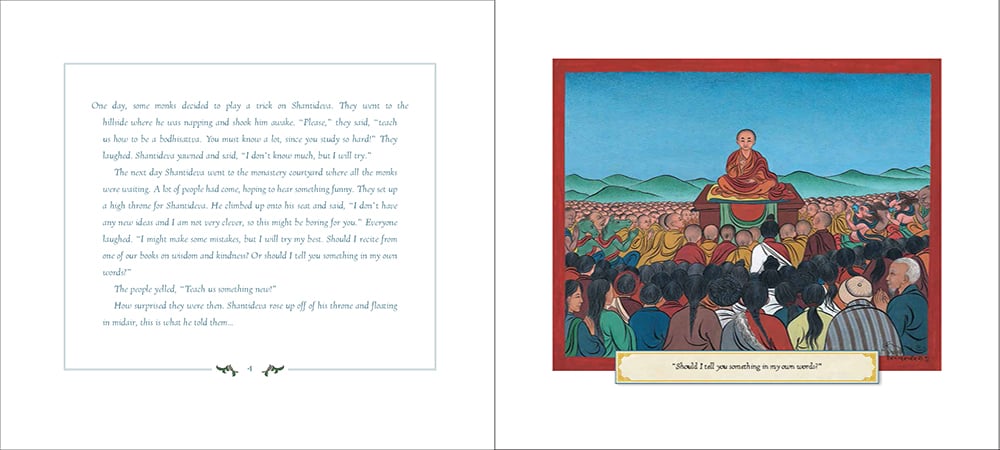
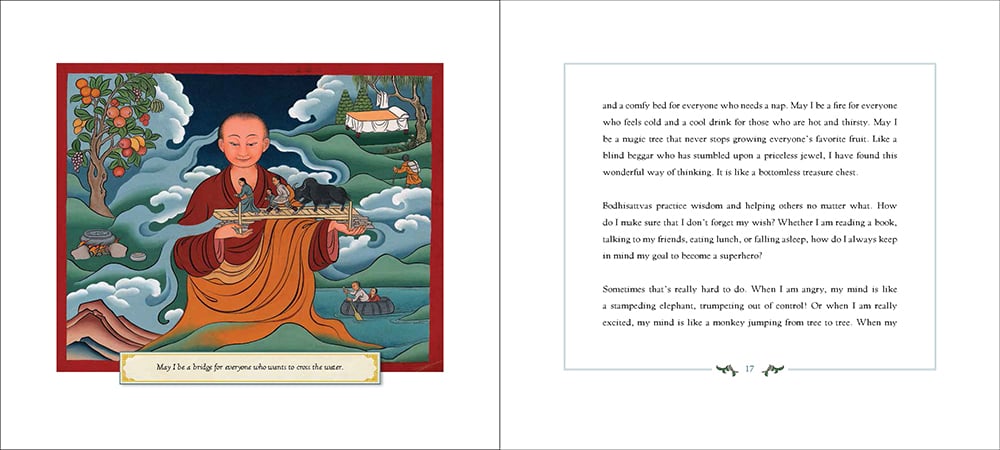
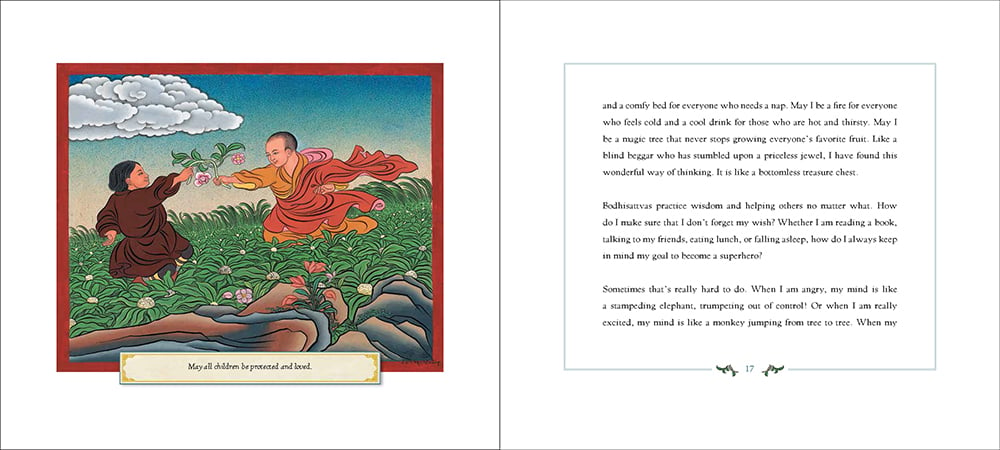
Living Mindfully
Like a wise friend or kind teacher, Deborah Schoeberlein David—educator, meditator, and mother—walks you through a complete, easy-to-follow curriculum of mindfulness practice.
Beginning with the very basics of noticing your breath, David shows how simple mindfulness practices can be utterly transforming. Each practice builds on the previous exercise like a stepping stone, until you have the tools to bring mindfulness into every aspect of your life including sex, parenting, relationships, job stresses, and more.
This is an approachable guide for anyone who desires positive change.
An Intelligent Life
The idea that our experiences in life are shaped by our own minds is fundamental to Buddhist philosophy. An Intelligent Life uses the principles of Buddhist philosophy to explore how best to make use of our lives in order to benefit ourselves and others. Building on the foundation of core Buddhist concepts like the ego, interdependence, and karma, Professor Yokoyama presents a uniquely practical application of Buddhist philosophy.
By understanding how intimately our own habits of mind are related to the world that we experience, we begin to see how many of our everyday actions are founded on ignorance rather than intelligence. If you steadily work to transform your everyday habits, through meditation and reflection on the true nature of your experiences, you will come to forget your ego, feel more closely related to others, and gain access to the inestimable well of happiness and health that rests within. Learning to see ourselves and the world for what they truly are, we learn how to live truly intelligent lives.
Buddhism for Dudes
In Buddhism for Dudes, Gerry “Strib” Stribling, former Marine and all-around good guy, answers questions on life and living with a healthy dose of Buddhist wisdom for the regular guy. Strib takes a good look at who the Buddha was, meditation, karma, and more. With good humor and without sentimentalism (plus a sprinkling of hilarious cartoons), he explains these down-to-earth insights in everyday language. Showing how Buddhism boldly approaches life’s problems head on, unflinching and alert—like a soldier in a forward listening post in the dark of night—Strib emphasizes the Buddhist call to moral action for the good of oneself and others.
Authorized Lives
In Authorized Lives, Elijah Ary, former Geluk monk, recognized tulku, and Harvard-trained scholar, looks at various commonly accepted conceptions of Tsongkhapa’s biography. He demonstrates how these conceptions evolved in the decades after his death.
Delving into the early Geluk biographical tradition, Ary follows the tracks of this evolution in the biographies of Tsongkhapa and Khedrup. This is the first work devoted to early Geluk history and to the role of biographies in shifting established lineages. As the tradition of Tibetan Buddhism that provides the intellectual backdrop for the Dalai Lama’s teachings, the Geluk lineage traces its origins to the figure of Tsongkhapa Losang Drakpa (1357-1419). Gelukpas today believe Tsongkhapa is a manifestation of the bodhisattva Manjushri and revere him with his two heart disciples, Gyaltsap and Khedrup. But as Ary points out, both of these conceptions of Tsongkhapa arose many decades after his death. Delving into the early Geluk biographical tradition, Ary follows the tracks of this evolution in the biographies of Tsongkhapa, Khedrup, and the influential early Geluk writer and reformer Jetsun Chokyi Gyaltsen.
Learn more about the Studies in Indian and Tibetan Buddhism series.
How to Live Well with Chronic Pain and Illness
Chronic illness creates many challenges, from career crises and relationship issues to struggles with self-blame, personal identity, and isolation. Beloved author Toni Bernhard addresses these challenges and many more, using practical examples to illustrate how mindfulness, equanimity, and compassion can help readers make peace with a life turned upside down.
In her characteristic conversational style, Bernhard shows how to cope and make the most of life despite the challenges of chronic illness. Benefit from:
- Mindfulness exercises to mitigate physical and emotional pain
- Concrete advice for negotiating the everyday hurdles of medical appointments, household chores, and social obligations
- Tools for navigating the strains illness can place on relationships
Several chapters are directed toward family and friends of the chronically ill, helping them to understand what their loved one is going through and how they can help.
Humorous and empathetic, Bernhard shares her own struggles and setbacks with unflinching honesty, offering invaluable support in the search to find peace and well-being.
Other helpful books from Toni include:
How to Be Sick: A Buddhist-Inspired Guide for the Chronically Ill and Their Caregivers
How to Be Sick: Your Pocket Companion
How to Wake Up: A Buddhist-Inspired Guide to Navigating Joy and Sorrow
The Dharma of Star Wars
“What is the Dharma? And what in Sith spit does it have to do with Star Wars? Well, if you’re like me, it has everything to do with that glorious galaxy far, far away…”
Here, the modern space saga and the ancient words of the Buddha illuminate each other in playful and unexpectedly rewarding ways, answering questions such as
Is Yoda a Zen Master?
Do Jedis practice mindfulness?
Did attachment cause Darth Vader’s turn to the Dark Side?
Covering everything from A New Hope to The Clone Wars, this revised and expanded edition provides a unique take on the intergalactic epic and an inspiring introduction to Buddhism.
When the Anger Ogre Visits
When the Anger Ogre Visits gives children symbolic and concrete guidance about how to deal with anger as a natural part of their inner lives. Rather than squelching anger or pushing it away, the book invites children to sit with and observe anger, removing its overwhelming aspects. This playfully illustrated story, written in memorable rhyme, centers on discovering and using internal resources and portrays anger as manageable.
Detox Your Heart
Valerie Mason-John knows what it is like to be filled with toxic emotions—and how to release them. After years of abuse and struggles with addiction, she was mired in anger, resentment, and fear. But through meditation and willingness to forge a new path, she learned how to disarm such toxins and find peace.
In Detox Your Heart Mason-John helps us recognize our emotions, good and bad, and to develop the self-care to heal ourselves. Chapters that explore and clearly define negative emotions are paired with chapters on how to transform them. Meditation exercises based on the Buddhist principles of mindfulness, loving-kindness, and compassion provide tools to help us heal our own hurts and to close the gap that toxic emotions create between heart and mind.
This revised and expanded edition includes forewords from angel Kyodo williams and Christopher Titmuss.
Vajrasattva Meditation
The force of our past actions makes it hard to attain our goals, including success in meditation. And so Buddhism has developed methods for purifying our past, clearing the obstacles to success and fulfillment. One of the most popular methods for karmic housekeeping, one common to all schools of Tibetan Buddhism, is the preparatory practice of visualizing the buddha Vajrasattva and reciting his hundred-syllable mantra. It is considered an essential foundation for the success of spiritual endeavor.
The practice of Vajrasattva is often the first experience practitioners have of trying to perform tantric ritual. Combining prayers, visualizations, mantra recitations, and multiple styles of meditation, it can be hard for those who did not grow up in the tradition to know how to proceed. This friendly volume by a young Tibetan lama with many followers in China lays out the practice step by step accompanied by sixty color illustrations.
Medicine and Compassion
It is estimated that nearly one-third of the U.S. adult population acts as informal caregivers for ill or disabled loved ones. We can add to these countless workers in the fields of health and human service, and yet there is still not enough help to go around.
Sure to be welcomed by caregivers of all types, this new edition of the groundbreaking Medicine and Compassion can help anyone reconnect with the true spirit of their caregiving task. In a clear and very modern voice, Chokyi Nyima Rinpoche and Dr. David R. Shlim use the teachings of Tibetan Buddhism to present practical tools for revitalizing the caring spirit.
Offering practical advice on dealing with people who are angry at their medical conditions or their care providers, people who are dying, or the families of those who are critically ill, Medicine and Compassion provides needed inspiration to any who wish to reenergize their patience, kindness, and effectiveness. The warmth and care in these pages is sure to strike a resonant chord with medical professionals, hospice workers, teachers and parents of children with special needs, and those caring for aging and infirm loved ones.
Sitting Together Activity Book
This book is filled with over 50 coloring pages, games, mazes, and other fun activities for children ages 3-12. Though designed to be used with the Sitting Together curriculum, it can also be used on its own. This book is perfect for any family, Dharma center, yoga studio, or organization that wants to incorporate mindfulness into their children’s activities.
Check out MindfulFamilies.net: mindfulness, meditation, and Buddhist resources for families >>
Jaya’s Golden Necklace
While on a very important mission from the King, young Jaya encounters the deities Shiva, Inanna, and Hercules. Leaping from gold coins on her mother’s golden necklace, they help Jaya achieve her goal and discover strengths she didn’t know she had.
Jaya’s Golden Necklace is the first children’s book to tell of the origin and cultural roots of the beloved Buddha image. A story of East and West, it teaches lessons and entertains while also opening a door into Asian culture. Set along the Silk Road, Jaya’s journey highlights the interconnected and multicultural worlds of yesterday and today.
This engaging, fast-moving tale of empowerment will help children relate better to the powerful beings in human history’s rich religions and myths. It also conveys the independence, resilience, and creativity that make Jaya a true heroine for today.
Watch a video about Jaya’s Golden Necklace:
Know Where You’re Going
Know Where You’re Going provides a full course of instruction in Buddhist meditation and reflection, and contains a wealth of exercises and advice to help the reader grow. As we put these teachings into practice over time, we learn to see things as they really are and discover transcendence right here in our everyday lives.
Ayya Khema shows us how to live a wholehearted spiritual life, even amid our day to day concerns and responsibilities. Her teachings unfold simply, free of jargon, and are ideal for the contemporary world. Grounding the practice of more advanced meditations in a deeply cultivated sense of mindfulness, love, and altruism, Khema shows us, step by step, how to access to liberation and freedom. Originally published as When the Iron Eagle Flies.
Zen Meditation in Plain English
An excellent, practical introduction to Zen meditation. Written in a warm and easily accessible style, this book appeals to anyone with an interest in meditation, Zen, or, as is often the case today, a combination of the two. The book emphasizes the importance of receiving good instruction and of finding groups to practice with, yet it lays out the necessary steps to practice Zen meditation on your own. The book includes easily followed exercises to help the reader along. For anyone looking to uncover a clear and insightful path into the philosophy and practice of Zen meditation, this book represents the culmination of that search.
Real Meditation in Minutes a Day
As seen in Newsweek.
Got a few minutes? You can:
- Reduce your stress, even when under pressure
- Sleep better
- Get re-energized
- Think more clearly, and more creatively
- Reconnect with the people who count on you
- Learn to recognize and encourage the best in yourself
You know that meditation would probably be good for you, just like you know that you should floss your teeth. First, though, you need the motivation to make it happen. This book, with its jargon—free tone and incredibly simple exercises-little but effective things you can do in just a minute at work, in the car, wherever-will make you want to meditate. You’ll realize: it’s just a good thing to do. Like flossing—only for your mind.
Real Meditation in Minutes a Day is an easygoing, always-encouraging mental workout buddy, ready to teach and train you. Throughout the book, composite everypersons “Maria” and “Brian” recount their efforts, reinforcing the basics, answering FAQs, and removing common obstacles and quandaries.
With its clear language and exercises that even the busiest of us can find time for, Real Meditation in Minutes a Day can help anyone to make meditation’s very real benefits part of everyday life.
The Way of Awakening
The print version of this book is currently out of stock. Check back soon.
One of the great classics of Buddhist literature, the Bodhicharyavatara, or Way of the Bodhisattva, is required reading for understanding Tibetan Buddhism. Shantideva was a seventh-century Buddhist master who taught at the great monastic university of Nalanda. Presented in the form of a personal meditation in verse, the Bodhicharyavatara outlines the path of the bodhisattvas—those who renounce the peace of their own salvation, vowing instead to attain enlightenment for the sake of all others. The Dalai Lama once remarked that his own understanding of the bodhisattva path is based entirely upon Shantideva’s text.
As long as space endures,
As long as sentient beings remain,
May I likewise remain
To dispel the sorrows of the world.
—Shantideva
The Way of Awakening is without question the most comprehensive single commentary on this text available. Expounded by an accomplished scholar and deeply realized meditator, it is a resource for a lifetime of study. Chapter by chapter and verse by verse, it maps the Bodhicharyavatara, helping us to deepen our understanding of its teachings and apply them to our lives.
Nothing Is Hidden
In this inspiring and incisive offering, Barry Magid uses the language of modern psychology and psychotherapy to illuminate one of Buddhism’s most powerful and often mysterious technologies: the Zen koan. What’s more, Magid also uses the koans to expand upon the insights of psychology (especially self psychology and relational psychotherapy) and open for the reader new perspectives on the functioning of the human mind and heart. Nothing Is Hidden explores many rich themes, including facing impermanence and the inevitability of change, working skillfully with desire and attachment, and discovering when “surrender and submission” can be liberating and when they shade into emotional bypassing. With a sophisticated view of the rituals and teachings of traditional Buddhism, Magid helps us see how we sometimes subvert meditation into just another “curative fantasy” or make compassion into a form of masochism.
Dying with Confidence
Anyen Rinpoche’s wise and reassuring voice guides readers through the Tibetan Buddhist teachings on death and dying, while providing practical tools for end-of-life and estate planning. Dying with Confidence reads like a remarkable how-to guide, laying out in clear and straightforward language the preparations we must make and the best practices to use while dying to further our goal of enlightenment.
One City
Welcome to One City—Population: Everyone—where everything you do matters: What you wear. What you say. What you think/ignore/buy/don’t buy… You’ve lived here your whole life, whether you know it or not.
Ethan Nichtern, the charismatic and creative force behind New York’s Interdependence Project is your guide to the beauty that is everywhere in the urban jungle—in the rattling of subway trains, the screechings of traffic, the hum and drone of millions scurrying for work, food, sustenance, art, culture, and meaning. There may be no greater setting for exploring the great truth that Dr. Martin Luther King Jr. expounded: “Whatever affects one directly, affects all indirectly.”
With its pop-culture savvy, humor, and literary liveliness, One City melds Dr. King’s message with modern Buddhist wisdom to explain how we might best live together—no matter who we are, and no matter where.
Tibetan Art Calendar 2011
This calendar is no longer available for purchase.
Poster-sized reproductions of classical paintings produced to the highest standards. Wisdom’s Tibetan Art Calendar is an annual favorite.
The antique scroll-art masterpieces seen in Wisdom’s Tibetan Art Calendar 2010 are called thangkas. While the thangka is common to Tibetan Buddhists, its finest examples are highly sought-after in the international art community and have become hot properties in the same vein as Oriental rugs and ceramics. As a result, the best of these works are seldom, if ever, available for public viewing.
This is why Wisdom’s Tibetan Art Calendar is so special. It’s an affordable way to enjoy incredibly rare and meaningful works of sacred art, year-round. These thirteen sacred paintings by Tibet’s master painters represent a variety of classical images, mandalas, deities, and icons. Each poster-sized picture is produced to the highest German printing standards, and is suitable for framing. Complete with in-depth explanations of their cultural and philosophical significance, these exquisite fine art reproductions will be treasured for years to come.
Please note that calendars are unable to ship via USPS Media Mail. If you are ordering a calendar and Wisdom books, you should place the book orders separately to ensure the least expensive shipping.
Images in the 2011 calendar are:
- Arhat Abheda
- Vajrabhairava
- Dharmaraja
- Buddha’s Miracles
- Shri Heruka
- Prayer to Padmasambhava
- Bardo of Ultimate Reality
- Mandala of Guhyasamaja
- Shakyamuni and sixteen Arhats
- Mandala of Vajrabhairava
- Bardo and Yama
- Begtse
- Four Armed Mahakala
Mixing Minds
“We cannot find ourselves, or be ourselves, alone.”—from Mixing Minds
Mixing Minds explores the interpersonal relationships between psychoanalysts and their patients, and Buddhist teachers and their students. Through the author’s own personal journey in both traditions, she sheds light on how these contrasting approaches to wellness affect our most intimate relationships. These dynamic relationships provide us with keen insight into the emotional ups and downs of our lives—from fear and anxiety to love, compassion, and equanimity. Mixing Minds delves into the most intimate of relationships and shows us how these relationships are the key to the realization of our true selves.
Steps on the Path to Enlightenment, Vol. 1
Steps on the Path to Enlightenment: The Foundation Practices marks the first volume of a much-anticipated, comprehensive commentary on the Lamrim Chenmo by the renowned Buddhist scholar, Geshe Sopa.
This landmark commentary on what is perhaps the most elegant Tibetan presentation of the Buddhist path offers a detailed overview of Buddhist philosophy, especially invaluable to those wanting to enact the wisdom of the Buddha in their lives.
In the Lamrim Chenmo, Tsongkhapa explains the path in terms of the three levels of practitioners: those of small capacity who seek happiness in future lives, those of medium capacity who seek liberation from the cycle of suffering, and those of great capacity who seek full enlightenment in order to benefit all beings. This volume covers the topics common to the first level: Tsongkhapa’s explanations of the role of the teacher, his exhortation to take the essence of human existence, the contemplation of death and future lives, and going for the refuge.
Given his vast knowledge and his experience in both Tibetan and Western contexts, Geshe Sopa is the ideal commentator of this work for the modern student of Tibetan Buddhism.
Read Tsongkhapa’s biography at the Treasury of Lives.
Meditation and Relaxation in Plain English
Odds are that you or someone you know could truly benefit from Meditation and Relaxation in Plain English. After all, who wouldn’t like to have less stress—and more enjoyment—from life?
Meditation and Relaxation in Plain English teaches us how to achieve just that, with potent tools that are easy to learn, enjoy, and keep doing. And these practices do so much more than allow us freedom from anxiety and stress: they allow us to be a better friend to ourselves, and to the people around us.
Inspiring Generosity
The desire to act generously arrives like uninvited guest, unexpectedly, like a lightning bolt, in a mere moment. A gesture, a news story, a quotation in a book, a passing remark can change everything. For many, that moment is enough for generosity to move into their hearts and minds and become central to their lives.
This book will help readers open their hearts to the power of their own innate generosity, their desire to make a difference in the world, to help make someone’s day a little brighter or their world a bit more secure. It will kindle a spark in readers’ hearts that moves them into the sunshine of a more generous life. If one life is more generous, we all prosper. That is one of generosity’s most wonderful qualities: it is utterly contagious.
Barbara Bonner’s Inspiring Generosity is an invitation to savor a sampling of the very best inspirations on the subject of generosity. It includes fourteen contemporary stories of “generosity heroes” whose lives have been transformed by the power of generosity. Sprinkled throughout these stories are writings, poems, and quotes from Shakespeare, Hafiz, Emily Dickinson, George Eliot, Wendell Berry, Sharon Olds, Naomi Shibab Nye, Donald Justice, Winston Churchill, Mother Teresa, Maya Angelou, Gandhi, Dr. Martin Luther King, Jr., John Steinbeck, James Joyce, Leo Tolstoy, Walt Whitman, Henry David Thoreau, Goethe, Seneca, Albert Schweitzer, Anne Frank, and many others.
Let Go
When we break free from the habits that limit us, a new world of possibilities opens up. In Let Go, Martine Batchelor leads the way there.
Negative patterns of mind may manifest as fear, avoidance, depression, addiction, judgment of self or other, and any of a host of other physical, mental, or psychological forms. Let Go aims at understanding what really lies at the root of these behaviors so we can reclaim control. Each chapter concludes with an exercise or guided meditation as a tool for the reader to work with negative habits in new and creative ways. You don’t have to be a Buddhist for them to work. You just need to want to move on.
Helpful exercises and guided meditations—designed to build understanding of our negative habits, as well as the confidence and skill needed to instead embrace our greatest qualities—appear throughout the book.
Batchelor also looks at Mindfulness-Based Cognitive Therapy (MBCT) for depression, Dr. Jeffrey Schwartz’s use of meditation to deal with Obsessive-Compulsive Disorder (OCD), successful combinations of meditation and Twelve-Step programs, and offers her own innovations.
One Hundred Days of Solitude
In One Hundred Days of Solitude: Losing My Self and Finding Grace on a Zen Retreat, American teacher of Korean Zen Jane Dobisz (Zen Master Bon Yeon), recalls her first solitary meditation stint in the woods. Luckily, this is not just a recounting of a winter’s worth of cabin fever. Instead, Dobisz takes us into her cabin, and into her mind, as she tries—at least temporarily—to live a Walden-like existence.
All the bowing and meditating and wood-chopping that is part and parcel of her retreat is hardly first nature, but the good-humored and tenacious Dobisz is able to adapt, and to relate her hundred days with moving insight and humanity. Her Solitude in fact offers us all a chance to commune with her and to look inside and rediscover our own grace.
The Tibetan Art of Parenting
This is an inspiring and practical introduction for parents, health workers, policy makers, educators, spiritual students, and others to an integrated system of health care that includes body, emotions, mind, spirit, relationships, and environment. An invaluable guide for anyone interested in anything from holistic healthcare to the myths, legends, and child-rearing practices of the Tibetan people.
Hidden Spring
Hidden Spring is the first book to demonstrate in moment-to-moment detail how Buddhist meditation and practice can help us cope with the ordeal of life-threatening disease. In 1995, Sandy Boucher—a well-known Buddhist and feminist writer—was diagnosed with stage III colon cancer. In vivid prose, she describes her year-long encounter with the disease, and reveals how meditation techniques and understanding of Buddhist principles prepared her to meet the mental and physical challenges of her illness.
This intimate account of the development of a Western Buddhist meditator is a triumphant tale of the human spirit in its struggle with mortality, and a guide for anyone looking for strength and comfort for their own struggles.
Momentary Buddhahood
We think of enlightenment as something that happens all at once, like a tidal wave that cleans away everything impure. In truth, however, realization happens incrementally, from moment to moment. And in any moment when true wisdom is recognized, all concepts and afflictions are freed right on the spot and we can affirm for ourselves that the experience of enlightenment is possible. When we do, we experience a moment of the mind of a buddha—“momentary buddhahood.”
In this tantalizing presentation, Anyen Rinpoche offers a vision of the crucial necessity of mindfulness in any exploration of the Buddha’s path—especially the path of tantric practice.
Steps on the Path to Enlightenment, Vol. 2
This second volume of the five-volume commentary by the renowned Buddhist scholar Geshe Lhundub Sopa focuses on the key Buddhist concepts of karma, or cause and effect, and dependent origination. Considered one of the finest living Buddhist scholars, Geshe Sopa provides commentaries essential for anyone interested in a sound understanding of Tibetan Buddhist practice and philosophy. Never has a book gone into such clear detail on karma and dependent origination—concepts which, despite many references in contemporary culture, are too often misunderstood. Here, Geshe Sopa starts from the beginning with a faithful reading of the Lamrim Chenmo and, in the end, leaves readers with the proper tools for incorporating core Buddhist concepts into their study, teaching, and practice.
Read Tsongkhapa’s biography at the Treasury of Lives.
Introduction to Tantra
What is tantra? Who is qualified to practice it? How should it be practiced? What are the results? According to Buddhism, every human being has the potential to achieve profound and lasting happiness. And according to the tantric teachings of Buddhism, this remarkable transformation can be realized very quickly if we utilize all aspects of our human energy—especially the energy of our desires. Introduction to Tantra is the best available clarification of a subject that is often misunderstood. Tantra recognizes that the powerful energy aroused by our desire is an indispensable resource for the spiritual path. It is precisely because our lives are so inseparably linked with desire that we must make use of desire’s tremendous energy not just for pleasure, but to transform our lives. Lama Yeshe presents tantra as a practice leading to joy and self-discovery, with a vision of reality that is simple, clear, and relevant to 21st-century life.
Wheel of Great Compassion
The Wheel of Great Compassion is the first book to provide Western readers with a complete understanding of the prayer wheel—an ancient and mystical practice that has long been popular with Buddhists throughout Tibet and Mongolia for its ability to bless the environment, promote healing, increase compassion, and assist practitioners on their journeys to enlightenment.
This book offers a clear description of prayer wheel practice, its meaning and benefits, and its role as an essential ritual and symbol of Tibetan Buddhism. It contains a general introduction to the prayer wheel, photographs and illustrations, six commentaries by Tibetan lamas (including Lama Zopa Rinpoche), and instructions for both prayer wheel construction and proper use.
Liberation in the Palm of Your Hand
Pabongka Rinpoche was one the twentieth century’s most charismatic and revered Tibetan lamas, and in Liberation in the Palm of Your Hand we can see why. In this famous twenty-four-day teaching on the lamrim, or stages of the path, Pabongka Rinpoche weaves together lively stories and quotations with frank observations and practical advice to move readers step by step along the journey to buddhahood. When his student Trijang Rinpoche first edited and published these teachings in Tibetan, an instant classic was born. The flavor and immediacy of the original Tibetan are preserved in Michael Richards’s fluid and lively translation, which is now substantially revised in this new edition.
- An interactive outline of Liberation in the Palm of Your Hand can be found at the Kurukulla Center website.
- Read Trijang Rinpoche’s biography at the Treasury of Lives.
Only a Great Rain
Very little has been published to date on China’s rich traditions of Buddhist meditation. Inspired by the need to increase meaningful interaction between China and the West on spiritual issues, modern meditation master Hsing Yun here brings this vast legacy to life in straightforward and engaging language. Professor McRae’s introduction to the world of Chinese Buddhism helps place these instructions in their wider context.
Tibetan Buddhism from the Ground Up
As long as our minds are dominated by the conditions of the external world, we are bound to remain in a state of dissatisfaction, always vulnerable to grief and fear. How then can we develop an inner sense of well-being and redefine our relationship to a world that seems unavoidably painful and unkind?
Many have found a practical answer to that question in the teachings of Tibetan Buddhism. Here at last is an organized overview of these teachings, beginning with the basic themes of the sutras—the general discourses of the Buddha—and continuing through the esoteric concepts and advanced practices of Tantra. Unlike other introductions to Tibetan Buddhism, this accessible, enjoyable work doesn’t stop with theory and history, but relates timeless spiritual principles to the pressing issues of modern life, both in terms of our daily experience and our uniquely Western world view.
This fascinating, highly readable book asks neither unquestioning faith nor blind obedience to abstract concepts or religious beliefs. Rather, it challenges us to question and investigate life’s issues for ourselves in the light of an ancient and effective approach to the sufferings and joys of the human condition.
First Invite Love In
A Spirituality & Practice “Best Spiritual Books of 2010” winner.
First Invite Love In is a beautiful collection of exercises inspired by the ancient meditative arts of Tibetan Buddhism. Tana Pesso and the Penor Rinpoche work together to create a guidebook for anyone who would like to live more compassionately, wisely, and with an open and inviting heart.
Moment by moment, thought by thought, step by step we can transform our minds through time-tested compassion practices, and ultimately create a garden of delight out of any life history or current circumstance, regardless of how traumatic or difficult. There are countless examples of people from all spiritual paths, faiths, and religions who have experienced terrible hardships or even themselves created hardships and suffering for others, who have turned their minds towards love and compassion and found peace and happiness.
Steps on the Path to Enlightenment, Vol. 3
Geshe Lhundub Sopa’s Steps on the Path to Enlightenment is a landmark commentary on what is perhaps the most elaborate and elegant Tibetan presentation of the Buddhist path, Tsongkhapa’s monumental Lamrim Chenmo. In this third volume of five, readers are acquainted with the bodhisattva’s path and the altruistic desire to make service to others the driving force of spiritual development.
It begins with an explanation of what distinguishes the Mahayana practitioner from other Buddhists and goes on to describe the nature of bodhichitta. Geshe Sopa then provides a detailed commentary on the two methods to develop this awakening attitude: the techniques of sevenfold cause-and-effect and exchanging self and other.
While bodhichitta’s significance in Mahayana Buddhism is universally known, Geshe Sopa illustrates how bodhichitta can motivate a devoted practitioner toward complete enlightenment and how this is accomplished through the performance of the bodhisattva perfections. Whether engaged in a scholarly study or personal practice of the Lamrim Chenmo, Geshe Sopa’s guiding voice leads readers to a deeper understanding and appreciation of the bodhisattva way.
Zen Under the Gun
Sometimes history is cruel: a civilization starts to fall apart and a stable social order starts to unravel; upheaval and uncertainty abound. Tyrants ride high, old notions of justice vanish, and people may feel they have nowhere to turn for relief. In some ways, this is the story of human civilization.
Indeed, this is what happened to the Chinese world in the thirteenth century when the Mongol conquerors mangled China and left the Chinese social order in tatters.
This book, from one the pioneering and preeminent translators of Zen for the West, presents a selection of Zen lessons from four teachers in four successive generations whose public lives spanned a turbulent period in Chinese history. These four Zen masters were all eminent teachers, and their teaching words reflect the state of the art of Zen teaching in their time. And they are, even now, all vividly relevant.
Selfless Love
Selfless Love shows how meditation can help us realize that we don’t love—we are love.
Gentle, elegant, and radically inspiring, Selfless Love presents a holistic, experiential meditative path that enables us to see beyond our preconceived notions of identity, spirituality, and humanity. Drawing equally from Zen parables, her experience as a mental health therapist, and the Gospels, Ellen Birx shows us that through meditation we can recognize that our true selves are not selves at all—that all beings are united in unbounded, infinite awareness and love, beyond words.
Recognizing the limitations of language in describing the indescribable, Birx concludes each chapter in the Zen tradition of “turning words” with a verse meant to invite insights.
Eloquent Silence
The most comprehensive collection available of Nyogen Senzaki’s brilliant teachings, Eloquent Silence brings new depth and breadth to our knowledge and appreciation of this historic figure. It makes available for the first time his complete commentaries on the Gateless Gate, one of the most important and beloved of all Zen texts, as well as on koans from the Blue Rock Annals and the Book of Equanimity. Amazingly, some of these commentaries were written while Senzaki was detained at an internment camp during WWII. Also included are rare photographs, poems reproduced in Senzaki’s beautiful calligraphy and accompanied by his own translations, and transcriptions of his talks on Zen, esoteric Buddhism, the Lotus Sutra, what it means to be a Buddhist monk, and other subjects. Roko Sherry Chayat has edited Nyogen Senzaki’s words with sensitivity and grace, retaining his wry, probing style yet bringing clarity and accessibility to these remarkably contemporary teachings.
Like A Dream, Like a Fantasy
Just as D.T. Suzuki introduced the West to Zen philosophy, Nyogen Senzaki helped introduce it to Zen practice, becoming the first great Japanese meditation master to fully immerse himself in the everyday life of America. Like a Dream, Like a Fantasy collects many of his talks, essays, and poetry into one fascinating volume that offers an intimate, in-depth look at one ofWestern Zen’s earliest pioneers.
Opening the Eye of New Awareness
Opening the Eye of New Awareness is a succinct, thorough overview of the doctrines of Buddhism as they have been practiced for a thousand years in Tibet. The Dalai Lama here discusses the need for religious practice and the importance of kindness and compassion. Originally written for Tibetan lay people, this was the Dalai Lama’s first book on Buddhist philosophy to appear in English, and Prof. Lopez’s new introduction places these teachings in their proper historical context. This is an invaluable handbook for both personal use and academic study of the Buddhist path.
“Written for both Tibetan and Western readers, Opening the Eye of New Awareness is the Dalai Lama’s first religious work. It is not an edited transcript of public lectures, but is His Holliness’ own summation of Buddhist doctrine and practice. Completed in 1963, just four years after his escape from Tibet and four years after completing his religious education, it is a work of consummate scholarship by a twenty-seven year-old geshe, wise beyond his years. Nowhere in his many subsequent works does one find a more clear and concise exposition of the essentials of Buddhist thought. Indeed, all of His Holiness’s many publications are in some sense commentaries on this first book.”—Donald S. Lopez Jr.
Tibetan Calligraphy
In Tibetan Calligraphy, Sanje Elliott shows us how to capture the elegance and grace of Tibetan calligraphy without prior knowledge of either Tibetan language or calligraphy. This beautiful book includes many prayers, mantras, and seed syllables to copy and study. Perfect for practitioners, artists, and anyone interested in the Tibetan language.
Walking the Way
Walking the Way affirms that, like yin and yang, the flowing spontaneity of Tao and the precise simplicity of Zen find perfect balance with one another. Robert Meikyo Rosenbaum brings the two traditions together in a unique presentation that elicits Zen insights from his fresh interpretation of verses from the Taoist classic, the Tao Te Ching. Personal anecdotes illustrate the dynamic potential of Rosenbaum’s approach, skillfully revealing Zen within the Tao and the Tao of Zen. Not only does the author reveal the elegance of each tradition, he shows how their interrelatedness does, in fact, have import on our meditative practices and on our day-to-day lives. Parenting, meditating, dealing with setbacks and illnesses—Walking the Way shows us how to live well in the midst of many complex demands, finding harmony and equilibrium between honing in and letting go, balance between being ourselves and selflessly serving others.
Horses Like Lightning
A tender account—by turns cultural exploration and memoir of a young woman’s firsthand experience of change and continuity in one of the worlds most remote regions, through the lens of the horse and “horse culture.”
At nineteen, Sienna Craig made her first venture deep into Mustang, an ethnically Tibetan area of Nepal, in the rainshadow of the Himalayas. As an equestrian and a buddhing anthropologist, she sought not only to understand what it was like to rely on horses to navigate through the windswept valleys and plains of High Asia, but also to grasp how horses lent meaning to the lives of the Mustangi people. Through living and working with local Tibetan doctors, veterinarians, and other horse experts, as well as the deep friendships she formed, Sienna began to understand the region’s history, and the way life in Mustang was being transformed in the face of temendous social, political, and economic shifts. She learned much about herself and her life’s course through her year in Mustang—a place that came to feel, for all its foreignness, like home.
Read more about Sienna and Horses Like Lightning in this article from the Santa Barbara Independent.
Moody Cow Learns Compassion
This delightful sequel to Moody Cow Meditates reintroduces us to Peter (aka Moody Cow) and meet his mischievous “boys-will-be-boys” friend Bully. Along the way we meet a snake named Jaws, who also goes on to appear in Peter’s terrifying dreams, and watch as Bully revels in the deaths of the crickets he feeds the snake. Peter is uncomfortable with the plight of the little creatures, earning him a new nickname: “Coward Cow” because Bully thinks he’s a wimp. Once again, Grandfather, the beloved old steer from Moody Cow Meditates, brings serenity and long-horned wisdom as he gently teaches to compassionately identify with other beings. And the story ends with everyone sharing a laugh — and even Jaws and the crickets are happy. This book also includes two activities — compassionate cricket release and compassionate worm rescue — for parents and children to do together.
Look for the Moody Cow Mind Jar App for iPhone and iPad, available in the App Store and iTunes!
Stilling the Mind
In his previous book, The Attention Revolution, bestselling author B. Alan Wallace guided readers through the stages of shamatha, a meditation for focusing the mind. In Stilling the Mind, he uses the wisdom of Dzogchen—the highest of all the meditation traditions—to open up the shamatha practice into a space of vast freedom. Here, Alan introduces us to Dudjom Lingpa’s Vajra Essence, one of the most cherished works of the Nyingma school from which Dzogchen stems. With his trademark enthusiasm and keen intelligence, Alan makes obscure concepts intelligible to contemporary readers and allows us to glimpse the profound realizations of a great nineteenth-century spiritual adept.
Read Dudjom Lingpa’s biography at the Treasury of Lives.
Relative Truth, Ultimate Truth
Relative Truth, Ultimate Truth is a clear and remarkably practical presentation of a core Buddhist teaching on the nature of reality. Geshe Tashi Tsering provides readers with an excellent opportunity to both enhance their knowledge of Buddhism and deepen their perspective on the world.
The Buddhist teaching of the “two truths” is the gateway to understanding the often-misunderstood philosophy of emptiness. This volume is an excellent source of support for anyone interested in cultivating a more holistic and transformative understanding of the world around them and ultimately of their own consciousness.
Emptiness
In Emptiness, the fifth volume in The Foundation of Buddhist Thought series, Geshe Tashi Tsering provides readers with an incredibly welcoming presentation of the central philosophical teaching of Mahayana Buddhism. Emptiness does not imply a nihilistic worldview, but rather the idea that a permanent entity does not exist in any single phenomenon or being. Everything exists interdependently within an immeasurable quantity of causes and conditions. An understanding of emptiness allows us to see the world as a realm of infinite possibility, instead of a static system. Just like a table consists of wooden parts, and the wood is from a tree, and the tree depends on air, water, and soil, so is the world filled with a wondrous interdependence that extends to our own mind and awareness. In lucid, accessible language, Geshe Tashi Tsering guides the reader to a genuine understanding of this infinite possibility.
Like a Waking Dream
Among the generation of elder Tibetan lamas who brought Tibetan Buddhism west in the latter half of the twentieth century, perhaps none has had a greater impact on the academic study of Buddhism than Geshé Lhundub Sopa. He has striven to preserve Tibetan religious culture through tireless work as a professor and religious figure, establishing a functioning Buddhist monastery in the West, organizing the Dalai Lama’s visits to the U.S., and offering countless teachings across the country. But prior to his thirty-year career in the first ever academic Buddhist studies program in the United States—a position in which he oversaw the training of many among the seminal generation of American Buddhist studies scholars—Geshé Sopa was the son of peasant farmers, a novice monk in a rural monastery, a virtuoso scholar-monk at one of the prestigious central monasteries in Lhasa, and a survivor of the Tibetan uprising and perilous flight into exile in 1959.
In Like a Waking Dream, Geshé Sopa frankly and observantly reflects on how his life in Tibet—a monastic life of yogic simplicity—shaped and prepared him for the unexpected. His is a tale of an exemplary life dedicated to learning, spiritual cultivation, and the service of others from one of the greatest living masters of Tibetan Buddhism.
Opening the Hand of Thought
For over thirty years, Opening the Hand of Thought has offered an introduction to Zen Buddhism and meditation unmatched in clarity and power. This is the revised edition of Kosho Uchiyama’s singularly incisive classic.
This new edition contains even more useful material: new prefaces, an index, and extended endnotes, in addition to a revised glossary. As Jisho Warner writes in her preface, Opening the Hand of Thought “goes directly to the heart of Zen practice. . . showing how Zen Buddhism can be a deep and life-sustaining activity.” She goes on to say, “Uchiyama looks at what a person is, what a self is, how to develop a true self not separate from all things, one that can settle in peace in the midst of life.”
By turns humorous, philosophical, and personal, Opening the Hand of Thought is above all a great book for the Buddhist practitioner. It’s a perfect follow-up for the reader who has read Zen Meditation in Plain English and is especially useful for those who have not yet encountered a Zen teacher.
To Dispel the Misery of the World
“Offered here is the pith advice on mind training according to the great vehicle. This is the path followed by all the buddhas and their children of the past, present, and future, the most profound instruction of the oral lineage, and the quintessence of the ocean of all the excellent teachings.”—Ga Rabjampa
This short book contains a wealth of advice for those wanting to become more fully human. When we are disconnected from others we flounder; only by recognizing the profound interdependence of all beings do we flourish and grow. The famous Seven-Point Mind Training, in just a few pages of one-line instructions, provides direct and powerful advice for breaking through the chronic barriers that separate us from those around us. It is easy to see why it is one of the most cherished texts in all of Tibetan Buddhism.
Ga Rabjampa, an influential master of the fifteenth century, here uses the Seven-Point Mind Training as the basis for illuminating the essential teachings on Buddhism, giving special attention to the practices of giving and taking (tonglen) and of transforming adversity into opportunities for spiritual growth.
Learn more about Ga Rabjampa at the Treasury of Lives.
Principles of Buddhist Tantra
Kirti Tsenshap Rinpoche was a renowned teacher of Tibetan Buddhism with students worldwide. Revered as a teacher by even the Dalai Lama, he was known especially as a master of Buddhist tantra, the powerful esoteric methods for attaining enlightenment swiftly. The teachings in this book are a singular record of his deep learning in that field. Originally delivered in California to a group of Western students, the teachings comment on a classic introduction to tantra by the nineteenth-century Mongolian lama Chöje Ngawang Palden. The work, Illumination of the Tantric Tradition: The Principles of the Grounds and Paths of the Four Great Secret Classes of Tantra, is a staple even today of the curriculum for training young monastics.
Kirti Tsenshap Rinpoche explains the distinctive features of the four classes of tantra—action tantra, performance tantra, yoga tantra, and highest yoga tantra—by describing the way to progress through the tantric paths and grounds (sa lam). He illuminates key issues in tantric practice that are still a matter for debate within the tradition. Finally, he gives a special treatment of the unique methods of Kalacakra tantra, which is regularly taught around the globe by His Holiness the Dalai Lama.
Moody Cow Meditates
It all started one stupid, rotten day when everything went wrong…
Peter the cow is having a BAD day. After missing the bus and wiping out on his bike he loses his temper and gets in trouble. To make matters worse all the other kids are teasing him, calling him Moody Cow. Peter’s day just seems to get worse until his grandfather comes over and teaches him how to settle his mind and let go of his frustration through a simple and fun exercise. This vibrant and funny children’s book is a playful way to introduce children to the power of meditation. With full color illustrations by the author, Moody Cow Meditates is a wonderful book for parents and children to share together.
Look for the Moody Cow Mind Jar App for iPhone and iPad, available in the App Store and iTunes!
The Four Noble Truths
The four noble truths are well known as the Buddha’s first and most essential explanation of his enlightened realizations. The truths diagnose the human existential crisis—suffering and its origin—and prescribe a solution—cessation and the path. To understand the four noble truths is to understand Buddhism as a whole.
In The Four Noble Truths, Geshe Tashi draws on his decades of training in Tibetan Buddhism to illuminate these truths for a modern audience. His respectful engagement with Buddhists outside his own tradition and his insights into Western culture make this book refreshing. It will reward even those already acquainted with the fundamentals of Buddhism.
The Four Noble Truths is the first of six stand-alone volumes in the Foundation of Buddhist Thought series.
Where the World Does Not Follow
Gorgeous and unique, Where the World Does Not Follow captures an almost-hidden China. Acclaimed translator Mike O’Connor and photographer Steven Johnson uncover a world rarely seen by outsiders—even as they capture it in its everyday beauty. O’Connor’s translations of poems from China’s Tang Dynasty sing in the present day, while Johnson’s photographs reveal a modern-day China that seems almost unchanged by the passing of centuries.
Chinese authorities are only now allowing access to ancient Buddhist sites and many writings and devotional objects are being made available for the first time in decades. These poems written by Zen and Taoist hermit-sages, together with the crisp yet almost dreamlike images capture the aesthetic, literary, and spiritual roots of Buddhist China. Where the World Does Not Follow provides insight into a world that very few have been able to visit—and a time difficult even to imagine. O’Connor and Johnson’s book is a hymn to nature, to the art of photography, and to the common beauty of humanity that extends to us like a silk thread from another time and place.
Ending the Pursuit of Happiness
As seen in Newsweek.
We all have a right to the pursuit of happiness—but could we actually be happier if we gave that whole thing up?
This surprising new book from Zen teacher, psychoanalyst, and critical favorite Barry Magid inspires us—in gentle and winking prose—to move on and make peace with the perfection of the way things actually are, including ourselves.
Magid invites us to consider that our “pursuit of happiness” may actually be a source of our suffering. He takes an unusual look at our “secret practices”—what we’re really doing when we say we’re meditating-like trying to feel calmer, or more compassionate, or even “enlightened” (whatever we imagine that means!). He also uncovers our “curative fantasies” about spiritual practice—those ideas that we can somehow fix all the messy human things about ourselves that we imagine are bad or wrong or unacceptable. In doing so, he helps us look squarely at-and avoid-such pitfalls. Along the way, Magid lays out a rich roadmap of the new “psychological-minded Zen”—a Zen that includes our entire life, our entire personality—as pioneered by his teacher, bestselling author Charlotte Joko Beck.
Like a Yeti Catching Marmots
The Yeti, or Dremo in Tibetan, is a dim-witted mythical beast said to feed only on marmots. It sees a marmot, grabs the hapless creature, and then sits on it—saving the delicious morsel for later. And then the Yeti sees another marmot and leaps up to snatch it while the first marmot makes a quick break for freedom. An image of bumbling, foolish effort.
This enchanting little book contains 108 traditional Tibetan proverbs—conveying the wit and wisdom of one of the world’s most unique cultures. The proverbs appear in English and Tibetan script, along with a brief explanation of how and when to use each saying.
Often funny and wise, these proverbs always remind us of our experiences in a natural and meaningful way.
Ordinary Mind
Is meditation an escape from—or a solution to—our psychological problems? Is the use of antidepressants counter to spiritual practice? Does a psychological approach to meditation reduce spirituality to “self-help”? What can Zen and psychoanalysis teach us about the problems of the mind and suffering?
Psychiatrist and Zen teacher Barry Magid is uniquely qualified to answer questions like these. Written in an engaging and witty style, Ordinary Mind helps us understand challenging ideas—like Zen Buddhism’s concepts of oneness, emptiness, and enlightenment—and how they make sense, not only within psychoanalytic conceptions of mind, but in the realities of our lives and relationships.
This new paper edition of Magid’s much-praised book contains additional case study vignettes.
Together Under One Roof
In Together Under One Roof, Lin Jensen turns his keen eye and powerful prose explicitly to the teachings of the Buddha, to traditional Zen stories, and to the practices of meditation and compassion—as well as the intricacies of everyday language and the natural world, truth and beauty, family, and the myriad ways our simplest actions affect our whole lives. His previous two works, memoirs of growing up and growing old and of the hard-won but gentle wisdom gained in his daily public meditations for peace, were both critical successes earning a special place in readers’ hearts. This book takes up symphonic variations on one main theme: we are all “in it” together, we are all living under one roof—and there’s always a glowing hearth right here in this, the Buddha’s household.
Mind in Comfort and Ease
Here, in a teaching of outstanding completeness and clarity, the Dalai Lama sets out the key principles of Buddhism, showing how the mind can be transformed, and suffering overcome, through love, compassion, and a true understanding of the nature of reality. By illustrating his brilliant overview of the path with his own personal experiences and advice on how to integrate the practice, the Dalai Lama brings these teachings to life.
The Dalai Lama delves deep into the teaching of the Great Perfection, or Dzogchen. His enthusiasm and admiration for this profound tradition shine through as he comments on an important work by the great Dzogchen master Longchen Rabjam, Finding Comfort and Ease in Meditation on the Great Perfection.
Blending the highest wisdom with the deepest compassion and humanity, Mind in Comfort and Ease offers a glimpse into the Dalai Lama’s wisdom mind and a panoramic view of the Buddhist path.
More Daily Wisdom
Like its successful predecessor, Daily Wisdom, More Daily Wisdom draws on the richness of Buddhist writings to offer a spiritual cornucopia that will illuminate and inspire day after day, year after year. Sources span a spectrum from ancient sages to modern teachers, from monks to laypeople, from East to West, from poetry to prose. Each page, and each new day, reveals another gem of Daily Wisdom.
Entries included are from some of Buddhism’s best-known figures: the Dalai Lama, Sylvia Boorstein, Bhante Gunaratana (Mindfulness in Plain English), Lama Zopa Rinpoche (Transforming Problems into Happiness), Lama Yeshe (Introduction to Tantra), Ayya Khema (Being Nobody, Going Nowhere) and of course, the Buddha himself.
Wake Up and Laugh
The compassion, humor, and practical intelligence of one of Korea’s foremost Zen masters shines throughout this new collection of Dharma talks. On each page, Master Daehaeng reveals how everything in daily life, even the ugly and difficult parts, can become the fuel for our spiritual growth. Her illuminating insight will guide the reader toward an understanding of her ultimate teaching—know yourself, trust yourself, and go forward, no matter what your current life situation might be.
At turns laughing and scolding, always engaging, Zen Master Daehaeng exhorts, cajoles, and instructs readers in their practice. These Dharma talks—gathered over several years—are like having Master Daehang at your side, urging you on.
The question-and-answer sessions with students are particularly enlightening; readers will find that the students’ questions mirror their own and that Master Daehaeng’s responses guide them on.
The Lives and Liberation of Princess Mandarava
This lucid translation of a rare Tibetan text makes available for the first time to Western readers the remarkable life story of Princess Madarava. As the principal consort of the eighth century Indian master Padmasambhava before he introduced tantric Buddhism to Tibet, Mandarava is the Indian counterpart of the Tibetan consort Yeshe Tsogyal. Lives and Liberation recounts her struggles and triumphs as a Buddhist adept throughout her many lives and is an authentic deliverance story of a female Buddhist master. Those who read this book will gain inspiration and encouragement on the path to liberation.
Learn more about Princess Mandarava at the Treasury of Lives.
Ordinary Wisdom
A popular guide to the art of living, the Sakya Legshe—or “Treasury of Good Advice”—has been fundamental to the development of Tibetan culture and character. As in Aesop’s Fables, Sakya Pandita uses proverbs and stories to address the basic question: “How are we to live peaceably with ourselves and with others?”
This is the only available English translation of the Sakya Legshe—a book that reveals the heart of the Buddhist way of life.
Read Sakya Pandita’s biography at the Treasury of Lives.
Transcending Time
Inspired by years of scholarly training and decades of solitary retreat, Tibetan monk Gen Lamrimpa offers a concise overview of all phases of the Kalachakra practice: the preliminaries, the initiation, and finally, the stages of generation and completion. With remarkable clarity, he makes the Six-Session Guruyoga practice accessible to all practitioners, and deepens our understanding and appreciation of this sublime teaching of the Buddha.
Gen Lamrimpa begins this eminently practical explanation by emphasizing the importance of a compassionate motivation for spiritual practice. He then explores the nature of suffering and the cycle of existence that traps all living beings, and concludes with a detailed account of the Six-Phase Yoga, which is meant to be recited and contemplated three times during the day and three times at night. Alan Wallace’s introduction illuminates both Kalachakra’s rich history and Gen Lamrimpa’s unique contribution to our understanding.
This book provides a clear explanation of Kalachakra as set forth within the context of the Six-Session Guruyoga, a daily meditation practice for initiates. Transcending Time presents all phases of Kalachakra practice—the preliminaries, the initiation, and finally, the stages of generation and completion.
Moon by the Window
Shodo Harada is internationally recognized both as a Zen teacher and as a world-class master of the fine art of Zen calligraphy. Harada regularly exhibits and gives calligraphy demonstrations in museums and universities in the U.S. and abroad. Accomplished Zen teachers from across the globe come to further plumb the depths of Zen through studying with him, earning him a reputation as “the roshi’s roshi”—which is to say, the master’s master.
Moon by the Window is a beautiful collection of 108 pieces of Shodo Harada’s calligraphic Zen masterpieces—assembled over decades, and drawn from the rich and poetic literature of the Zen tradition. Each work of art is accompanied by Harada Roshi’s sharp and glittering commentaries, making each page a spiritually edifying and aesthetically uplifting treasure.
Freeing the Heart and Mind
His Holiness the Sakya Trizin, the head of the glorious Sakya lineage, one of the four primary schools of Tibetan Buddhism, presents here the essential Buddhist teachings of the four noble truths, universal compassion, and the proper motivation for practice. This book opens by sharing a private teaching His Holiness gave to a young newcomer seeking to understand this great master’s spiritual heritage. His Holiness’s advice inspires us to integrate the living power of these teachings into our daily lives.
Full of timeless wisdom, Freeing the Heart and Mind contains, in addition to this introduction, an explanation of the teaching Matchless Compassion by the Indian saint Virupa, and a selection of commentaries on the essential teaching called Parting from the Four Attachments. Developed as the first volume in a course of study for students of the Sakya tradition, it nonetheless stands alone as an excellent entry into the teachings of the Buddha.
Freeing the Heart and Mind includes a full-color photo insert of Sakya lineage masters.
Natural Liberation
In life and in death, in meditation and in sleep, every transitional stage of consciousness, or bardo, provides an opportunity to overcome limitations, frustrations, and fears. The profound teachings in this book provide the understanding and instruction necessary to turn every phase of life into an opportunity for uncontrived, natural liberation.
Like the Tibetan Book of the Dead, Natural Liberation is a terma, a “hidden treasure” attributed to the eighth-century master Padmasambhava. Gyatrul Rinpoche’s lucid commentary accompanies the text, illuminating the path of awakening to the point of full enlightenment. Natural Liberation is an essential contribution to the library of both scholars and practitioners of Tibetan Buddhism.
Enlightenment to Go
Essential reading for those seeking life-changing psychological tools and transcendent wisdom, Enlightenment to Go provides a lively and accessible introduction to the ‘best of’ Shantideva. With warmth, humor, and stories of his own experiences, author David Michie shows how modern psychological science confirms Shantideva’s insights, and he explores powerful antidotes to contemporary problems, including stress, anxiety, and depression. Whether you are a newcomer to Buddhism or a seasoned practitioner, Enlightenment to Go offers a glimpse of a radiantly different reality right here in your busy life.
Living by Vow
This immensely useful book explores Zen’s rich tradition of chanted liturgy and the powerful ways that such chants support meditation, expressing and helping us truly uphold our heartfelt vows to live a life of freedom and compassion. Exploring eight of Zen’s most essential and universal liturgical texts, Living by Vow is a handbook to walking the Zen path, and Shohaku Okumura guides us like an old friend, speaking clearly and directly of the personal meaning and implications of these chants, generously using his experiences to illustrate their practical significance. A scholar of Buddhist literature, he masterfully uncovers the subtle, intricate web of culture and history that permeate these great texts. Esoteric or challenging terms take on vivid, personal meaning, and old familiar phrases gain new poetic resonance.
Pavement
There’s a war on—and Lin Jensen isn’t gonna take it standing up. In 36 riveting scenes, Pavement shows how the Buddhist perspective can help us all, even in the toughest times.
Every day, Lin Jensen has gone down to the center of his small town of Chico, California, plopped down a meditation cushion, and sat “peace vigils” in protest of the US invasion of Iraq—his honest effort to change the world.
From his knee-level spot on the pavement, he has encountered a wonderful array of what Lin calls “uprights”: a heart-breakingly generous homeless man who offers Lin his only possession; hostile passers-by who shout “F@#k you, Peace Wimp!”; “White Wolf,” who punctuates every comment (always shouted!) with a sharp poke to Lin’s chest; compassionate soldiers; and more—all amid rain and bright sun, exhaust fumes, and the scent of azaleas.
Jensen, the author who so moved readers with his acclaimed memoir Bad Dog!, here shares what sidewalk-dwelling has taught him about humility, generosity, and what it really means to love our neighbors. It’s inspiring, good-humored reading—especially for anyone who might work or wish for change but doesn’t want to be just spitting into the wind.
Keep Me In Your Heart A While
“After my death I will come back and haunt over you, checking on your practice.” Dainin Katagiri Roshi, one of the greatest pioneers of Zen in America, said this frequently, teasing Dosho Port and his fellow students. For Dosho, Katagiri Roshi’s “haunting” still includes, to borrow a phrase from Warren Zevon, “keeping him in my heart a while”—continuing the intimate exploration of the indelible imprint that a Zen teacher leaves on a student’s heart.
Katagiri’s teaching was at once powerful, gentle, and sometimes almost even casual. For Dosho, some of the richest teachings came in these simple, casual moments during everyday interactions. The structure of this book is built around a series of such vivid truth-happening places, evocative of the ancient koans of the Zen tradition, touching on such topics as the nature and purpose of Zen, the dynamic and working of realization, and, of course, the functioning of the teacher-student relationship.
Natural Perfection
Dzogchen, or the “Great Perfection,” is considered by many to be the apex of Tibetan Buddhism, and Longchen Rabjam is the most celebrated of all the saints of this remarkable tradition. Natural Perfection presents the radical precepts of Dzogchen, pointing the way to absolute liberation from conceptual fetters and leading the practitioner to a state of pure, natural integration into one’s true being.
Transcending the Tibetan context or even the confines of Buddhist tradition, Longchen Rabjam delivers a manual full of practical wisdom. Natural Perfection is a shining example of why people have continued to turn to the traditions of Tibet for spiritual and personal transformation and realization. Keith Dowman’s illuminating translation of this remarkable work of wisdom provides clear accessibility to the profound path of Dzogchen in the here-and-now.
Tantra
In this sixth and final volume in the Foundation of Buddhist Thought series, Geshe Tashi Tsering brings his familiar, helpful approach to the esoteric practices of Buddhist tantra. Anticipating the many questions Westerners have upon first encountering tantra’s colorful imagery and veiled language, Tantra uses straight talk to explain deities, initiations, mandalas, and the body’s subtle physiology of channels and chakras.
Tantric Buddhism provides a quick avenue to buddhahood by means of dissolving the body’s wind energies into the central channel at the heart, mimicking the transformations of consciousness that occur at the time of death. Guiding readers systematically from tantra’s generation stage through to the full enlightenment of the completion stage, Geshe Tashi Tsering even unpacks a simple compassion practice composed by the Dalai Lama, using it to illustrate the building blocks common to all such visualization techniques.
Tantra is a fitting conclusion to this accessible and practical series.

